The POCO C++ Libraries are:
- A collection of C++ class libraries similar to Java Class Library, .NET Framework, and Cocoa.
- Focused on "internet-age" network-centric applications.
- Written in efficient, modern ANSI/ISO Standard C++ and based on the C++ Standard Library/STL.
- Highly portable and available on many different platforms.
- Open source and licensed under the Boost Software License, so completely free for both commercial and non-commercial use.
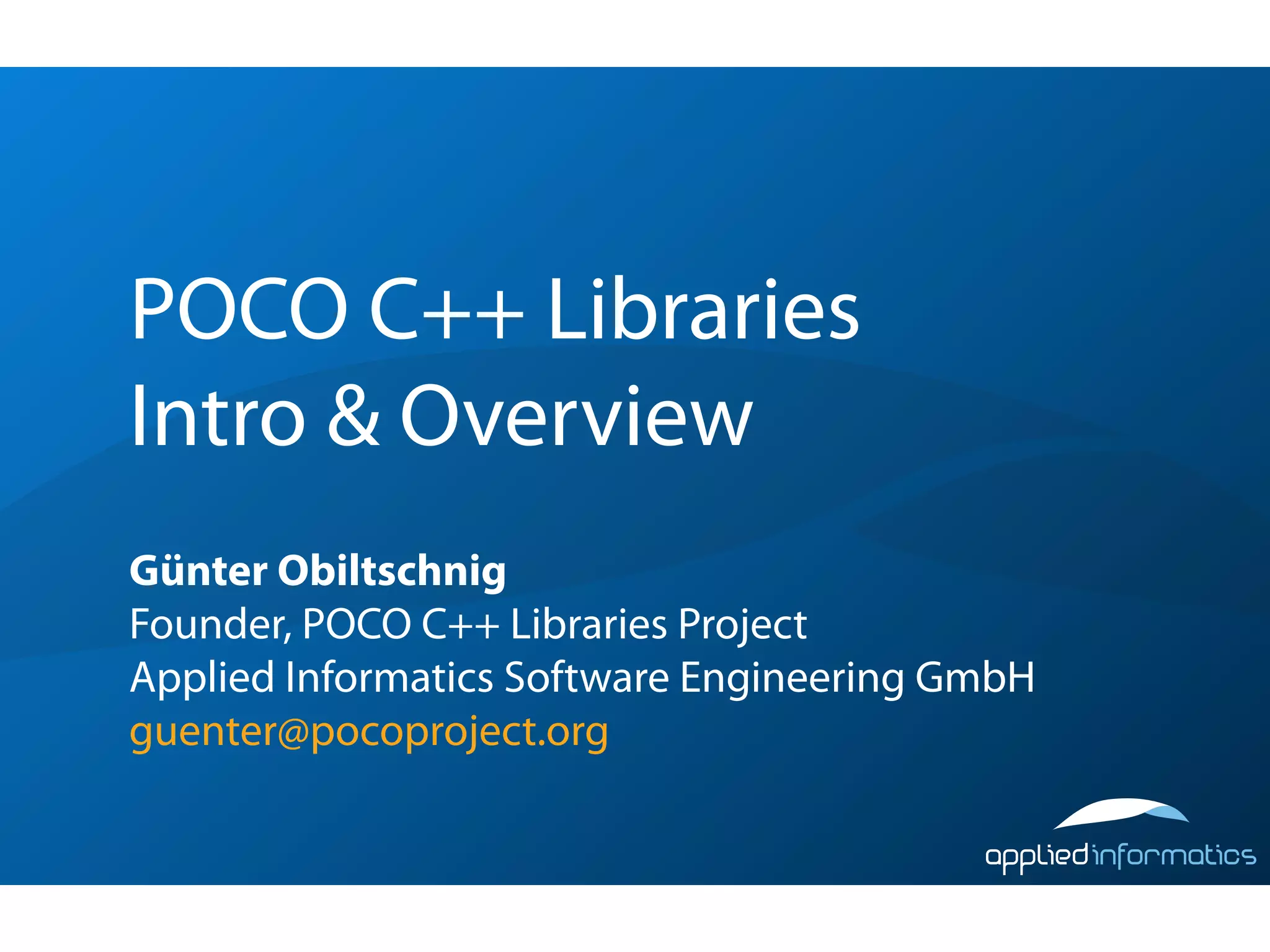
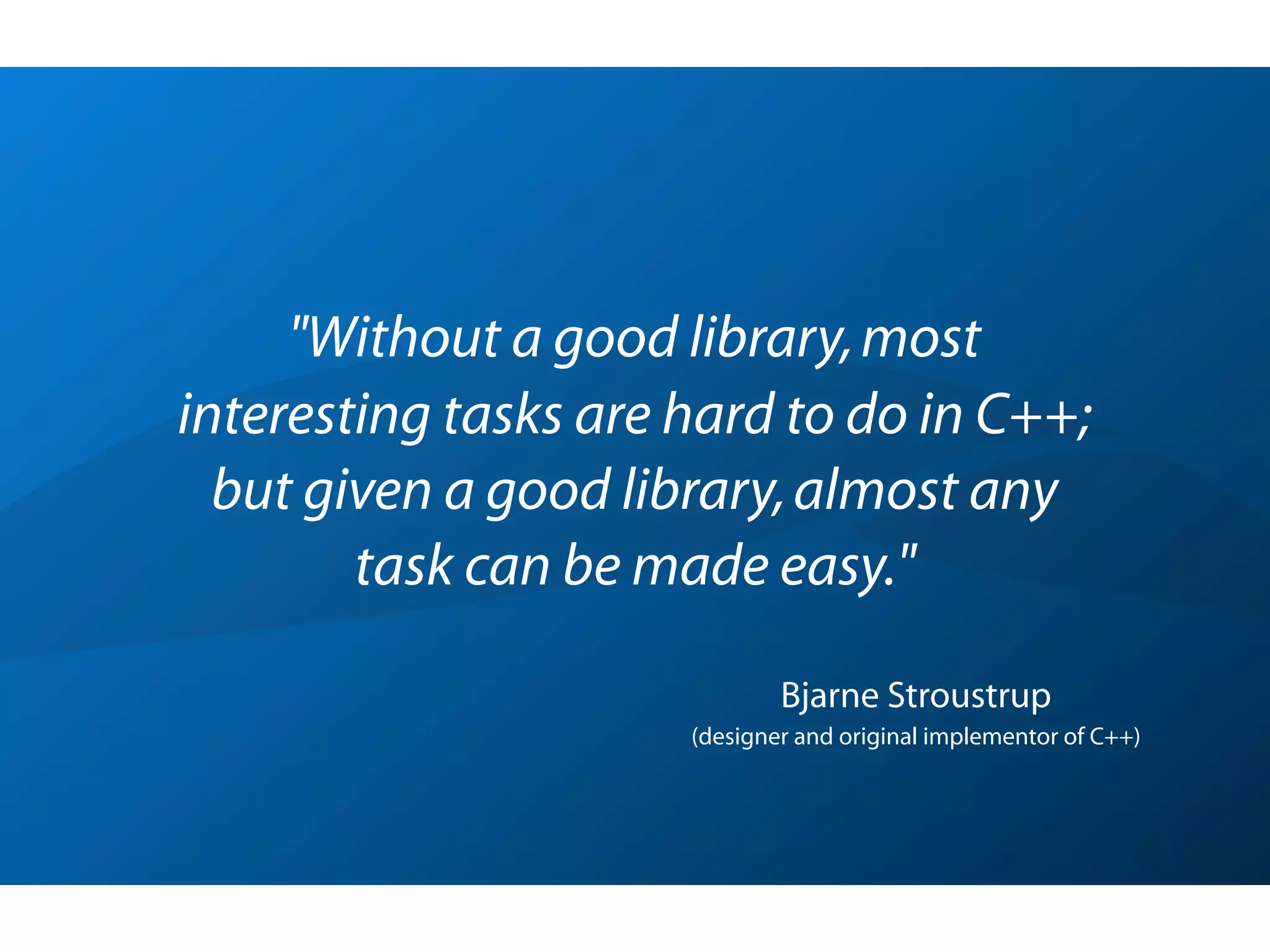

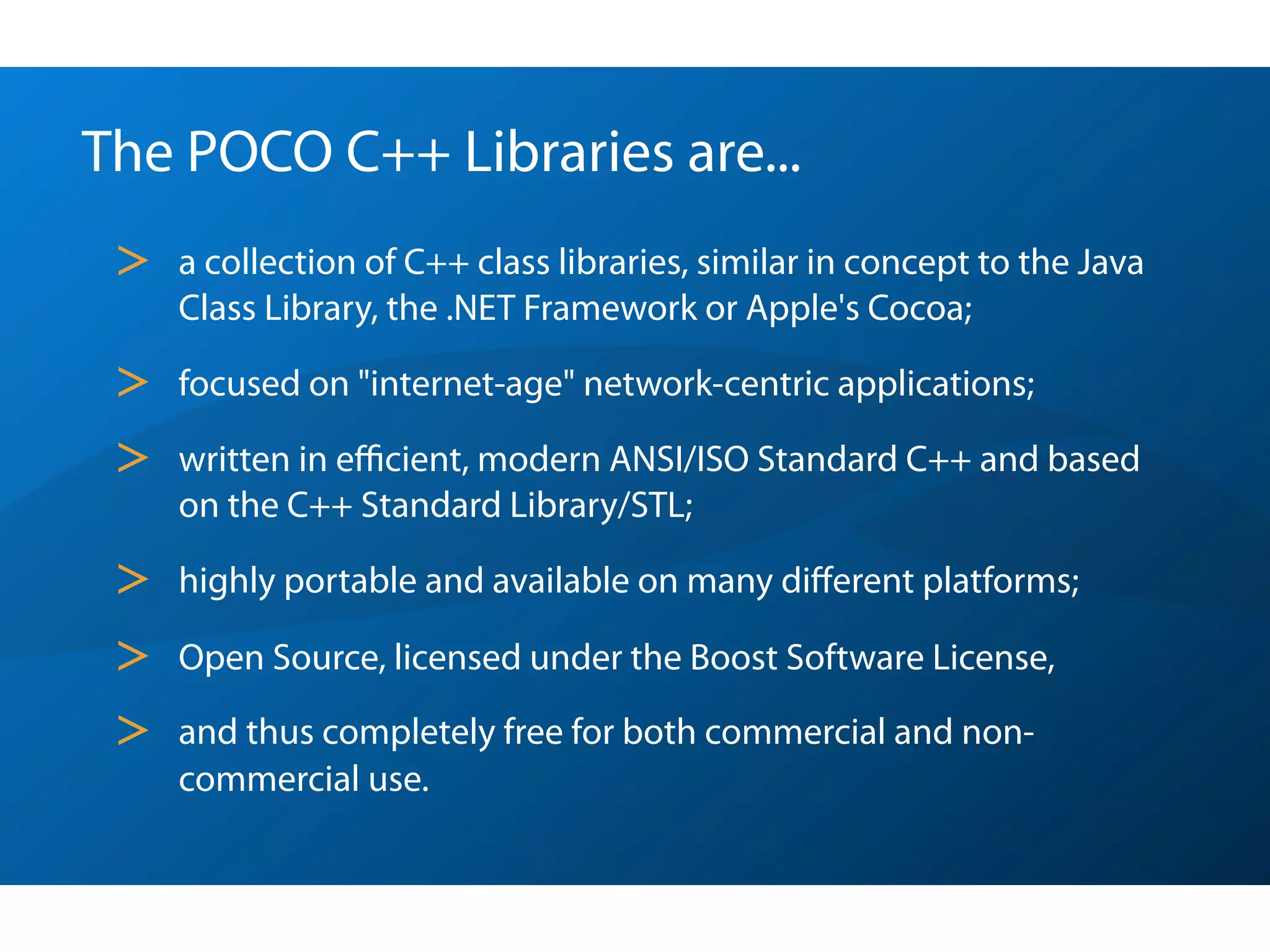
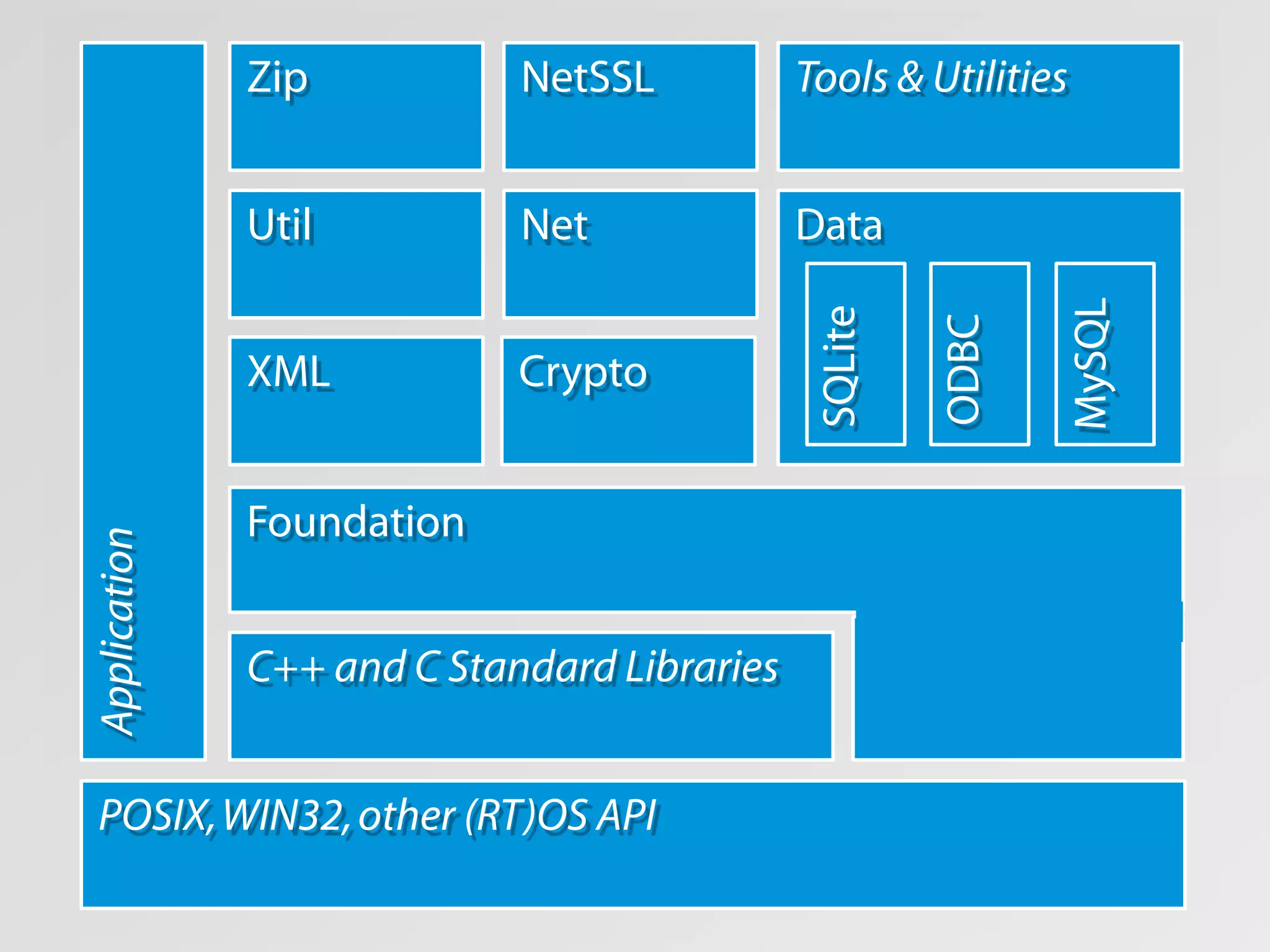
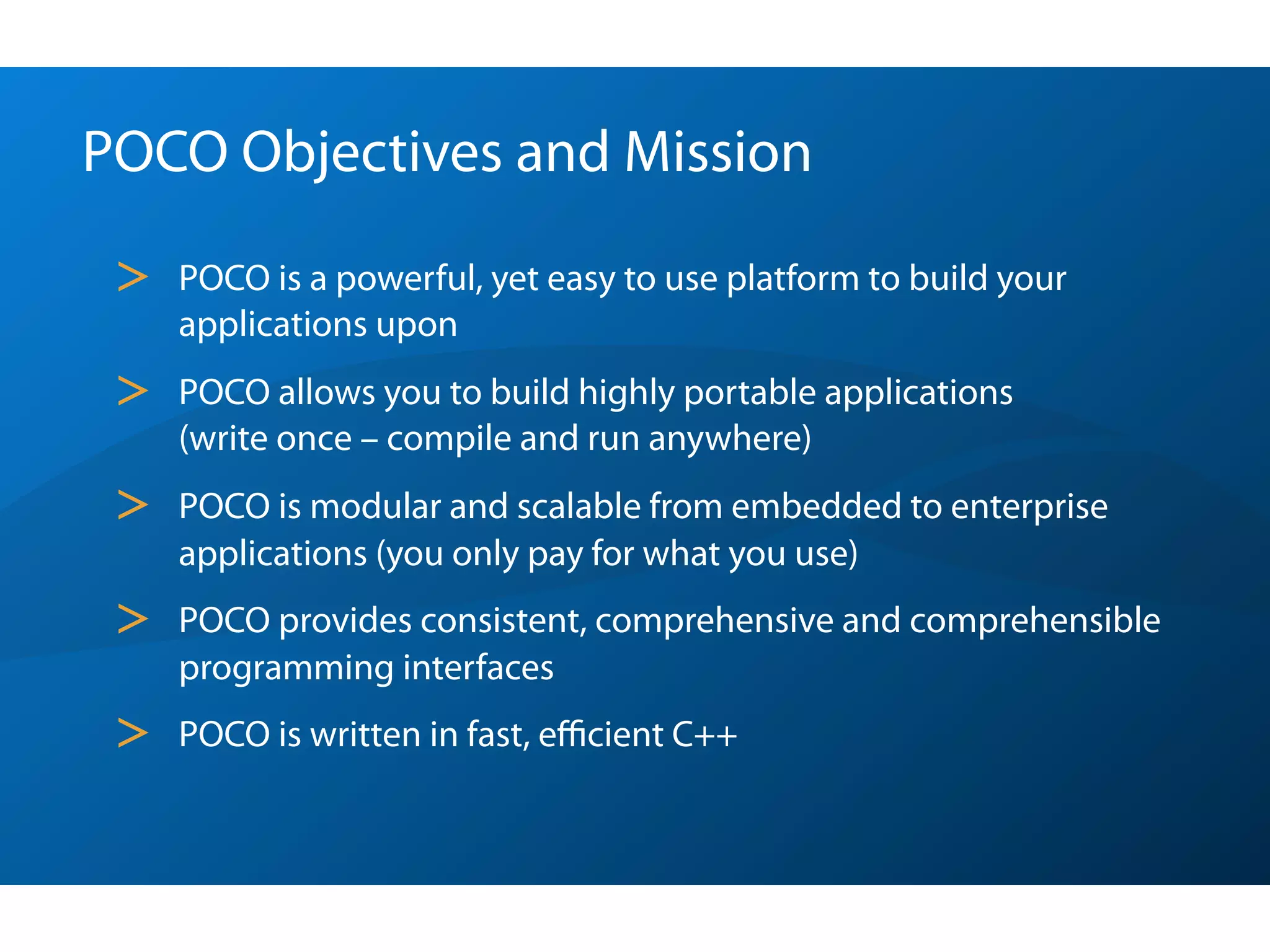
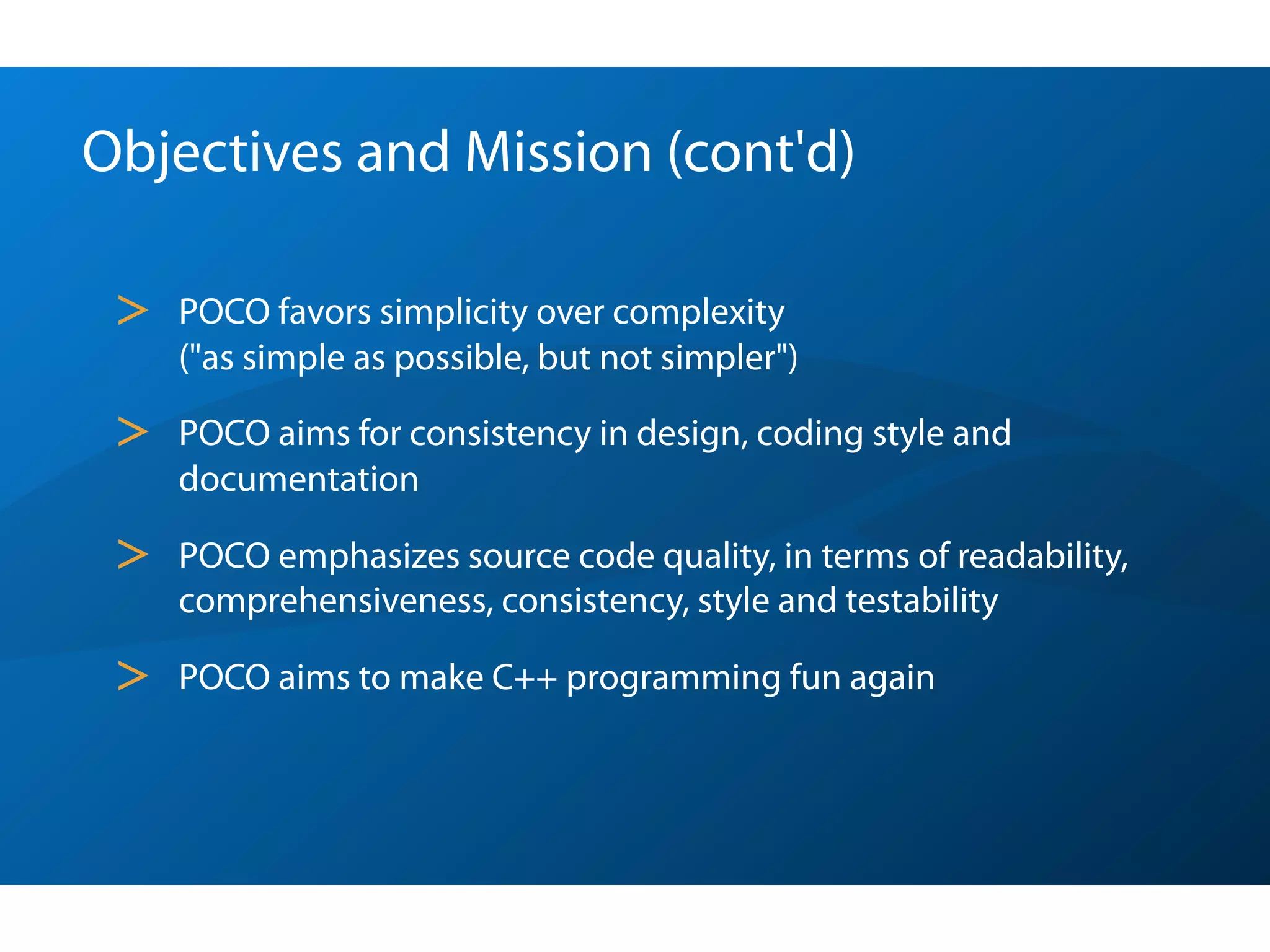
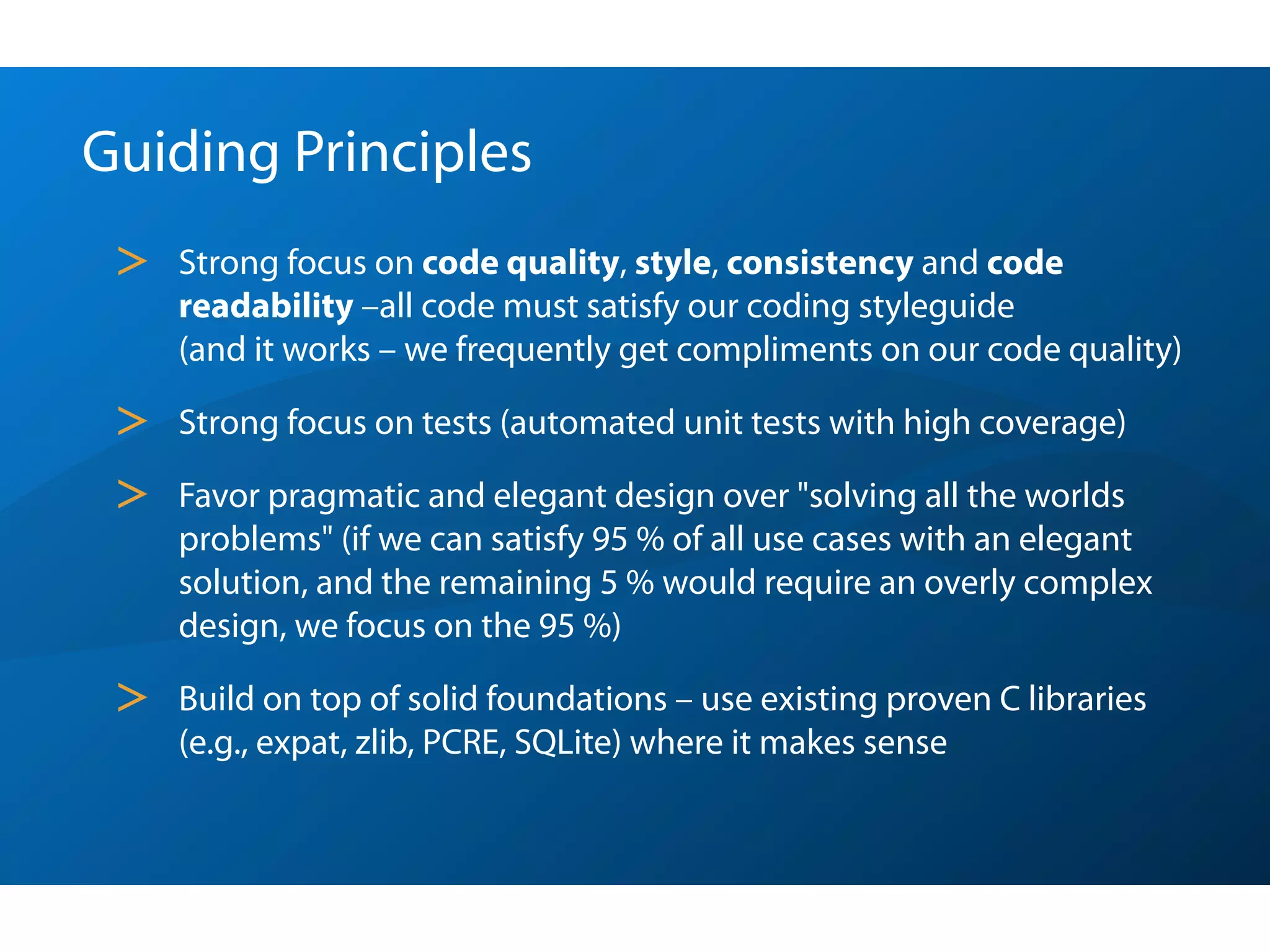
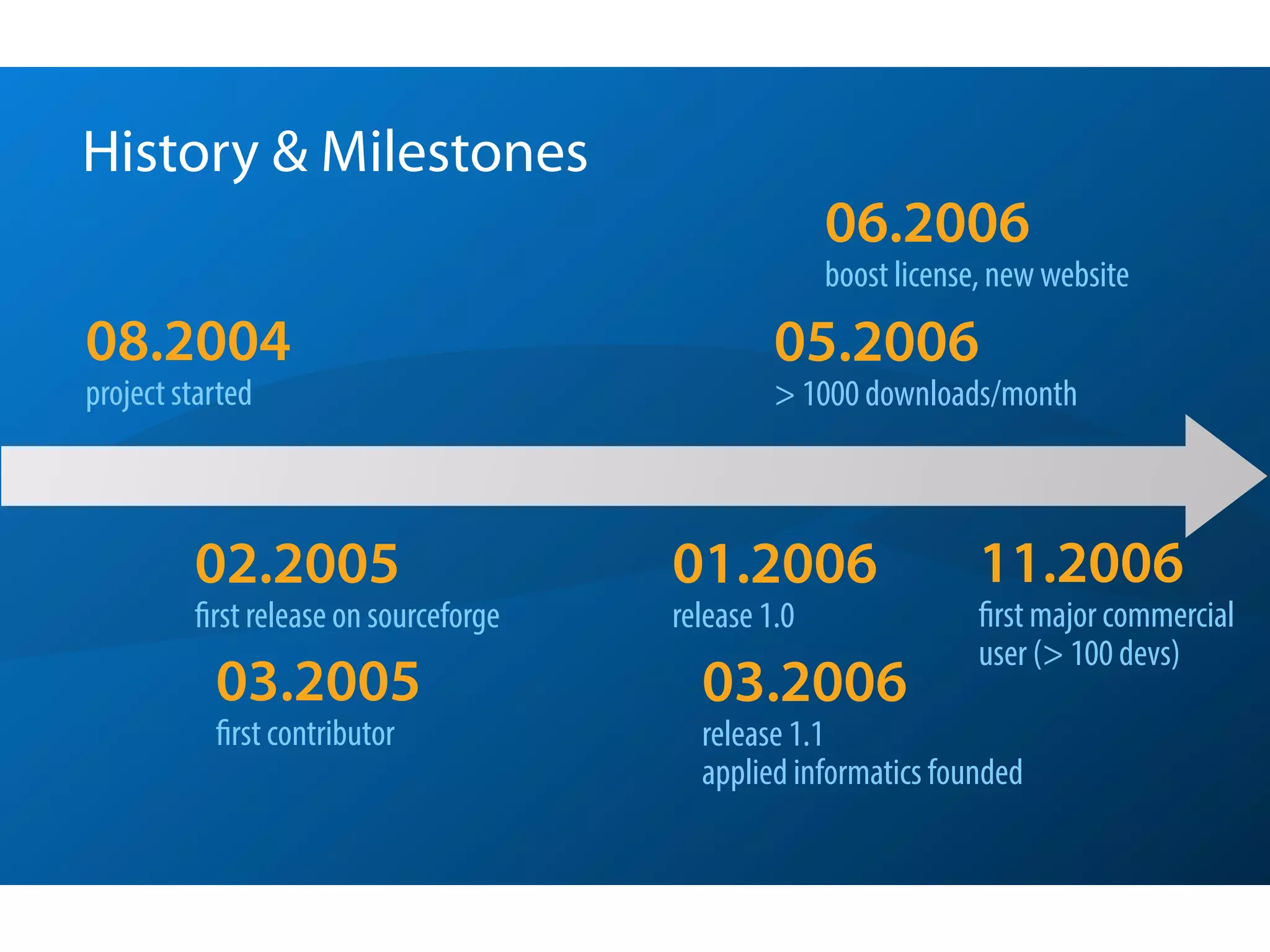
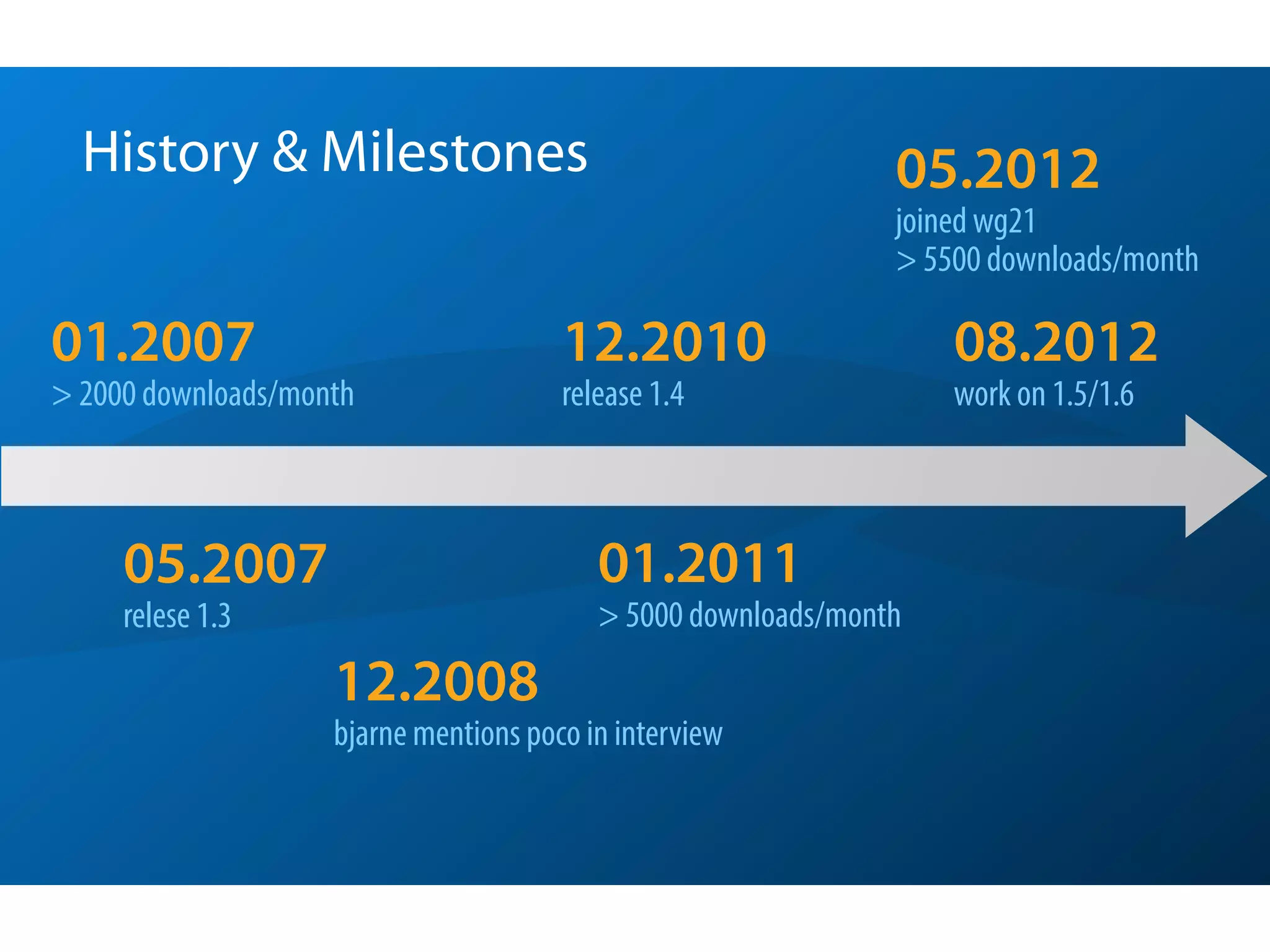
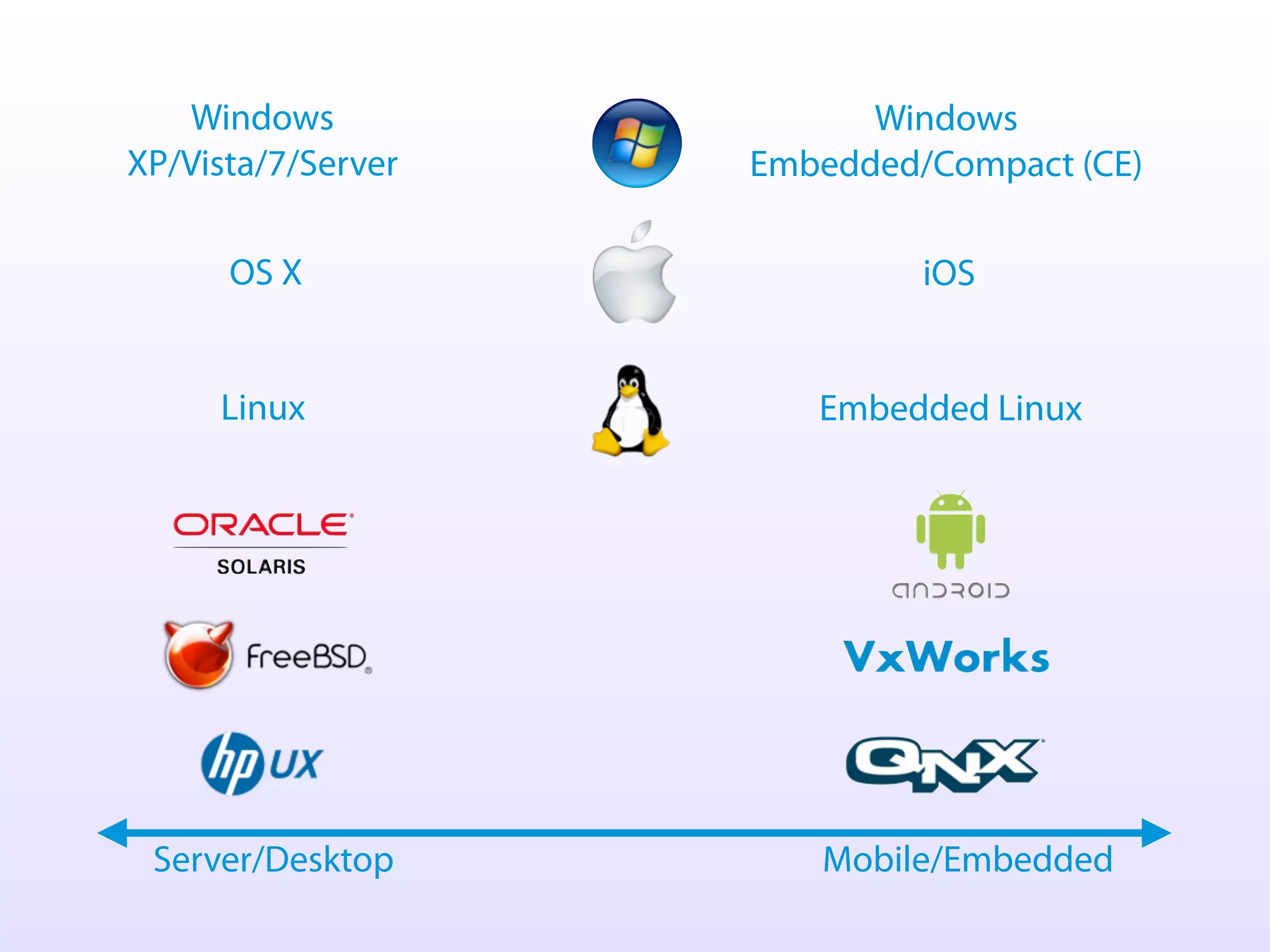
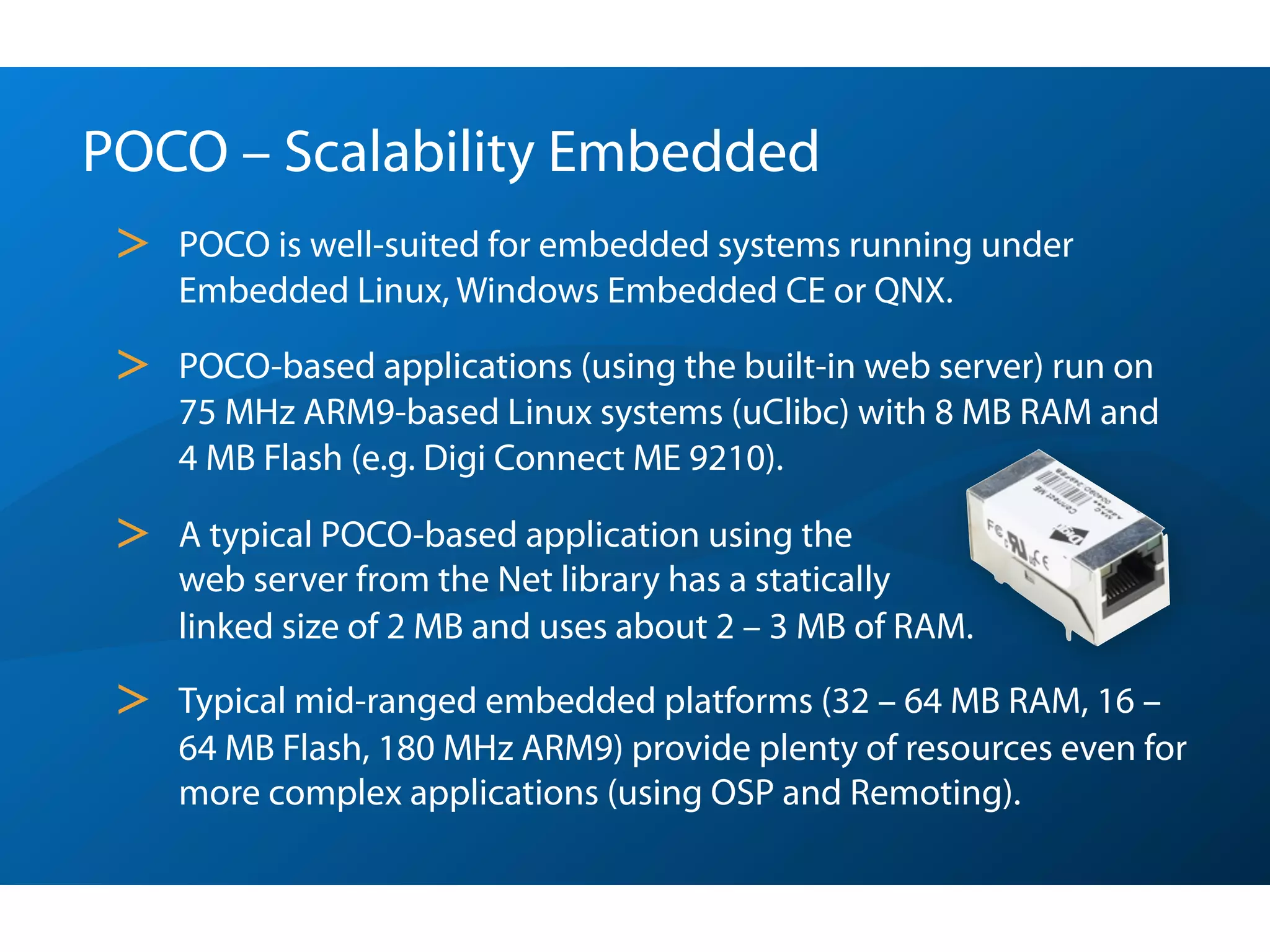
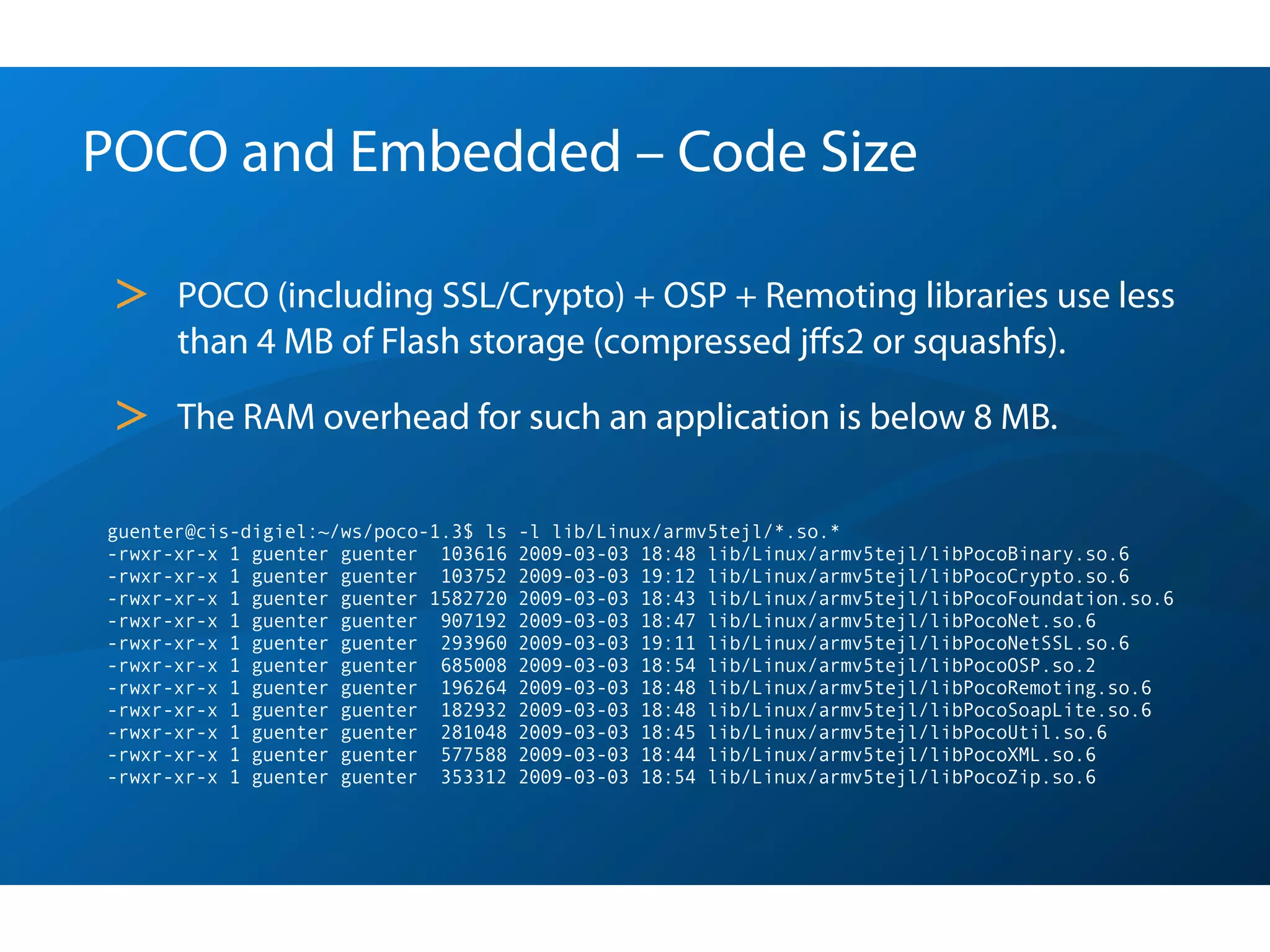
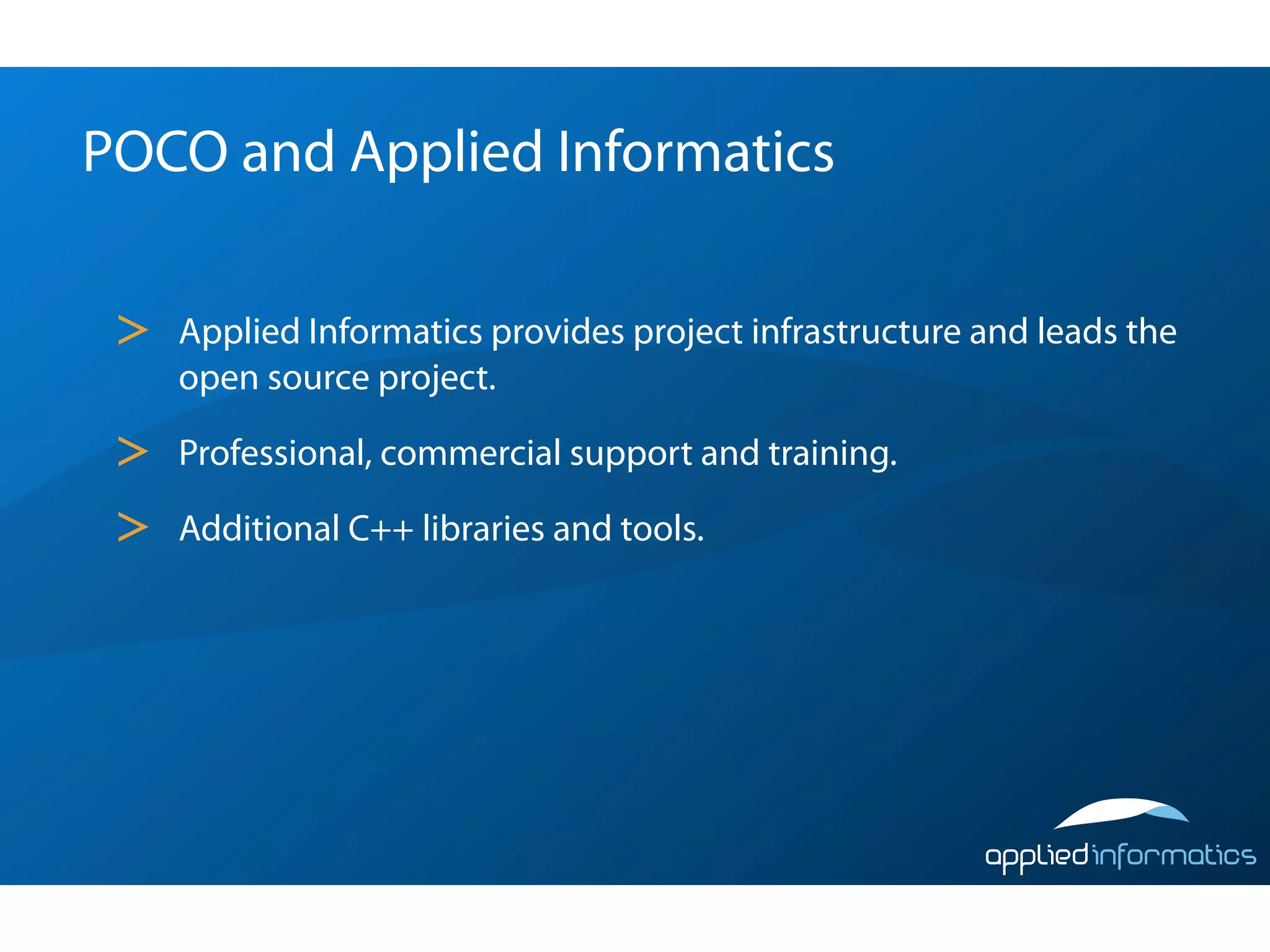
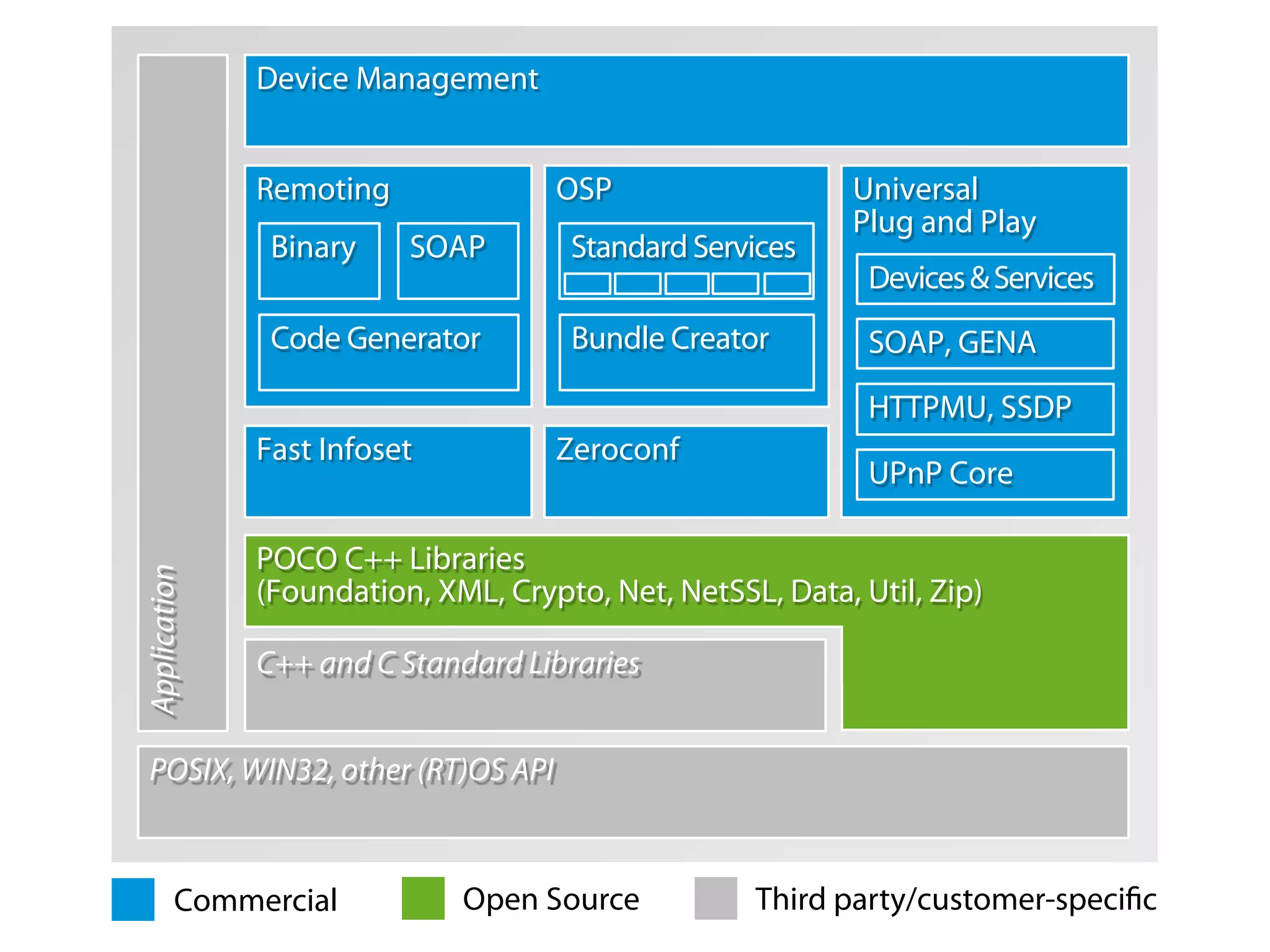
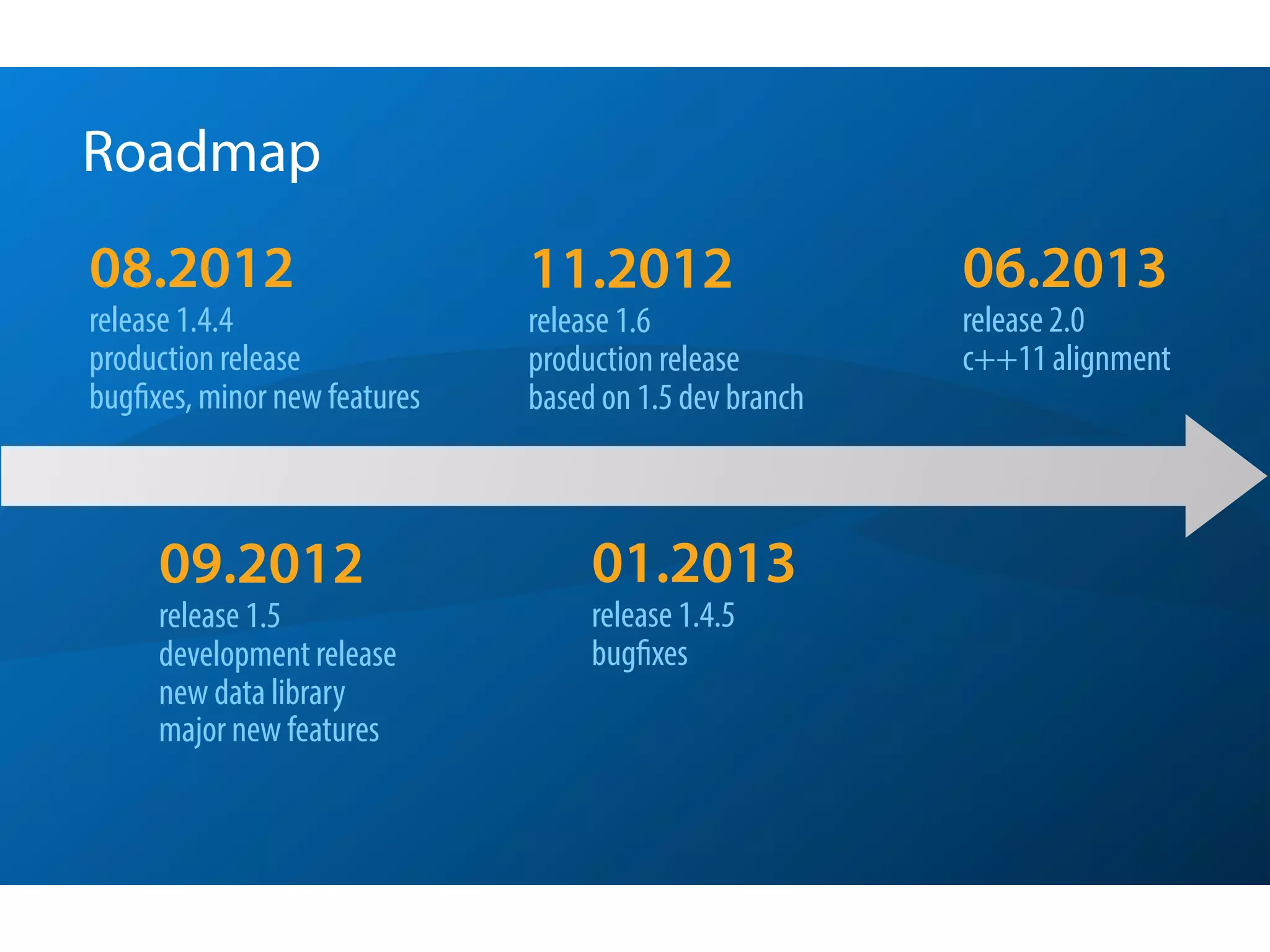

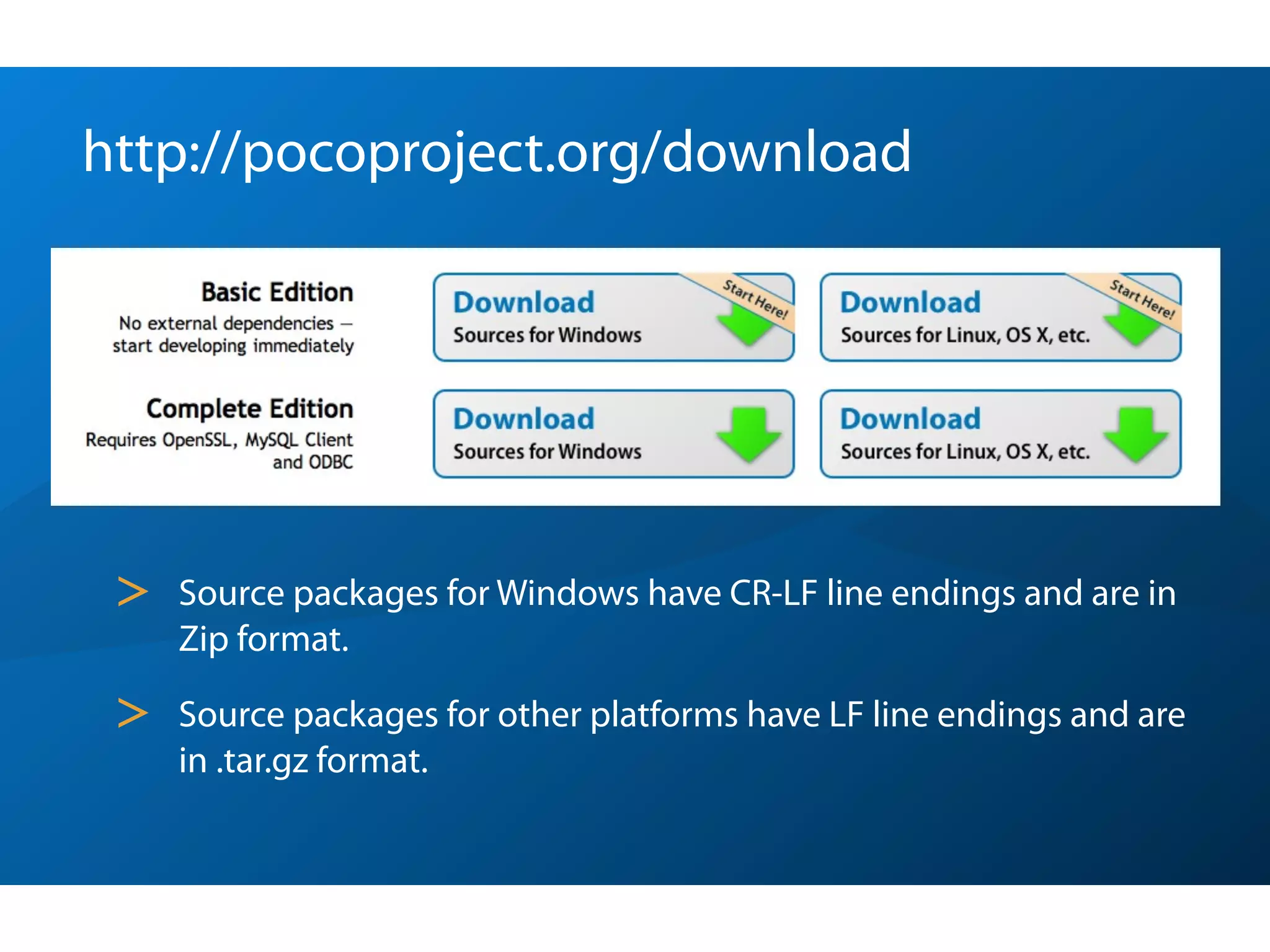
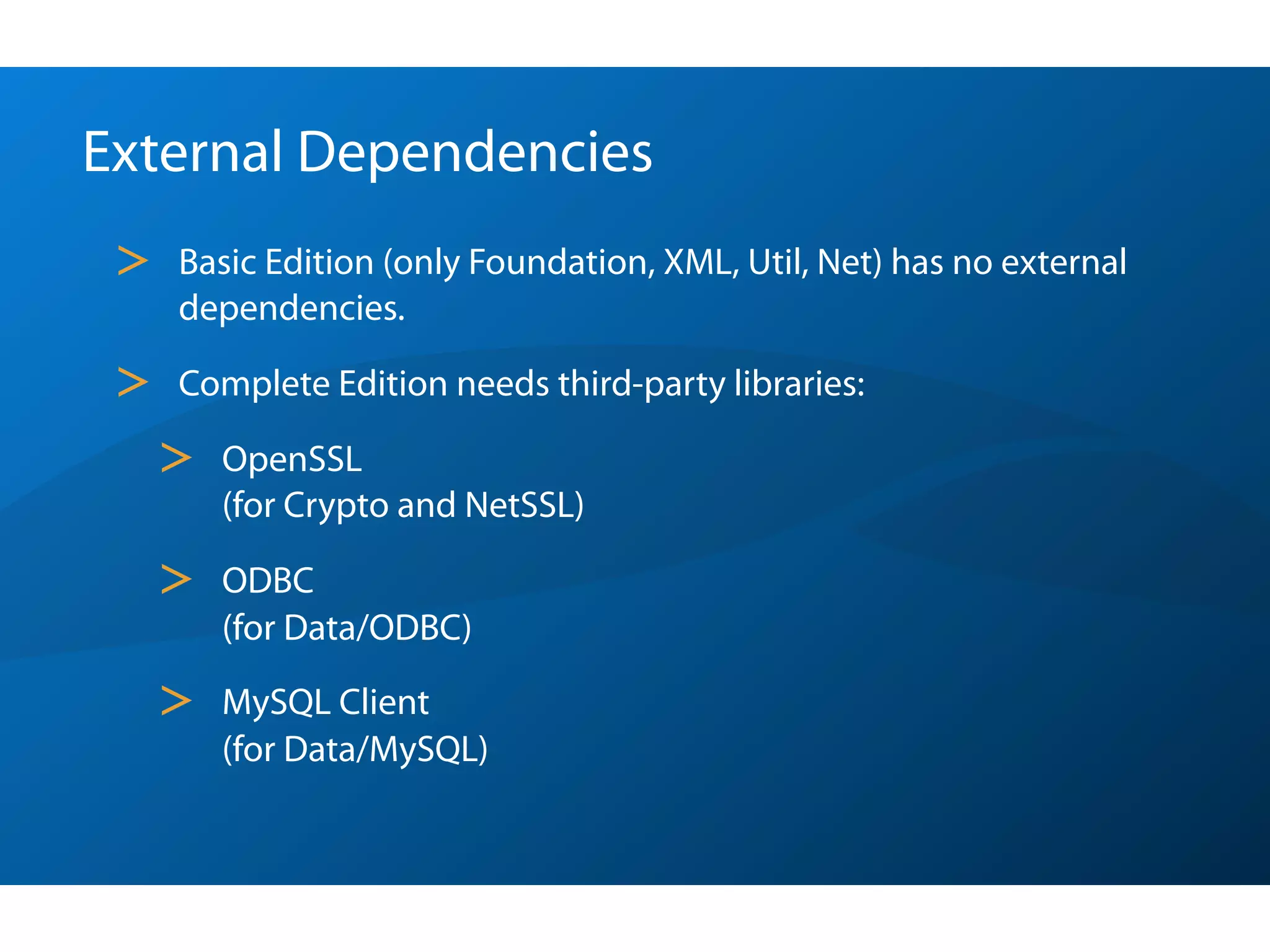
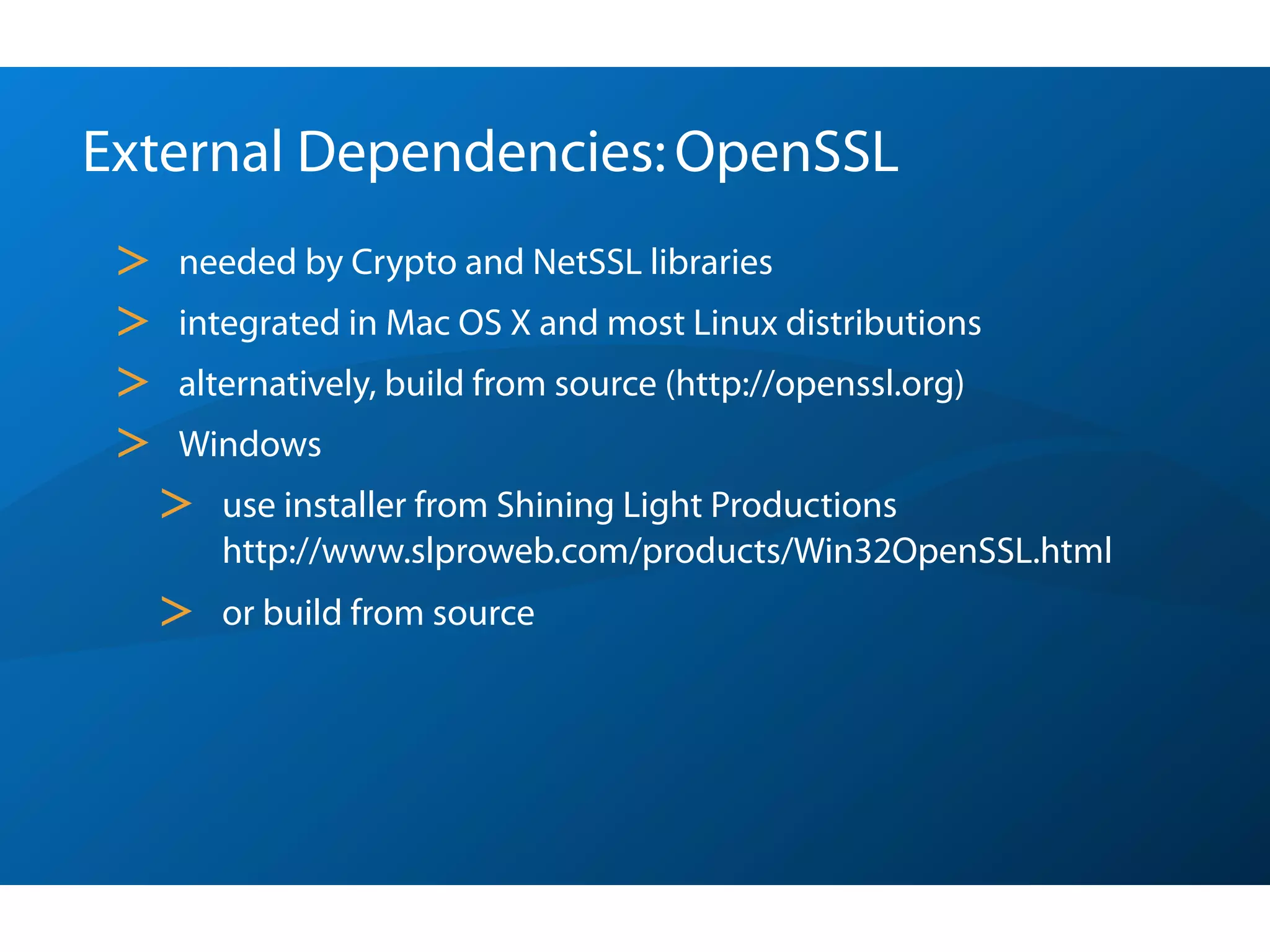
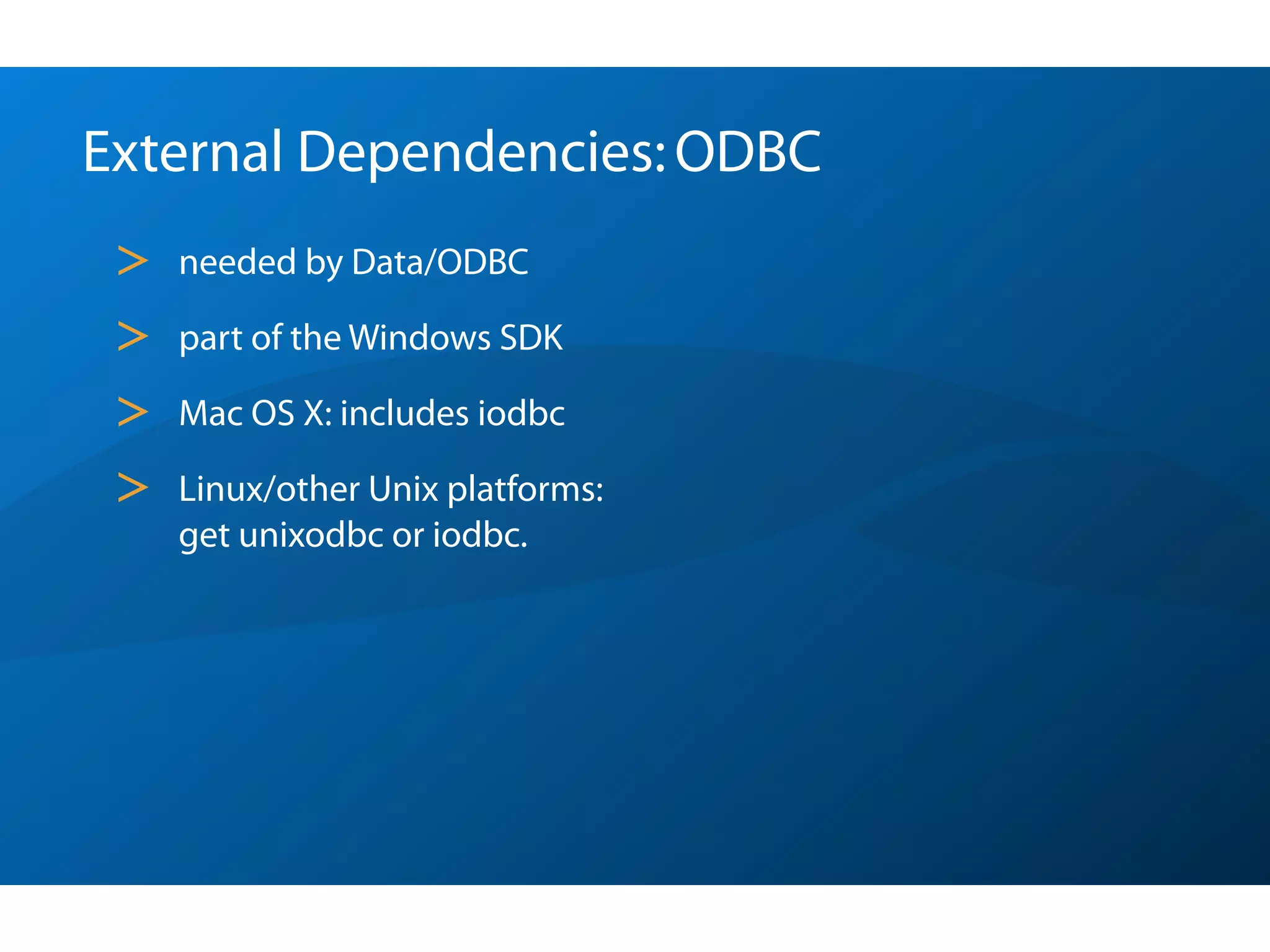
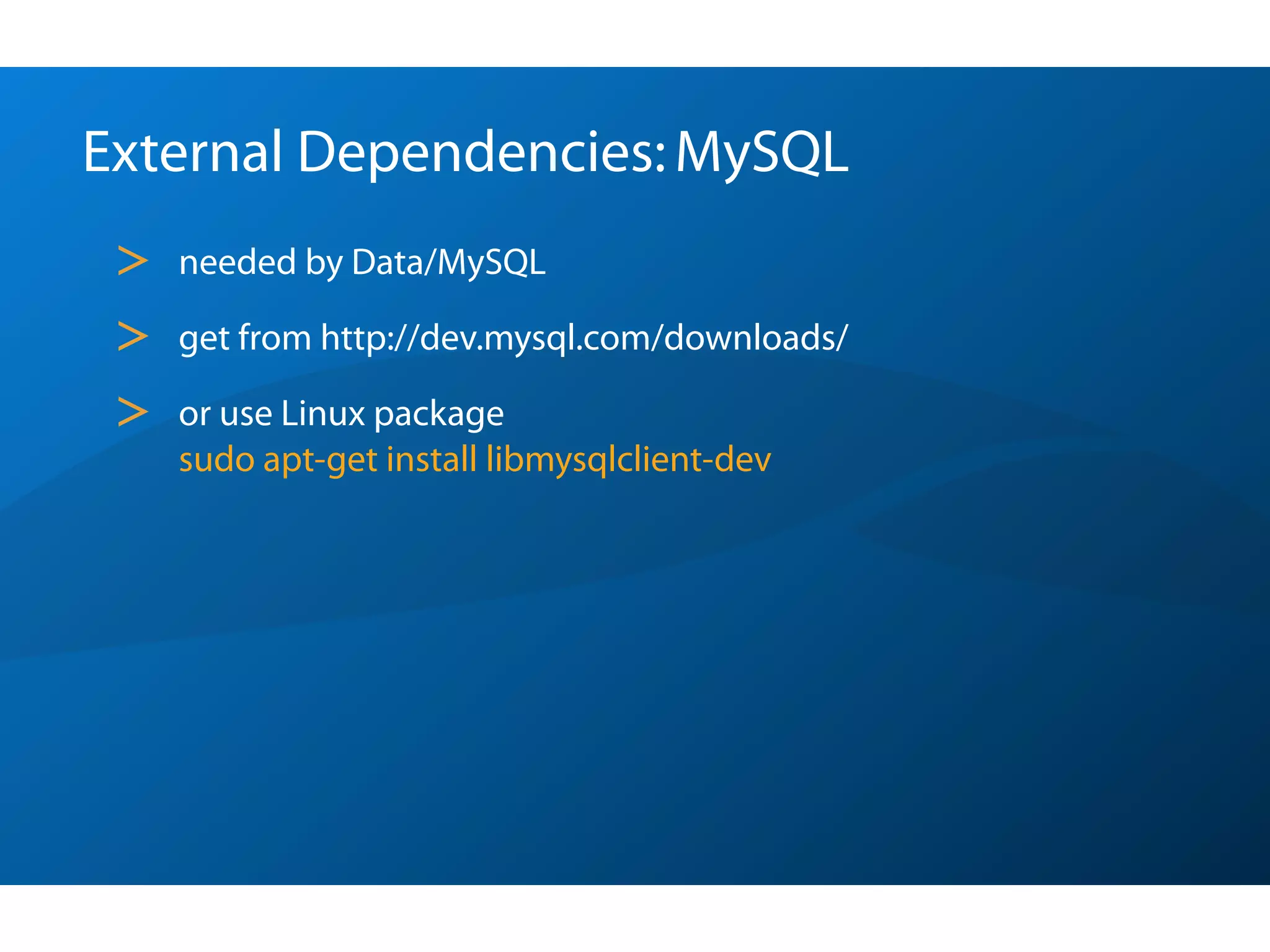
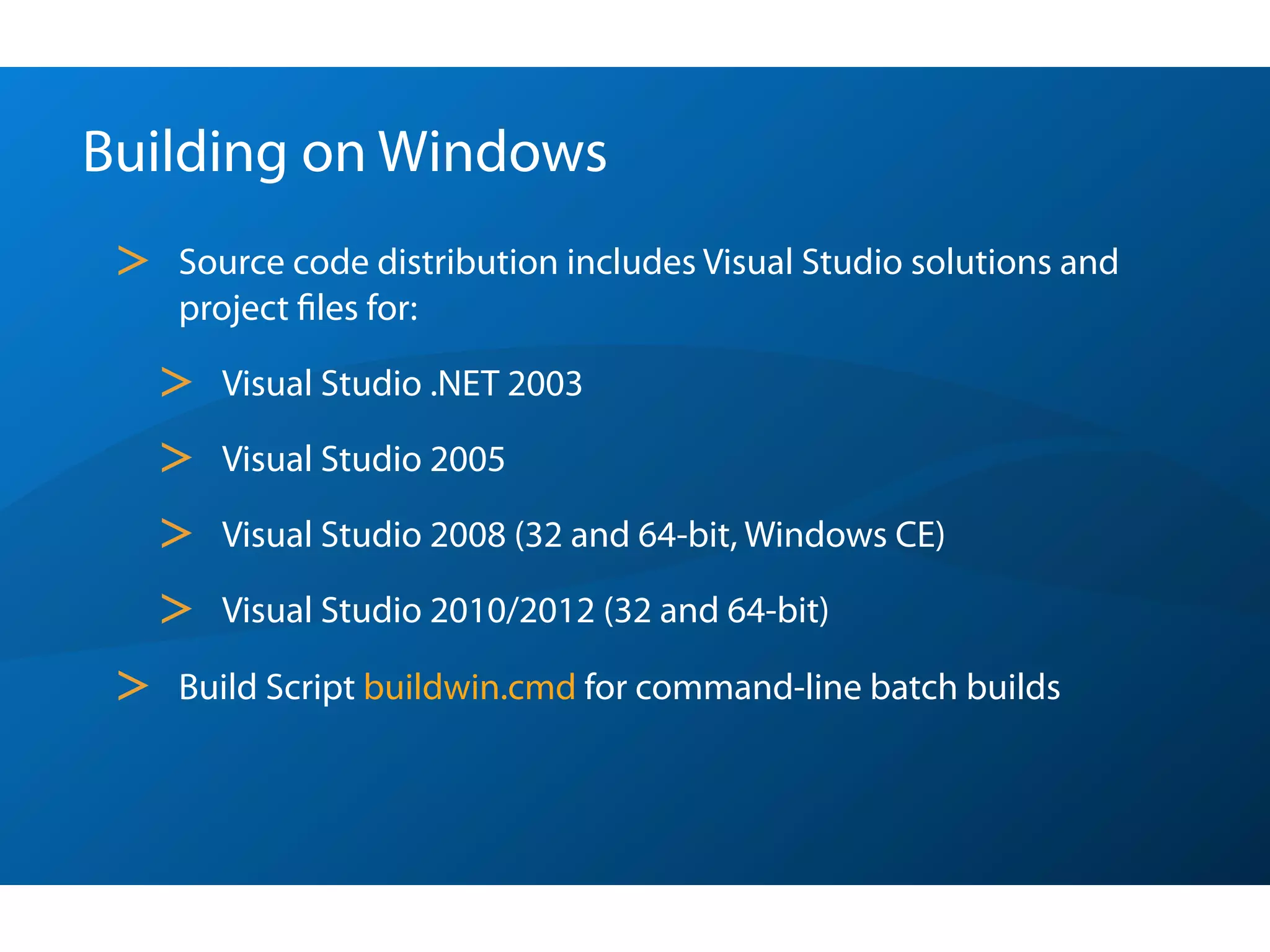
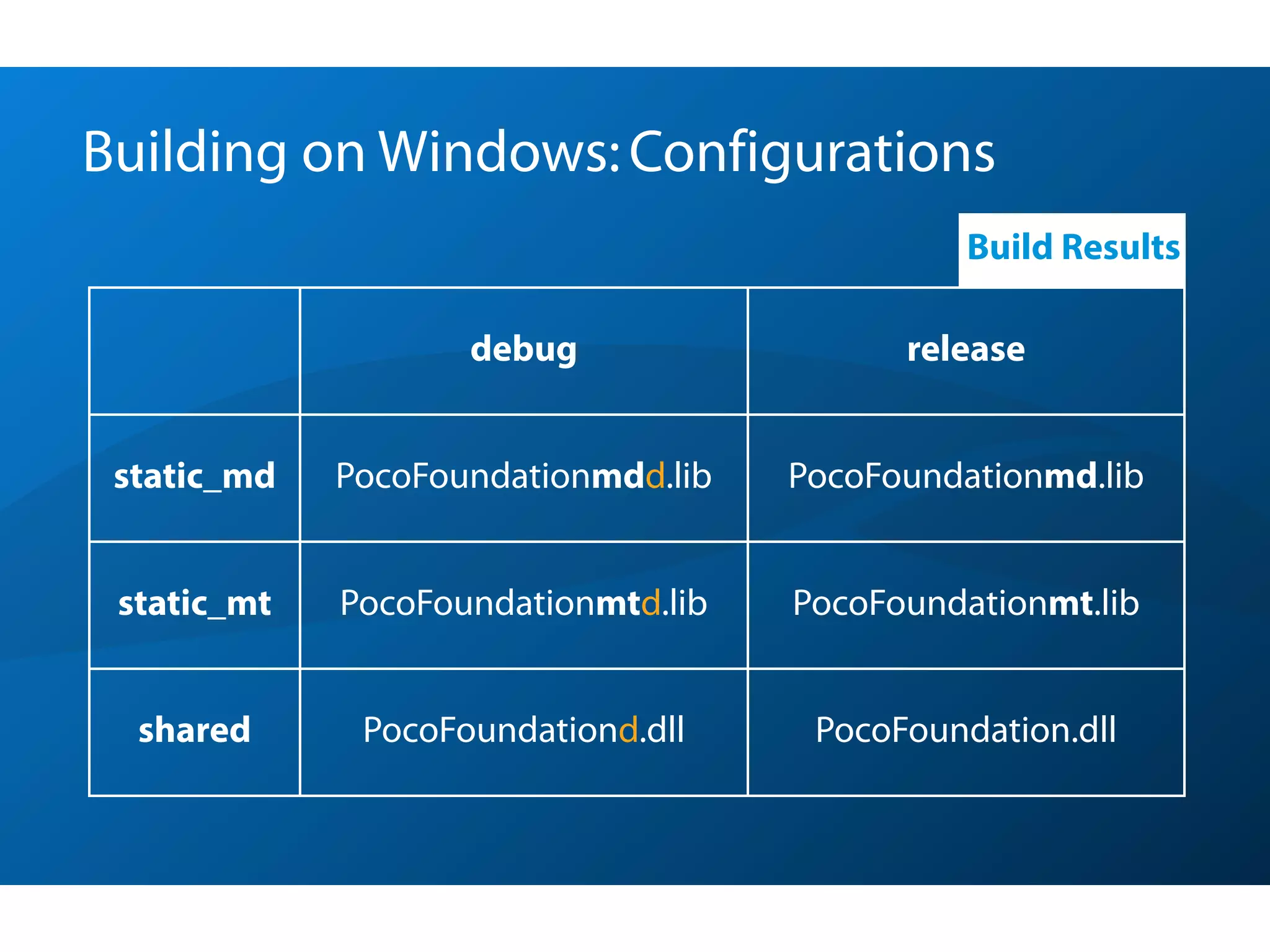
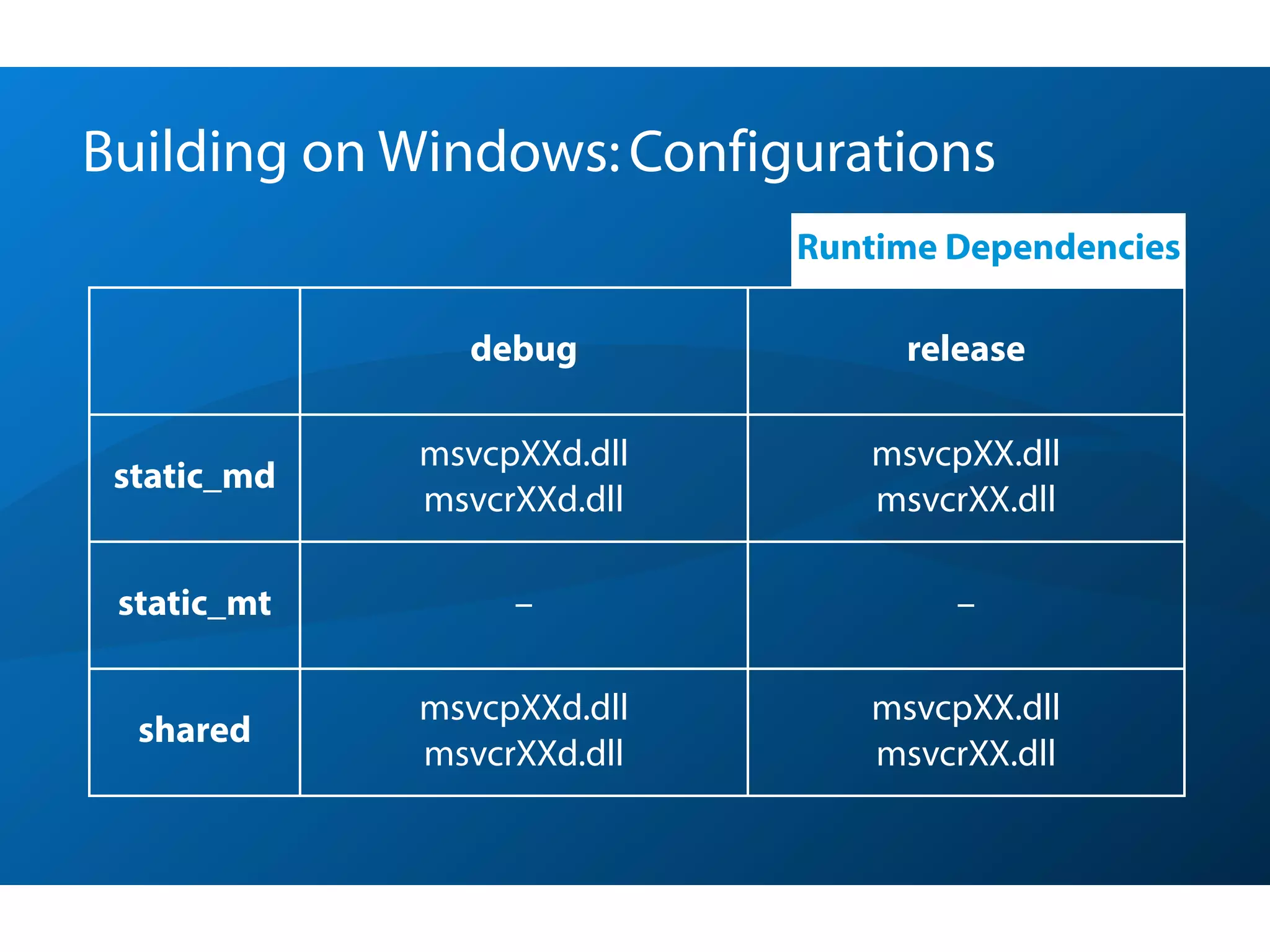
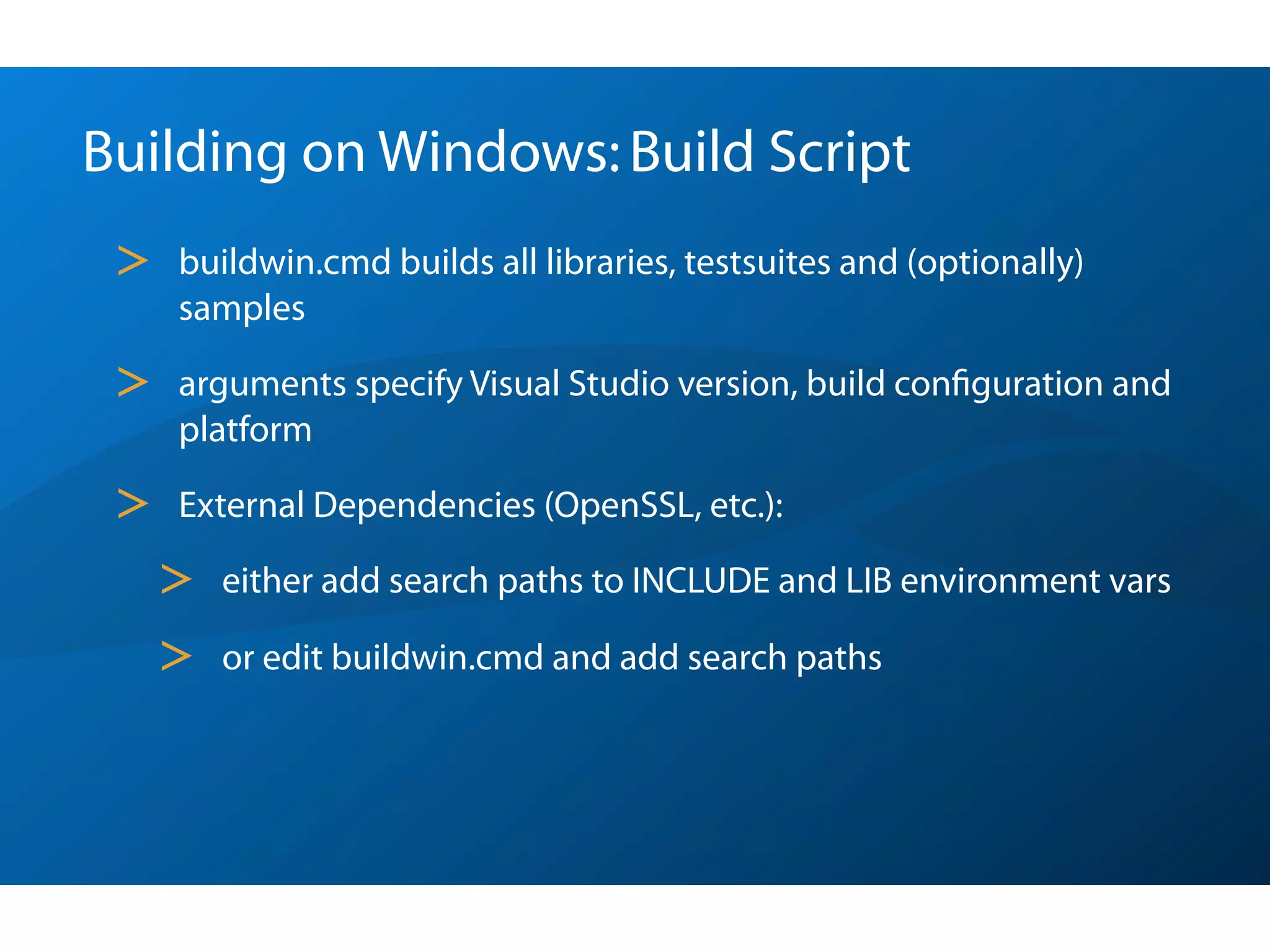
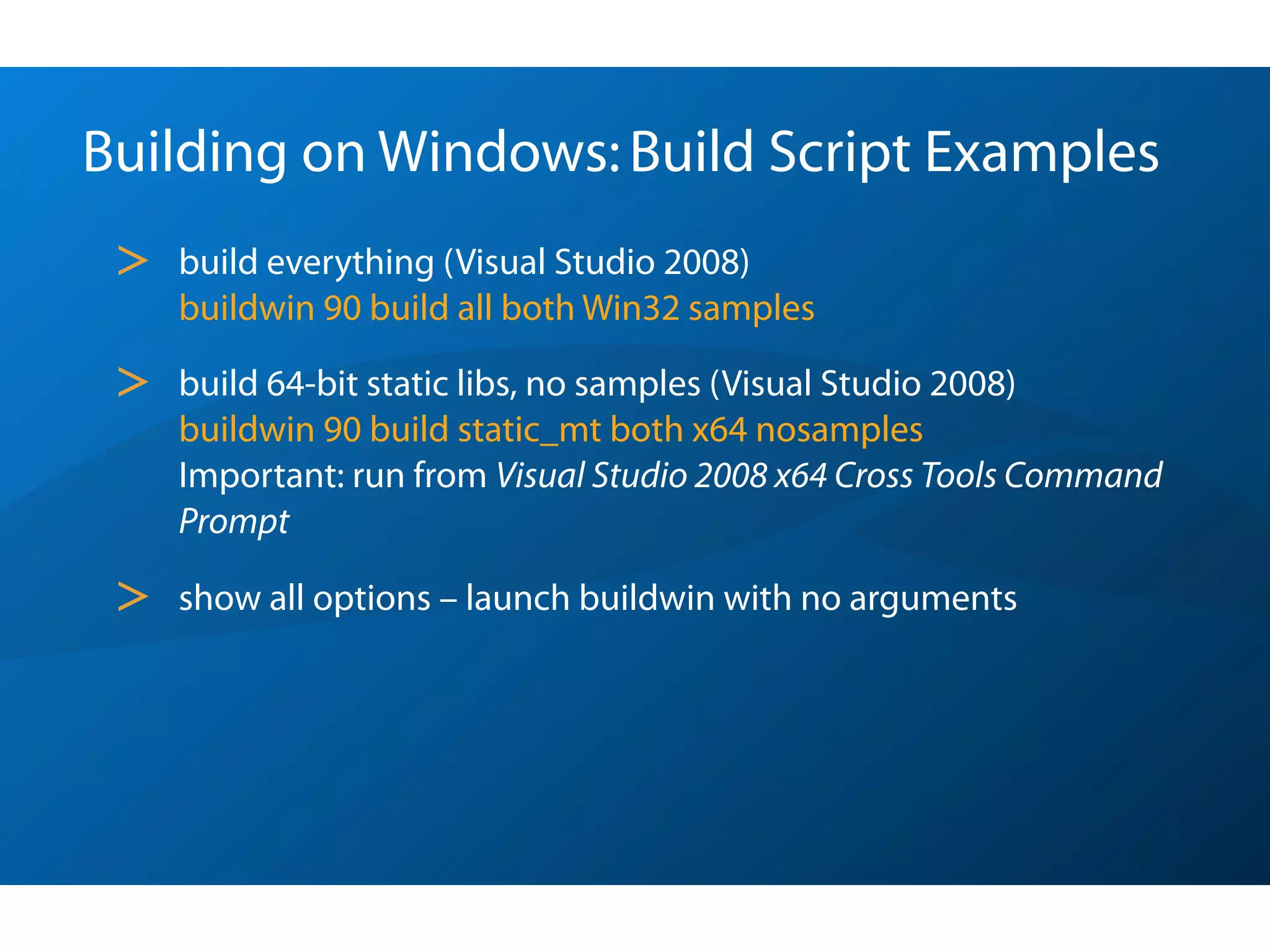
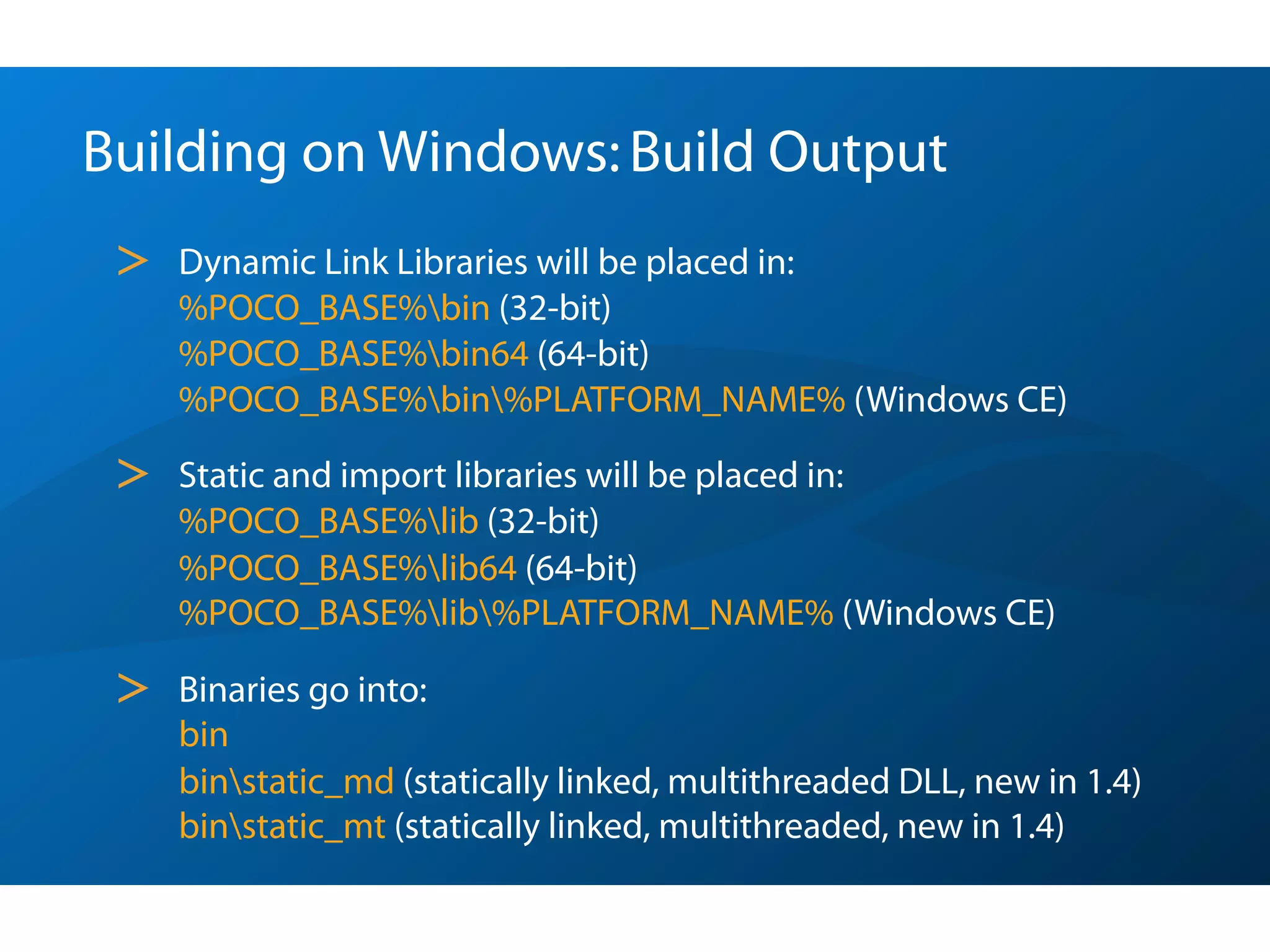
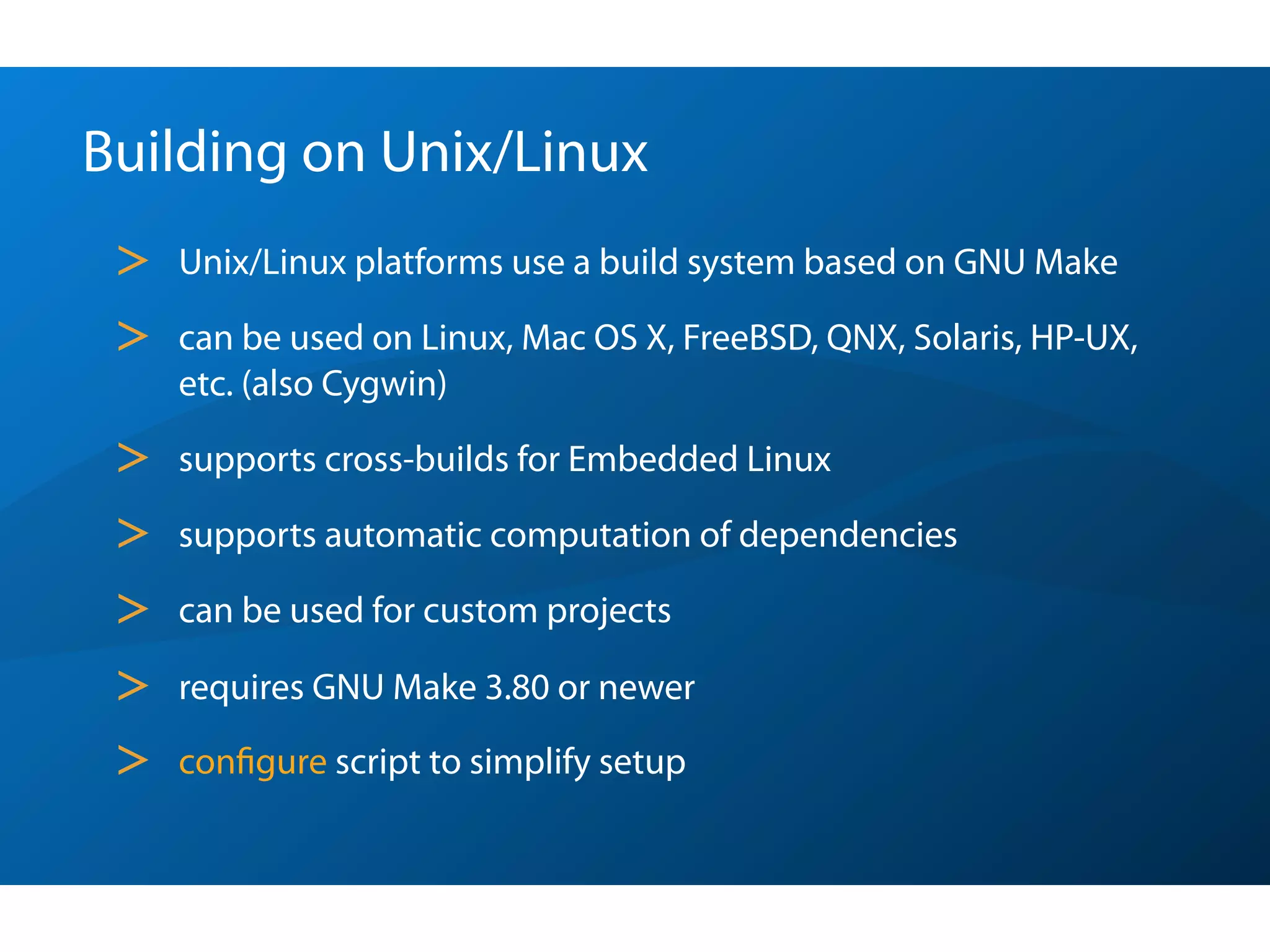
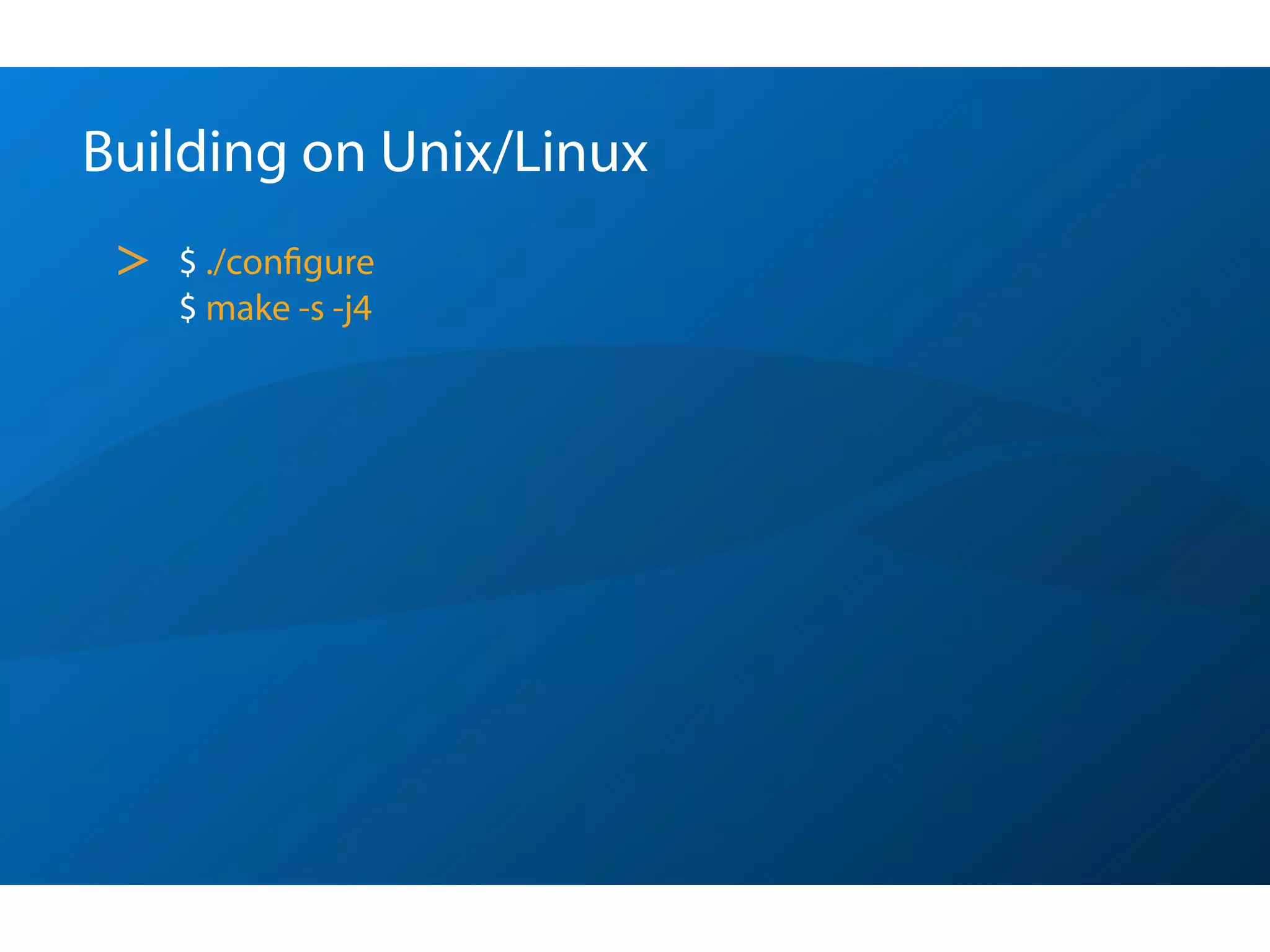
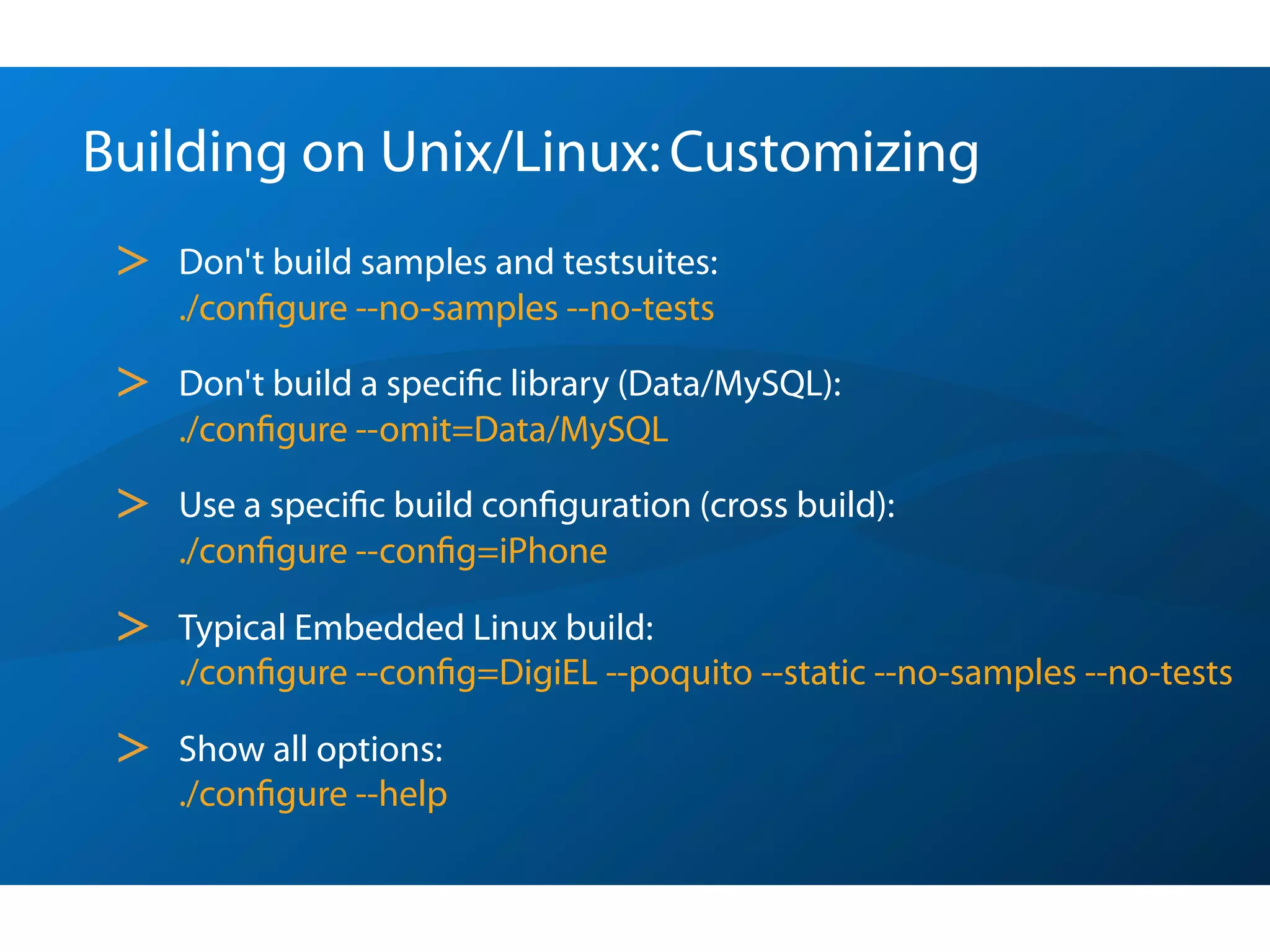
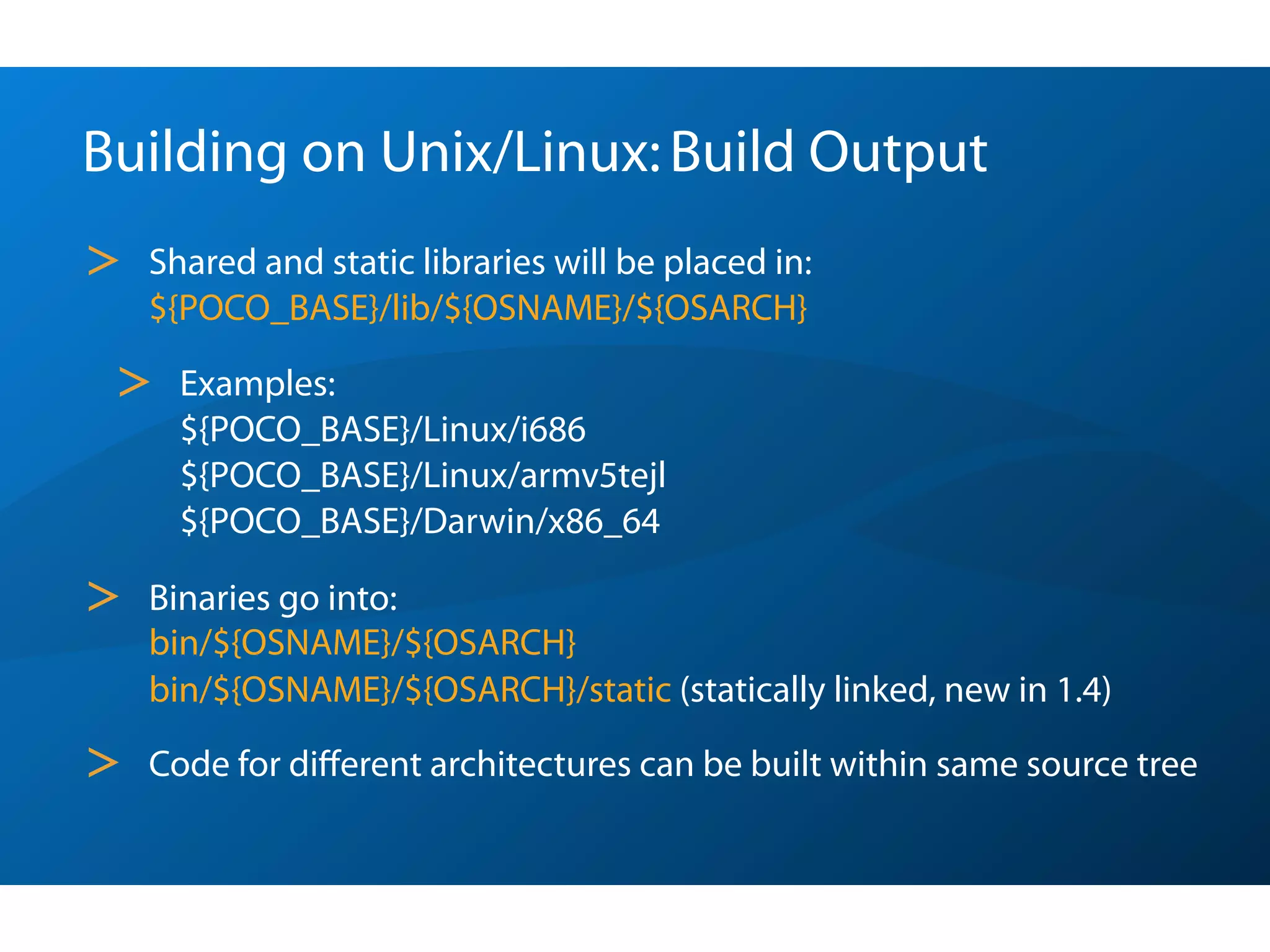
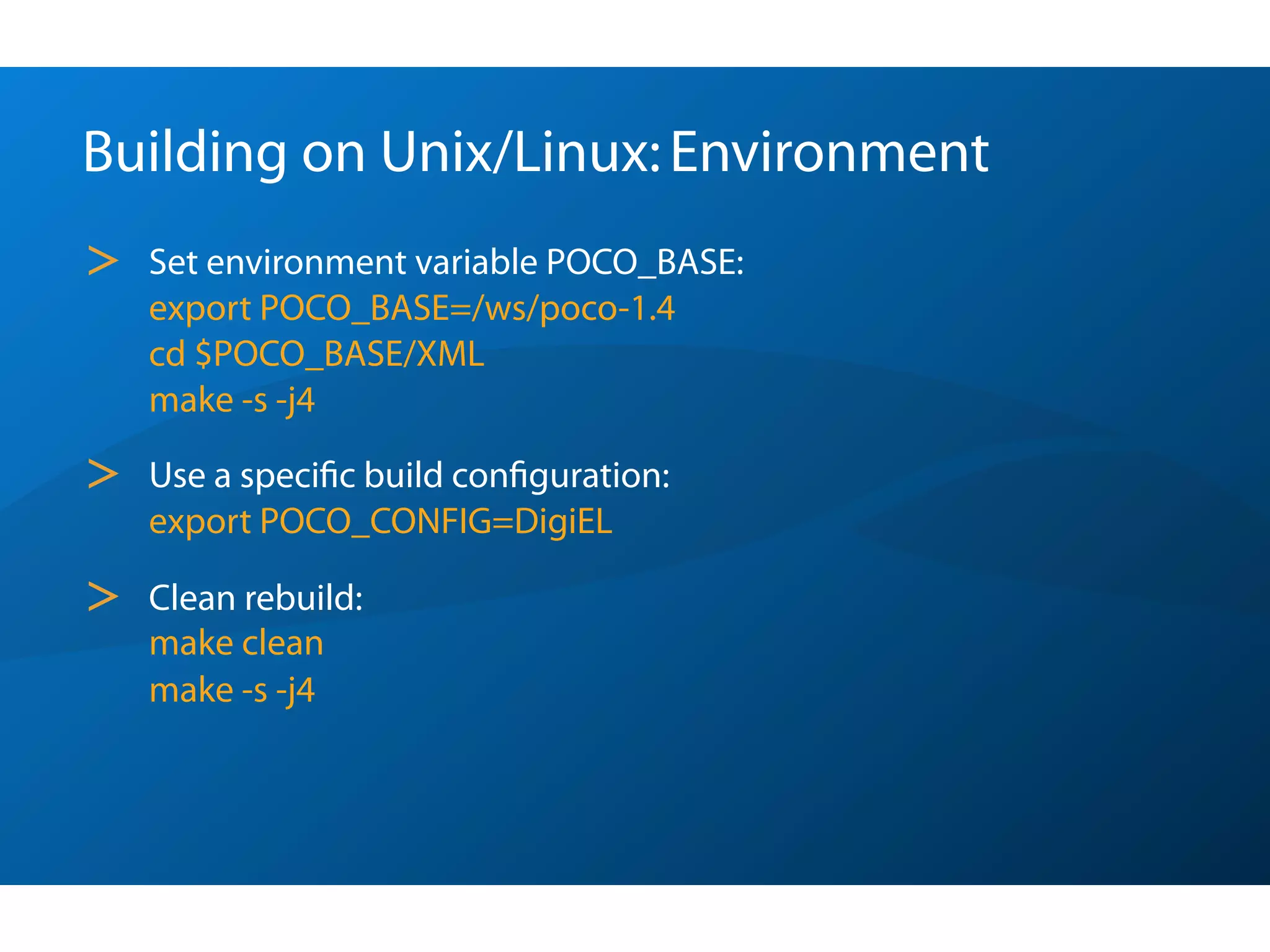

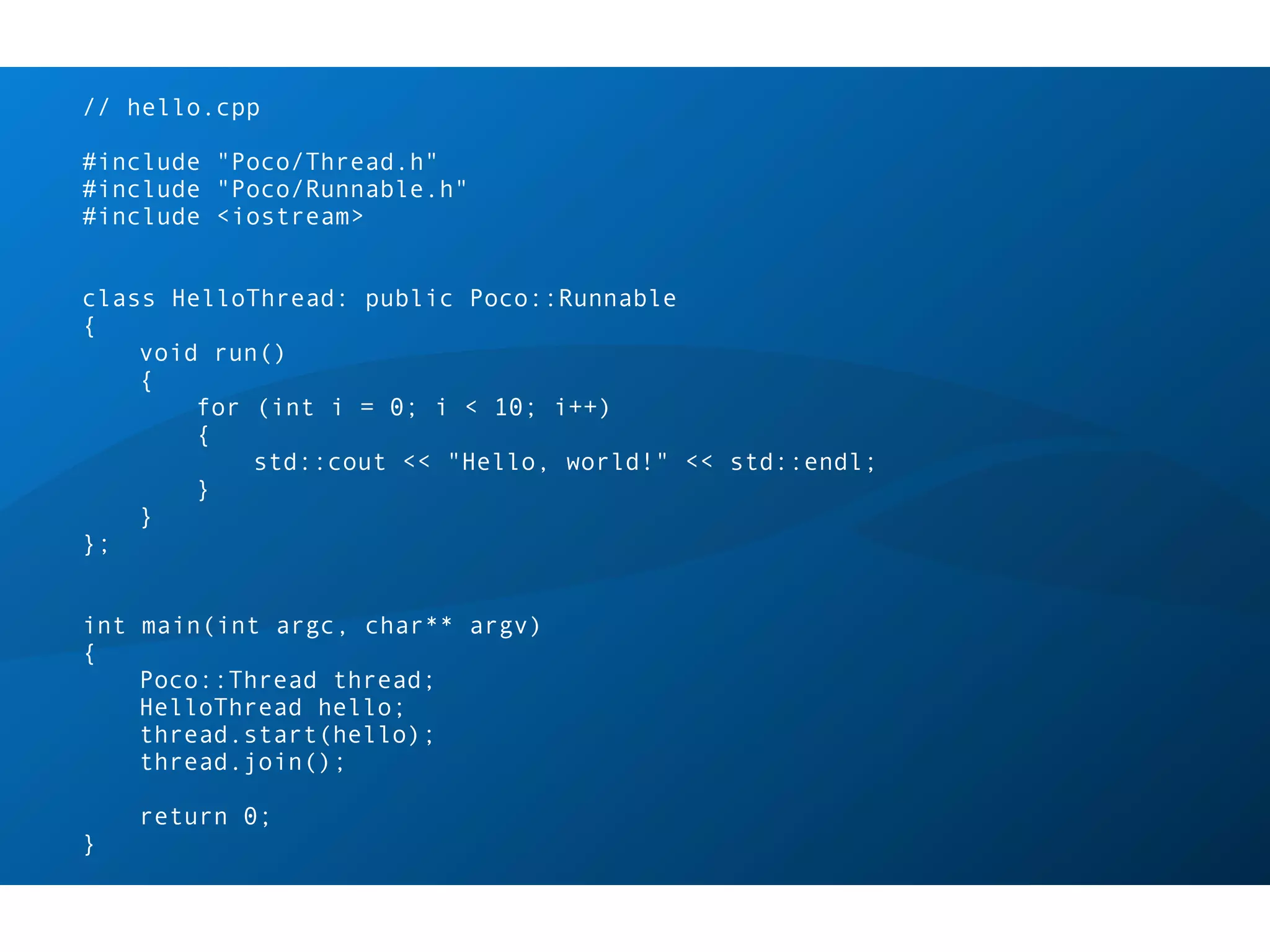
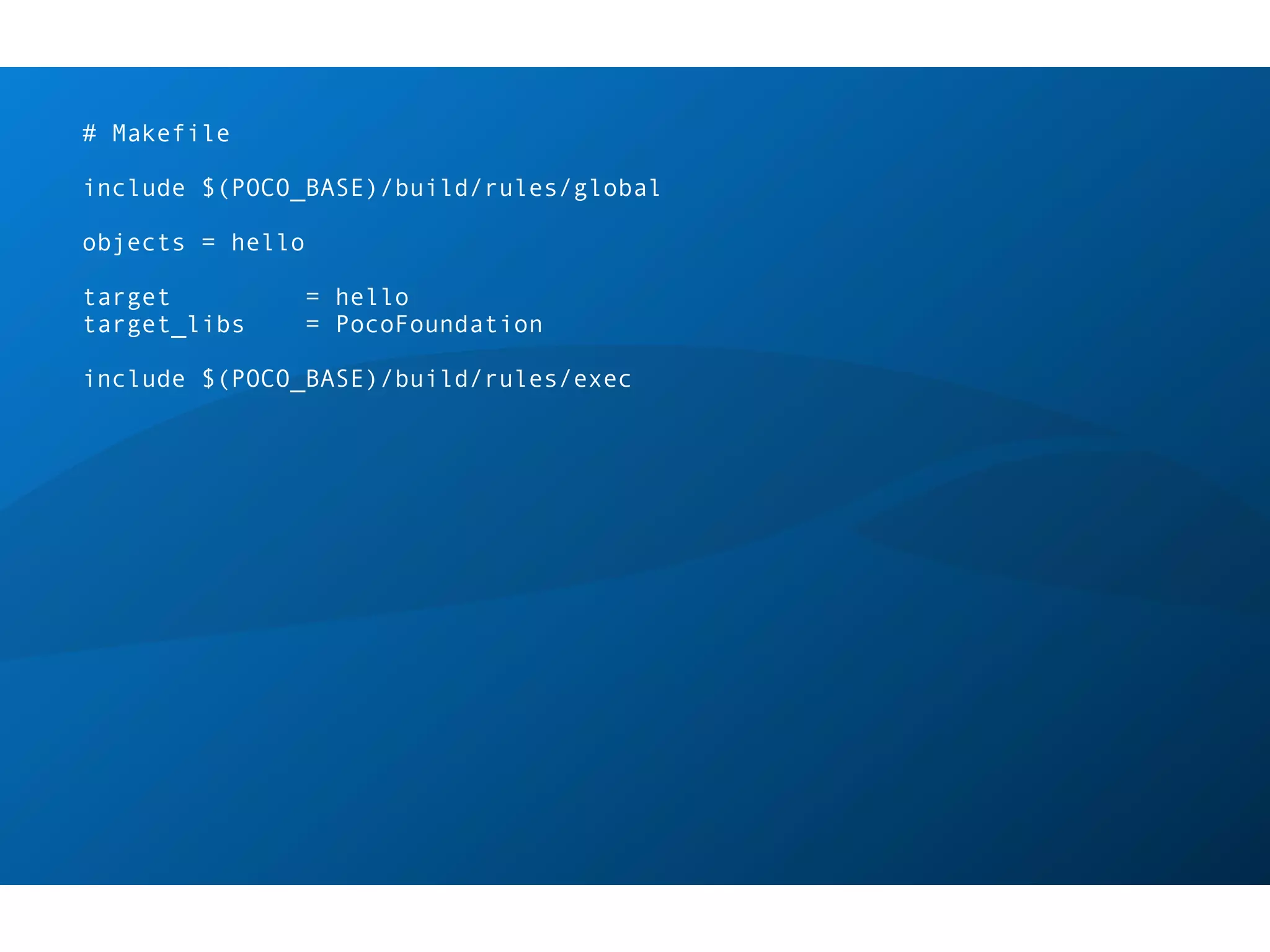

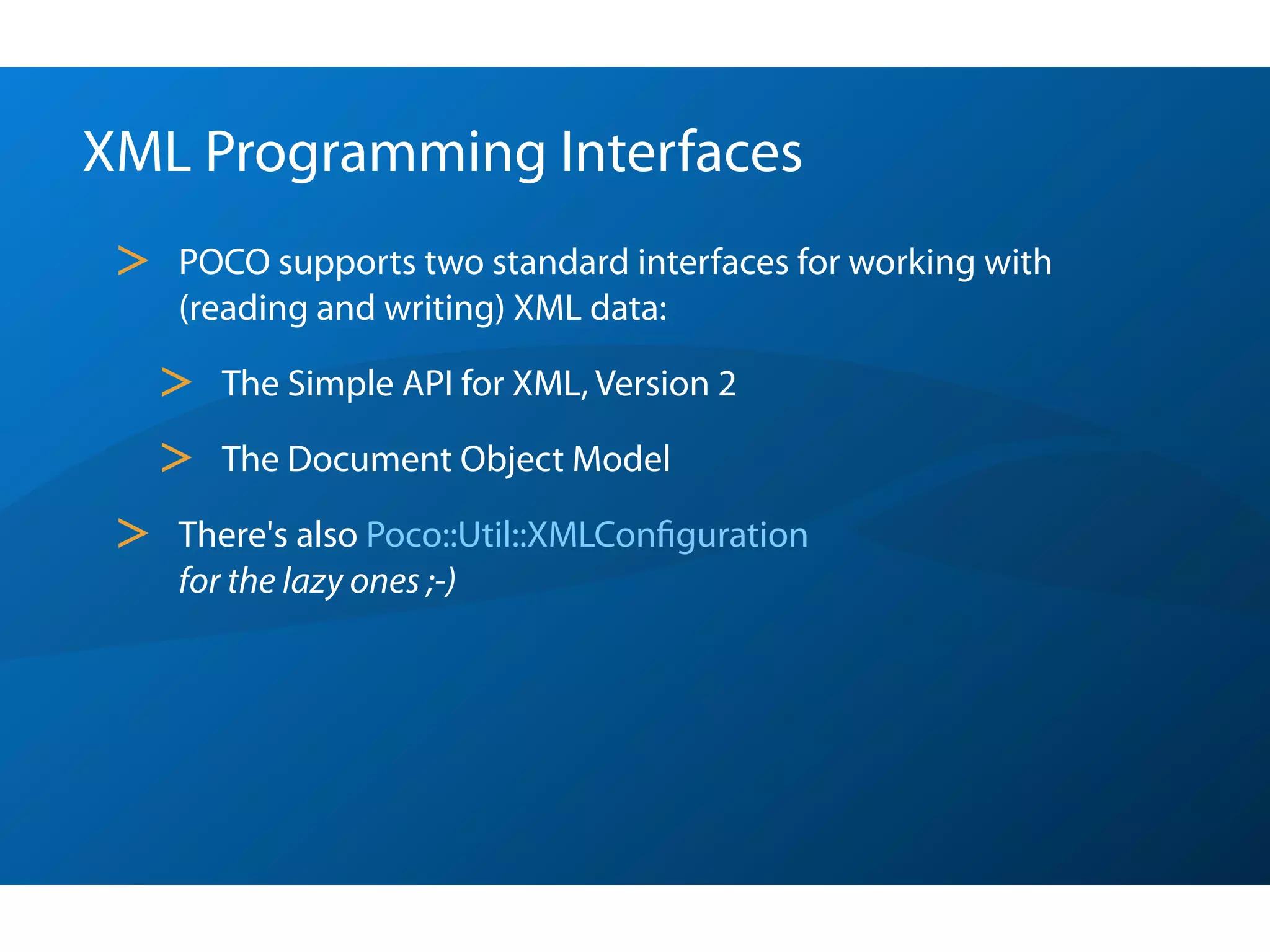
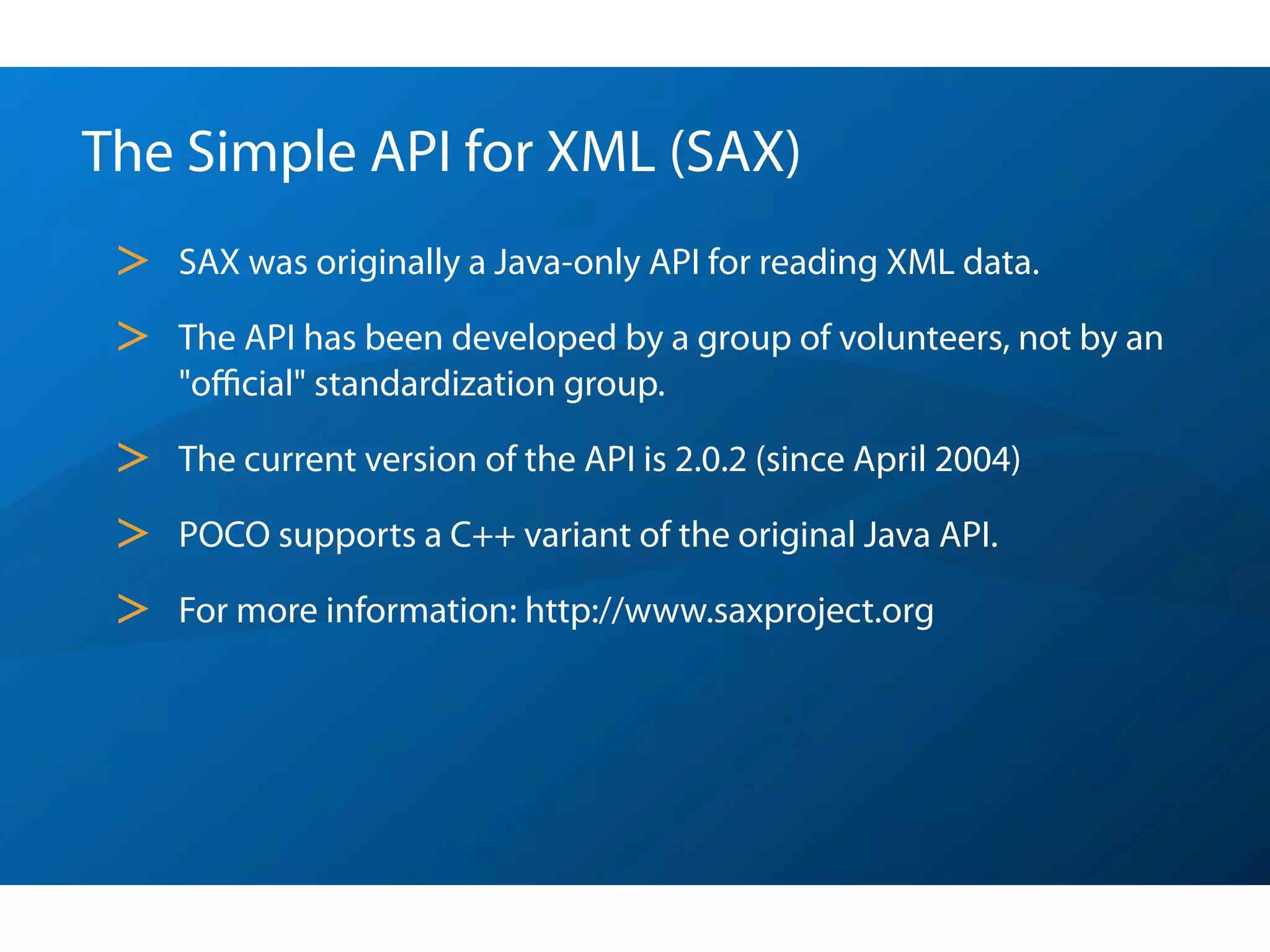
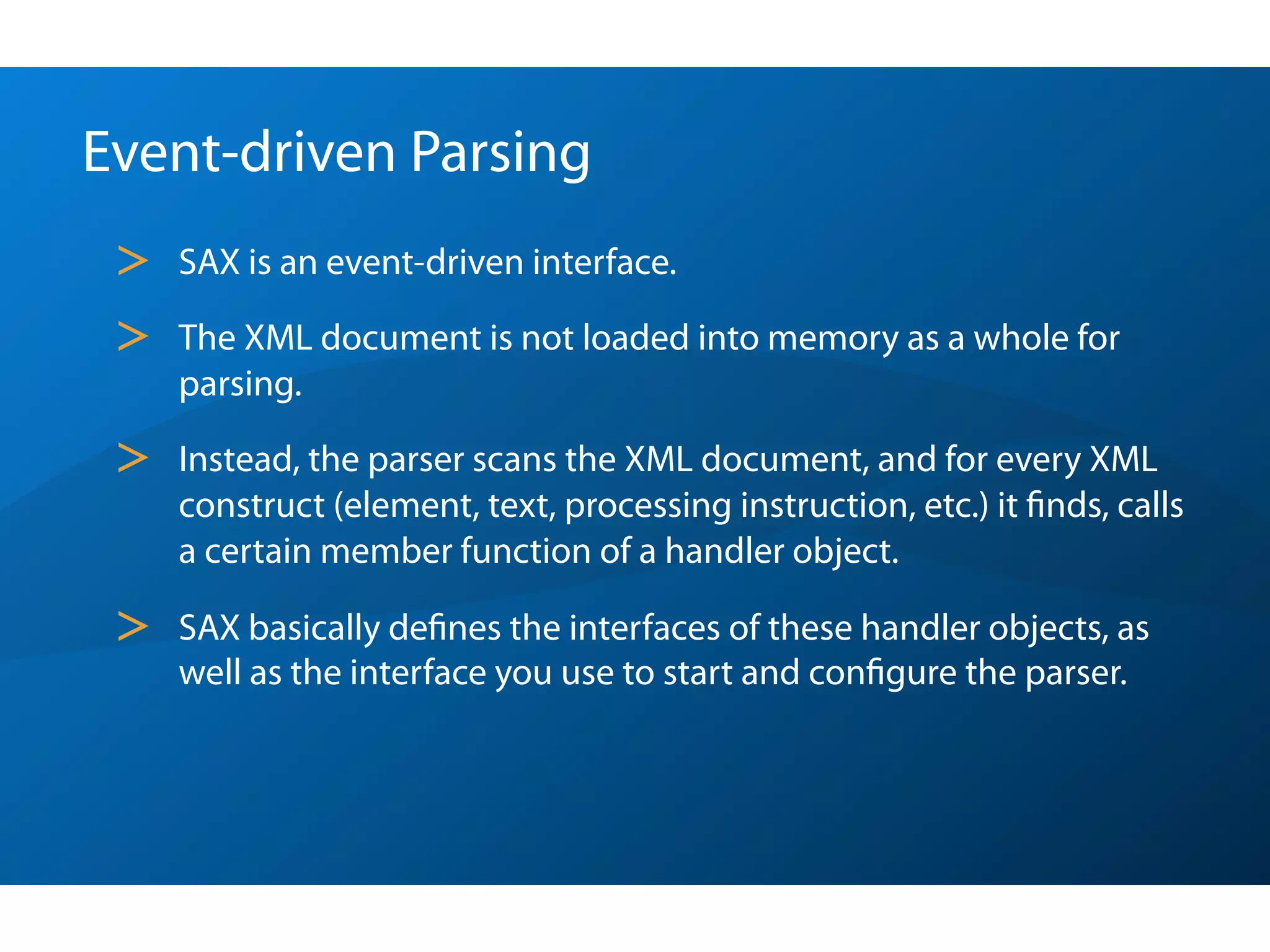
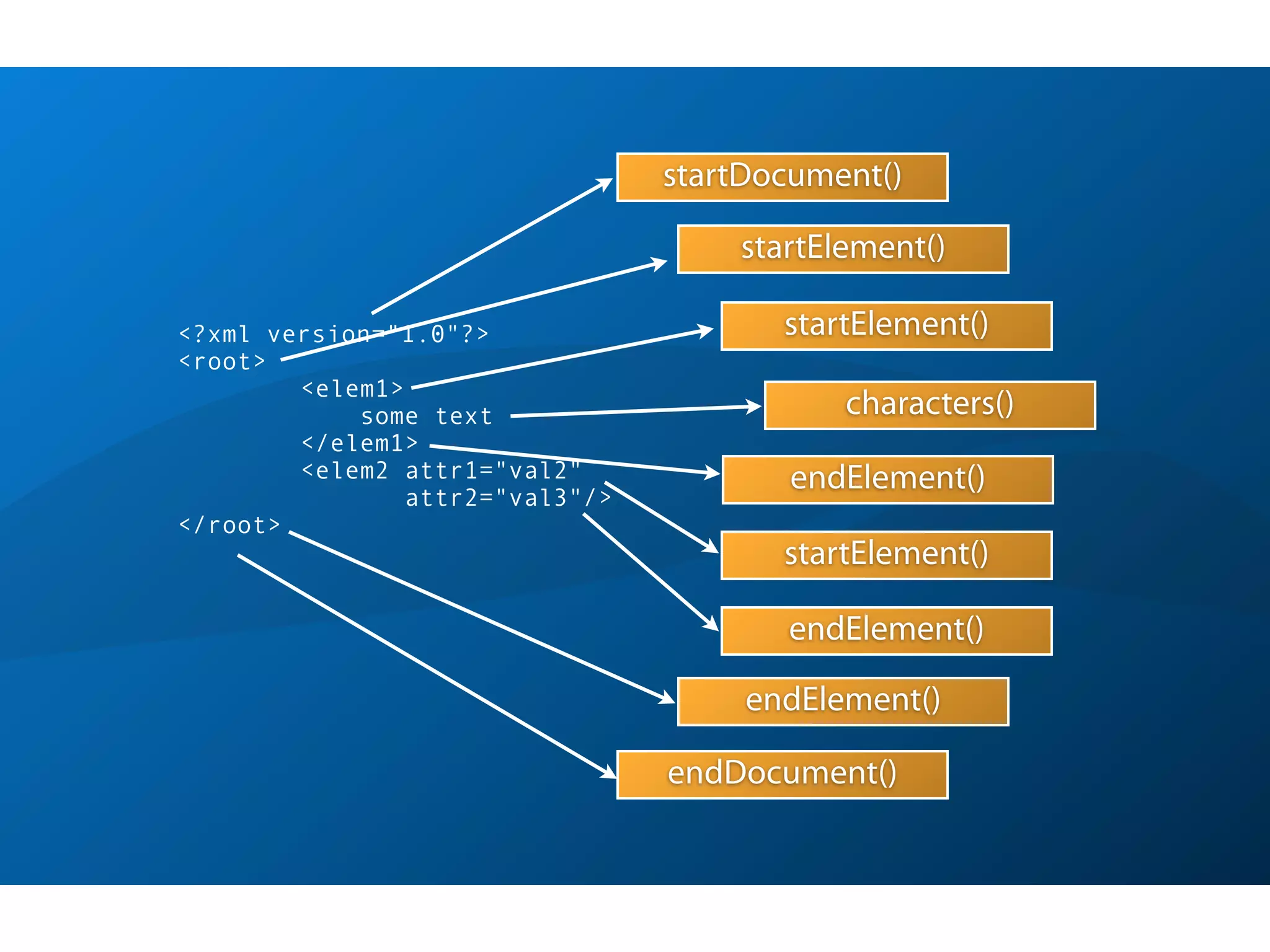
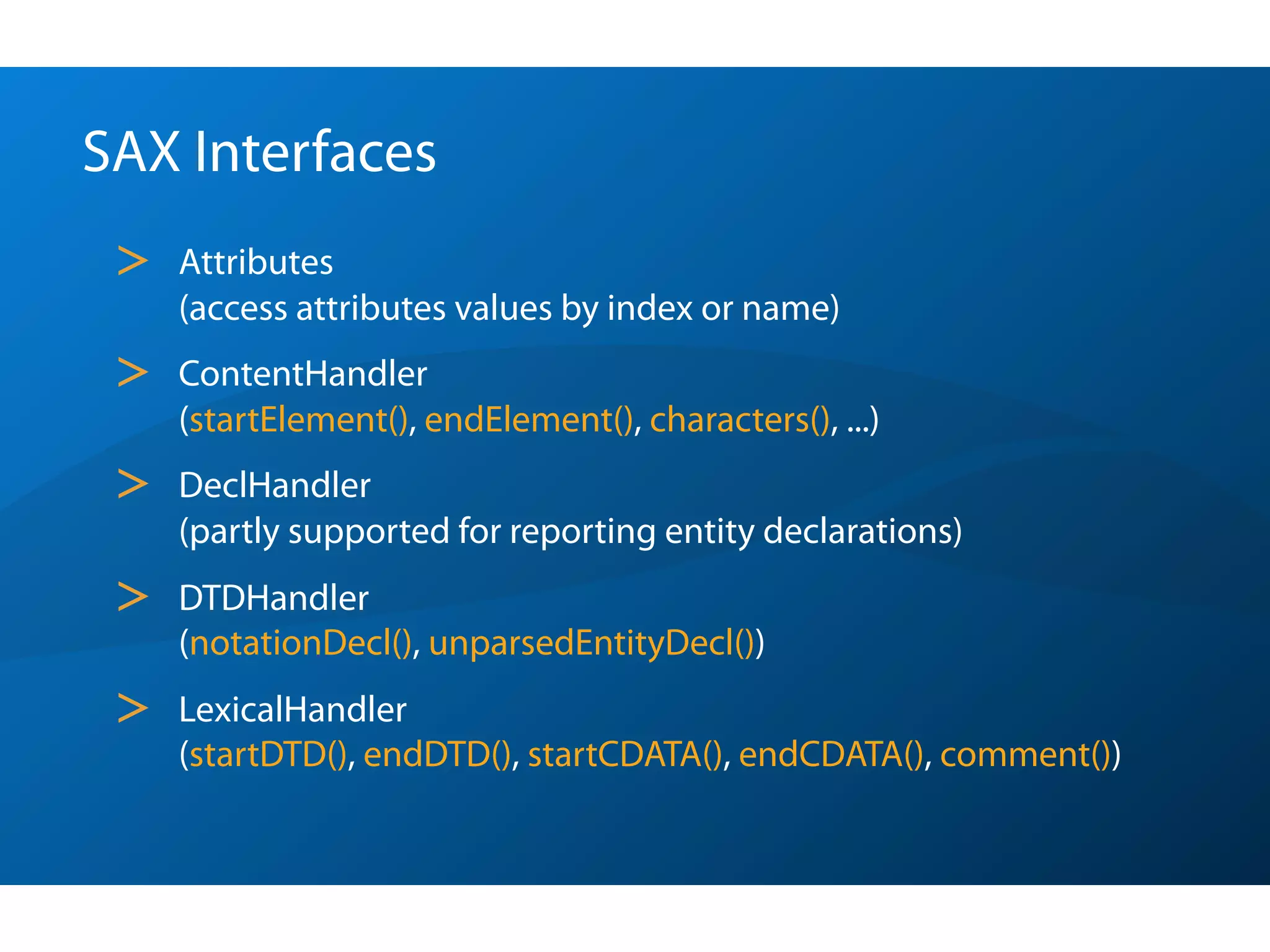
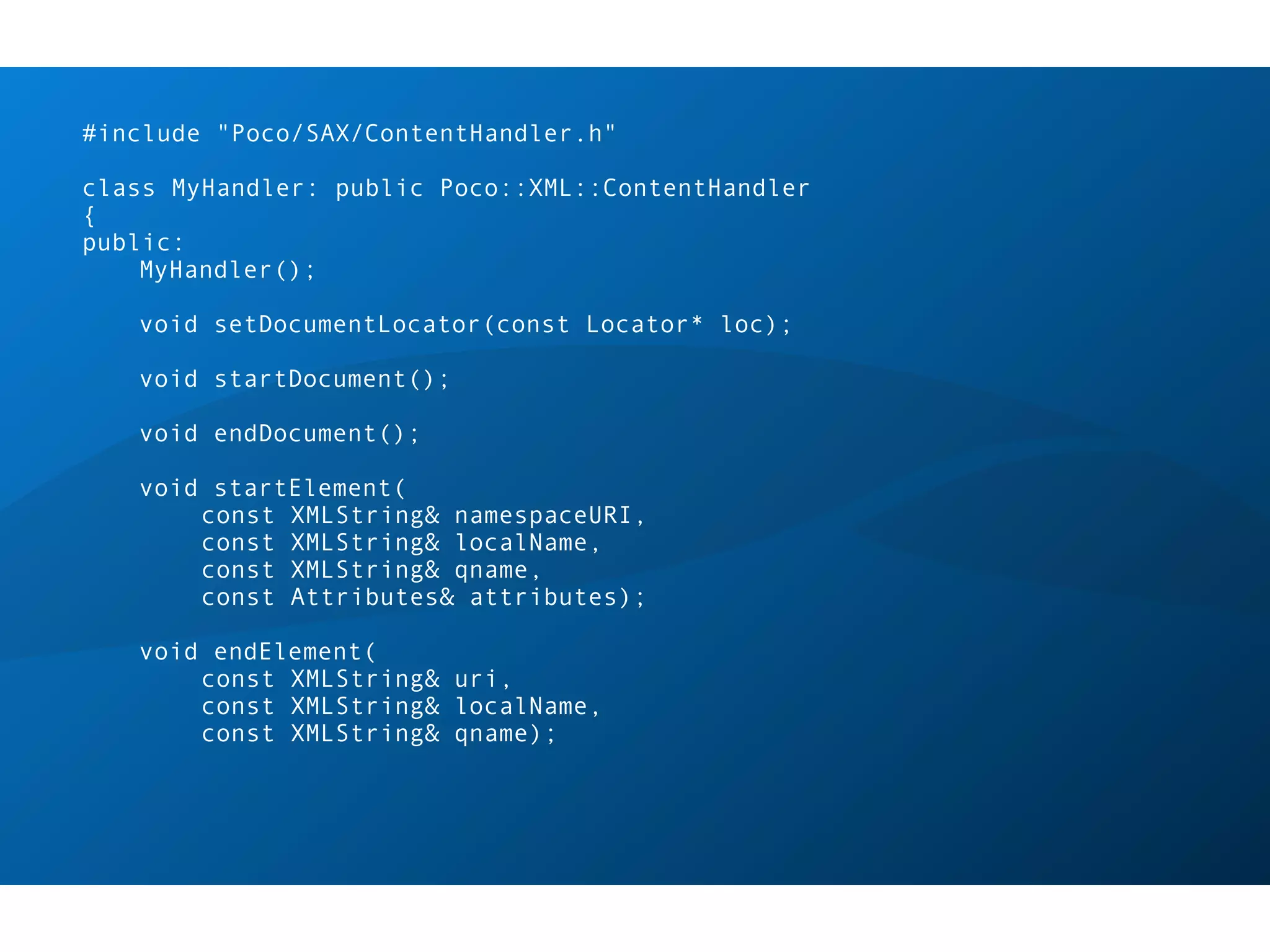
![void characters(const XMLChar ch[], int start, int length);
void ignorableWhitespace(const XMLChar ch[], int start, int len);
void processingInstruction(
const XMLString& target,
const XMLString& data);
void startPrefixMapping(
const XMLString& prefix,
const XMLString& uri);
void endPrefixMapping(const XMLString& prefix);
void skippedEntity(const XMLString& name);
};](https://image.slidesharecdn.com/pocointroandoverview-120810122527-phpapp01/75/POCO-C-Libraries-Intro-and-Overview-44-2048.jpg)
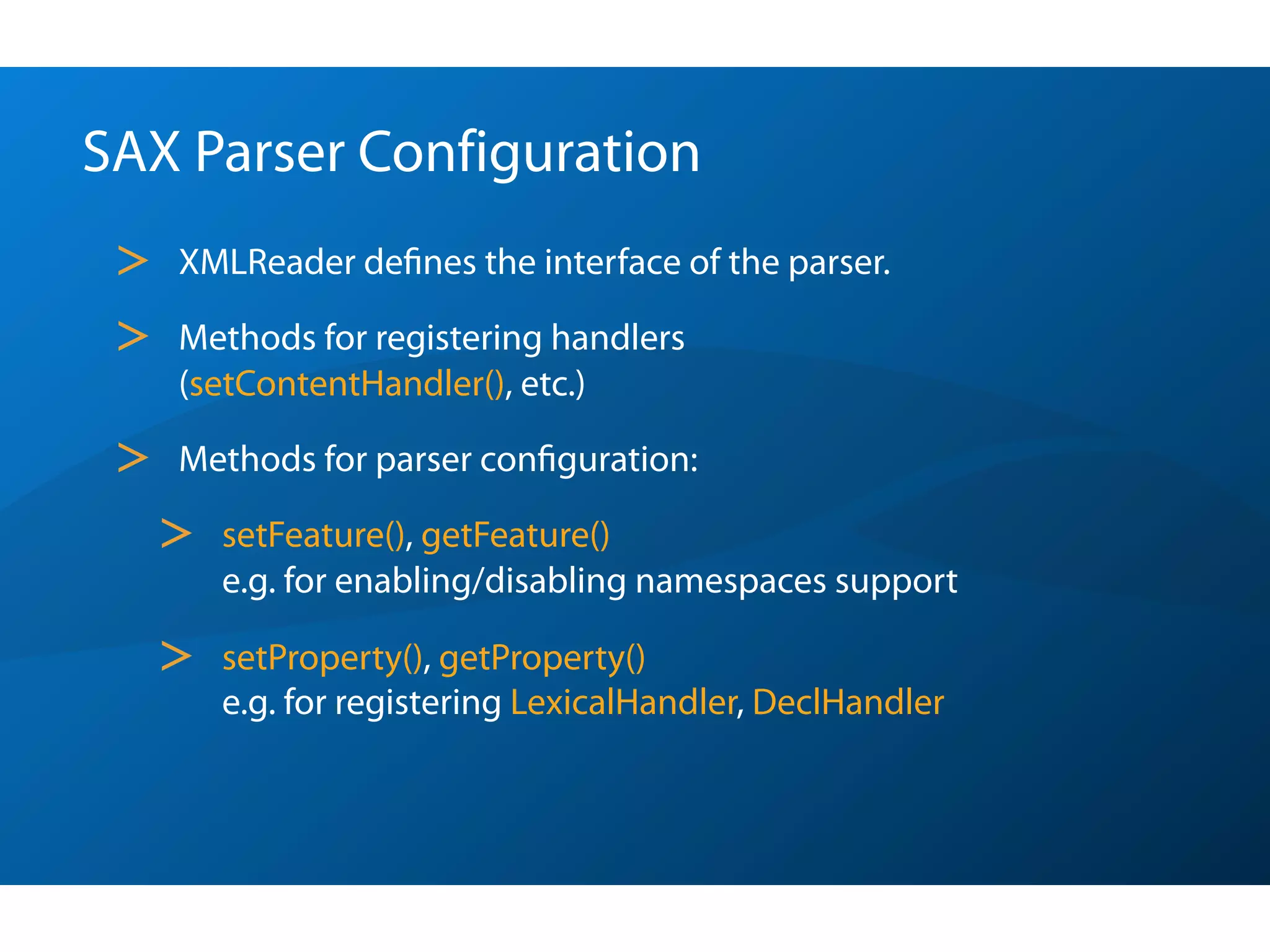
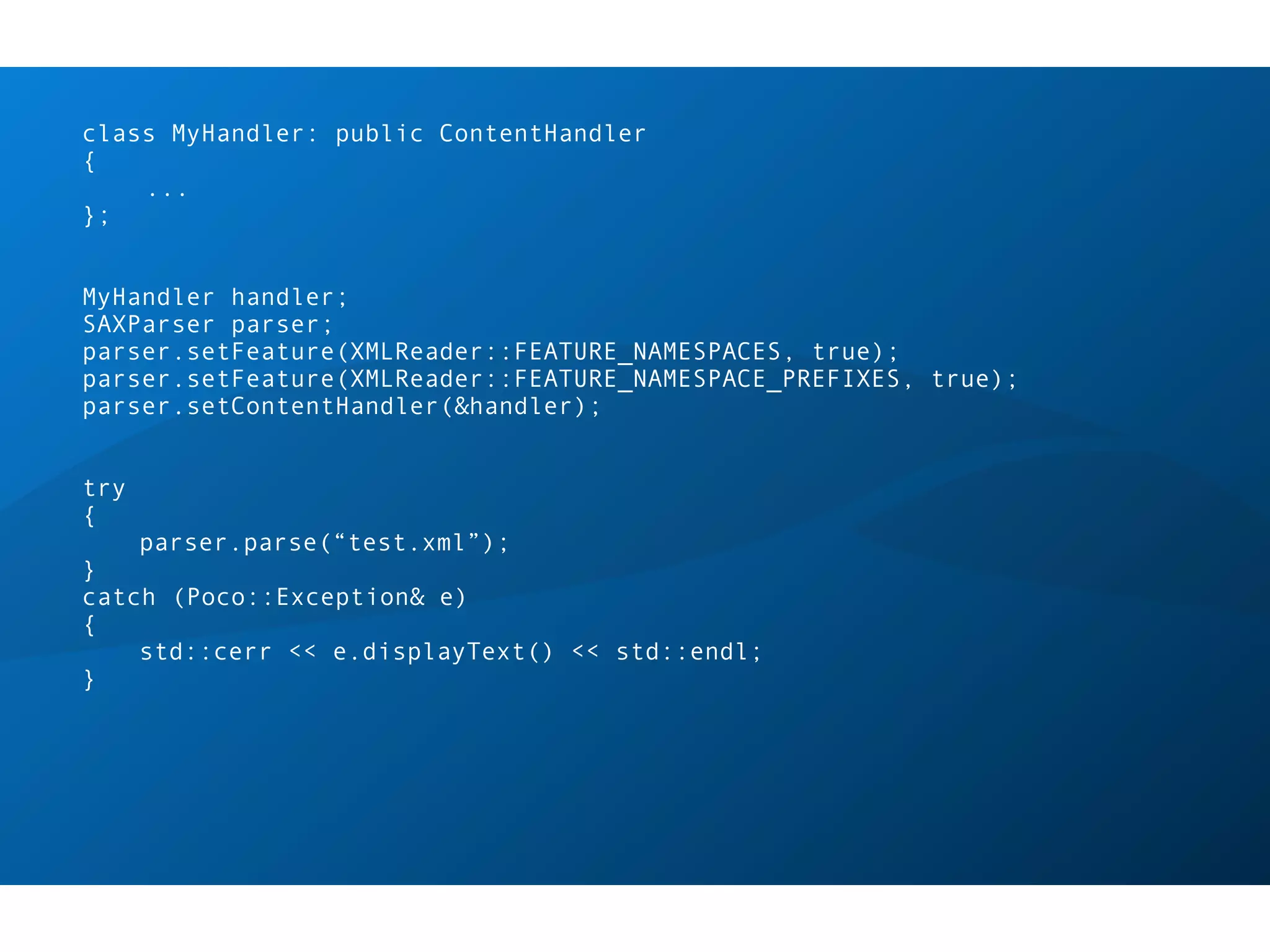
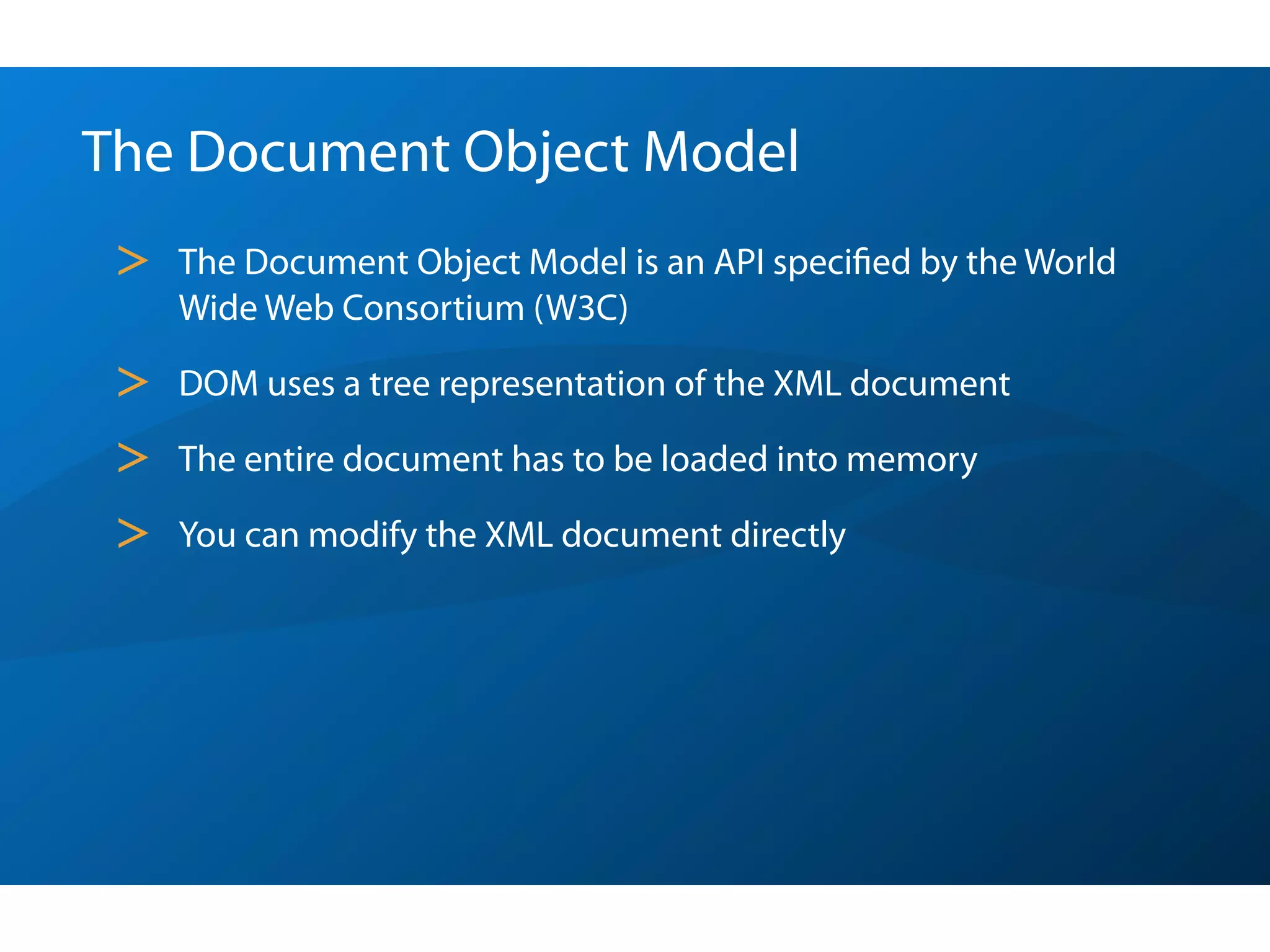
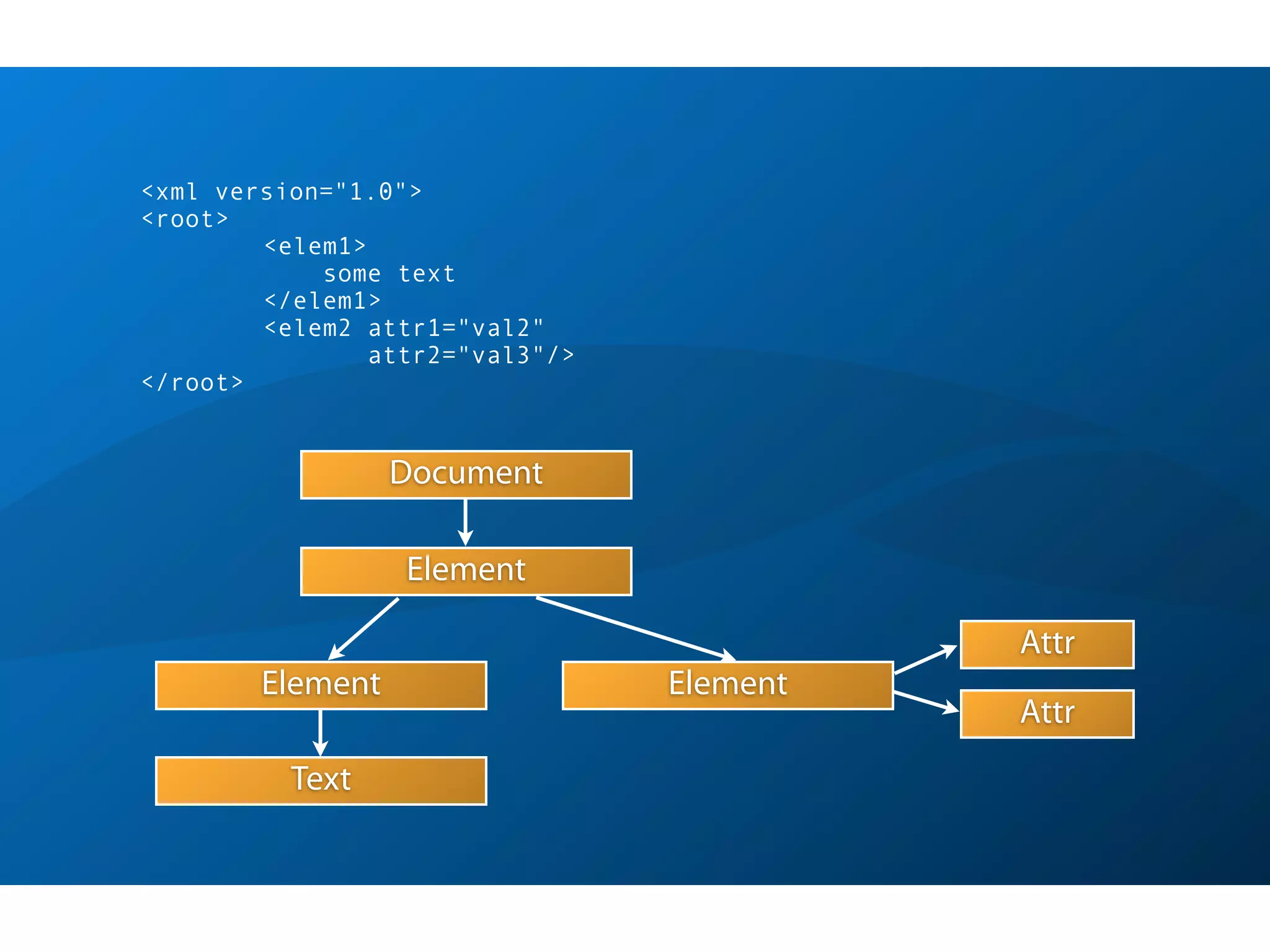
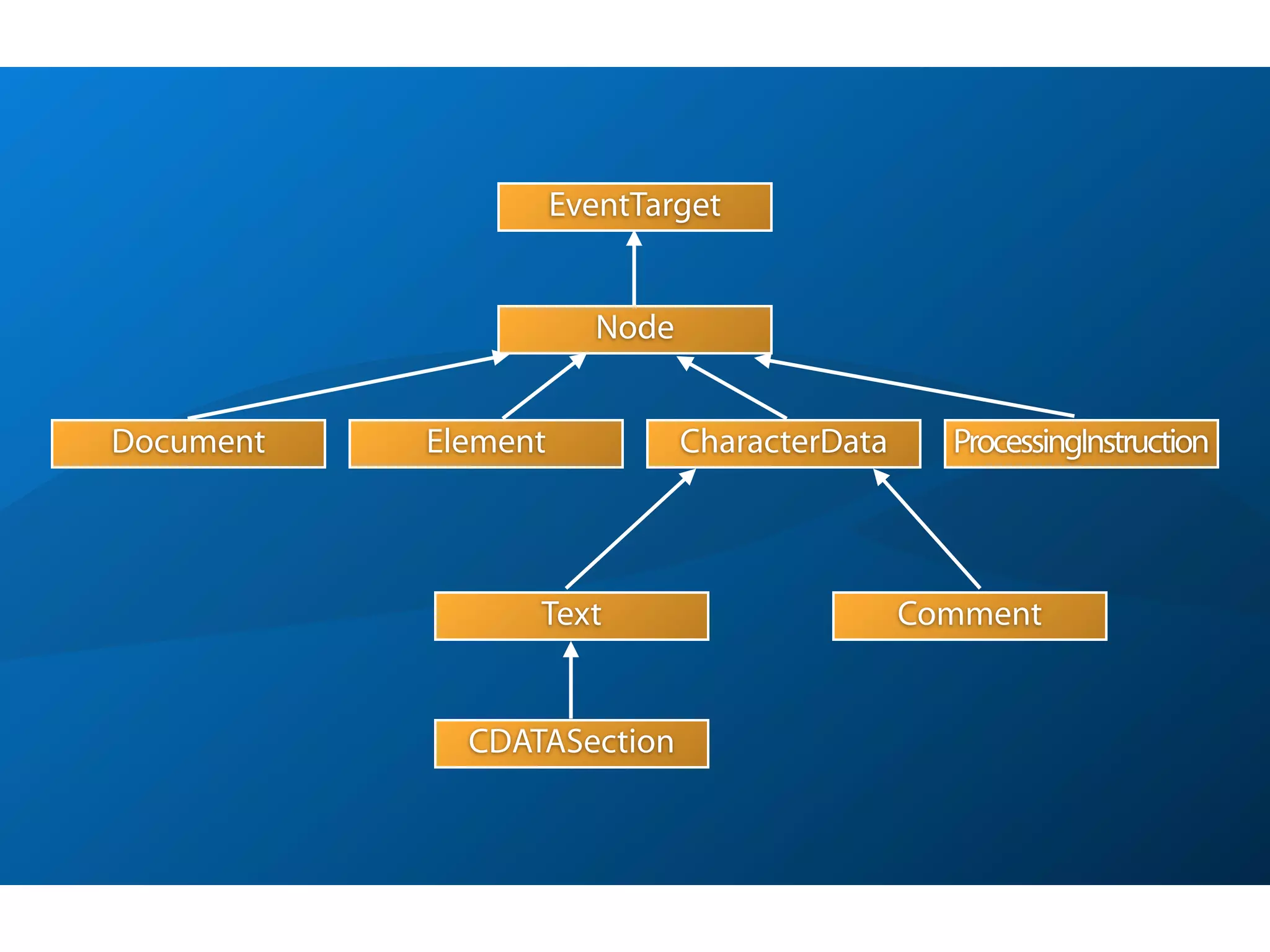
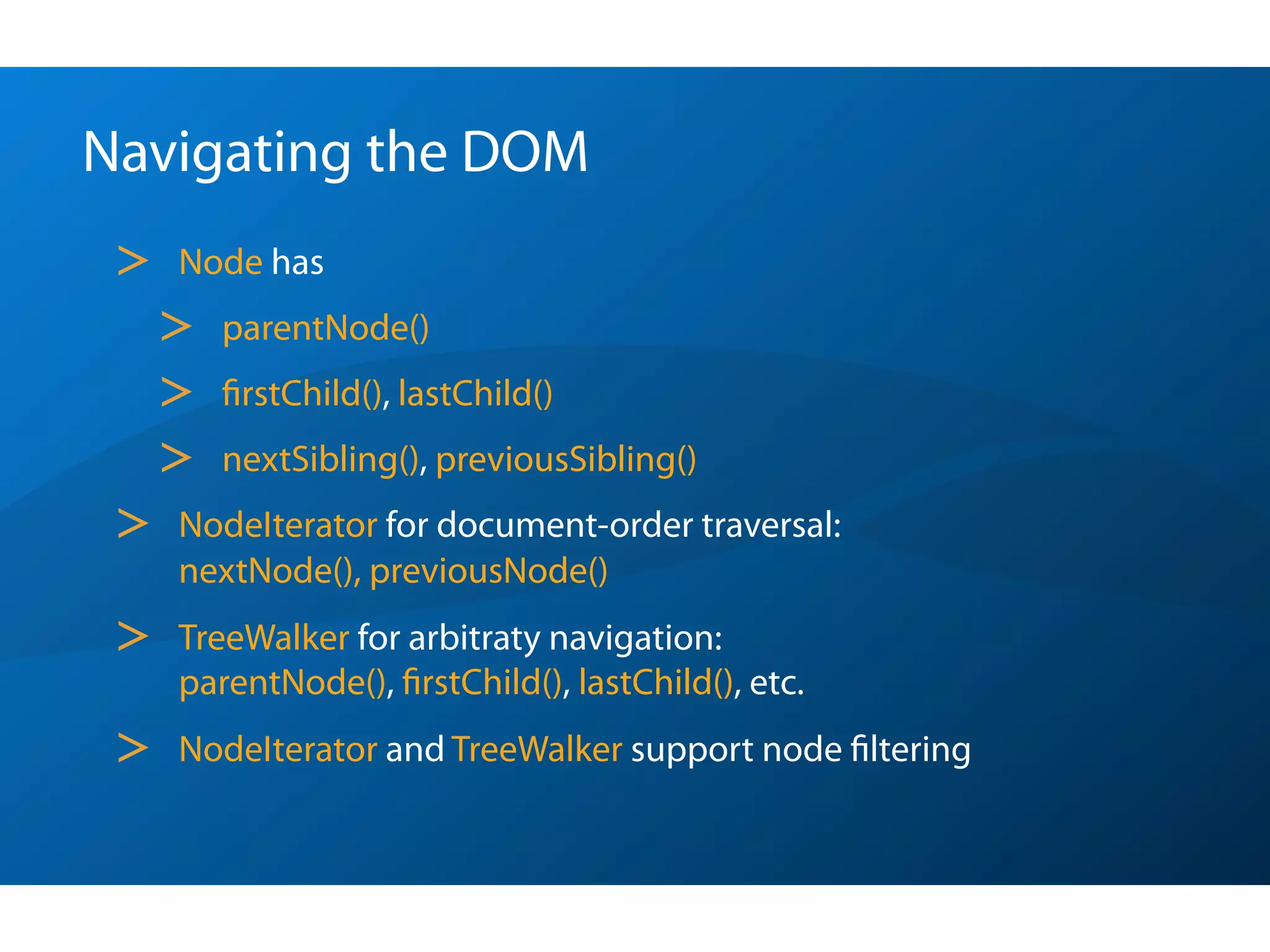
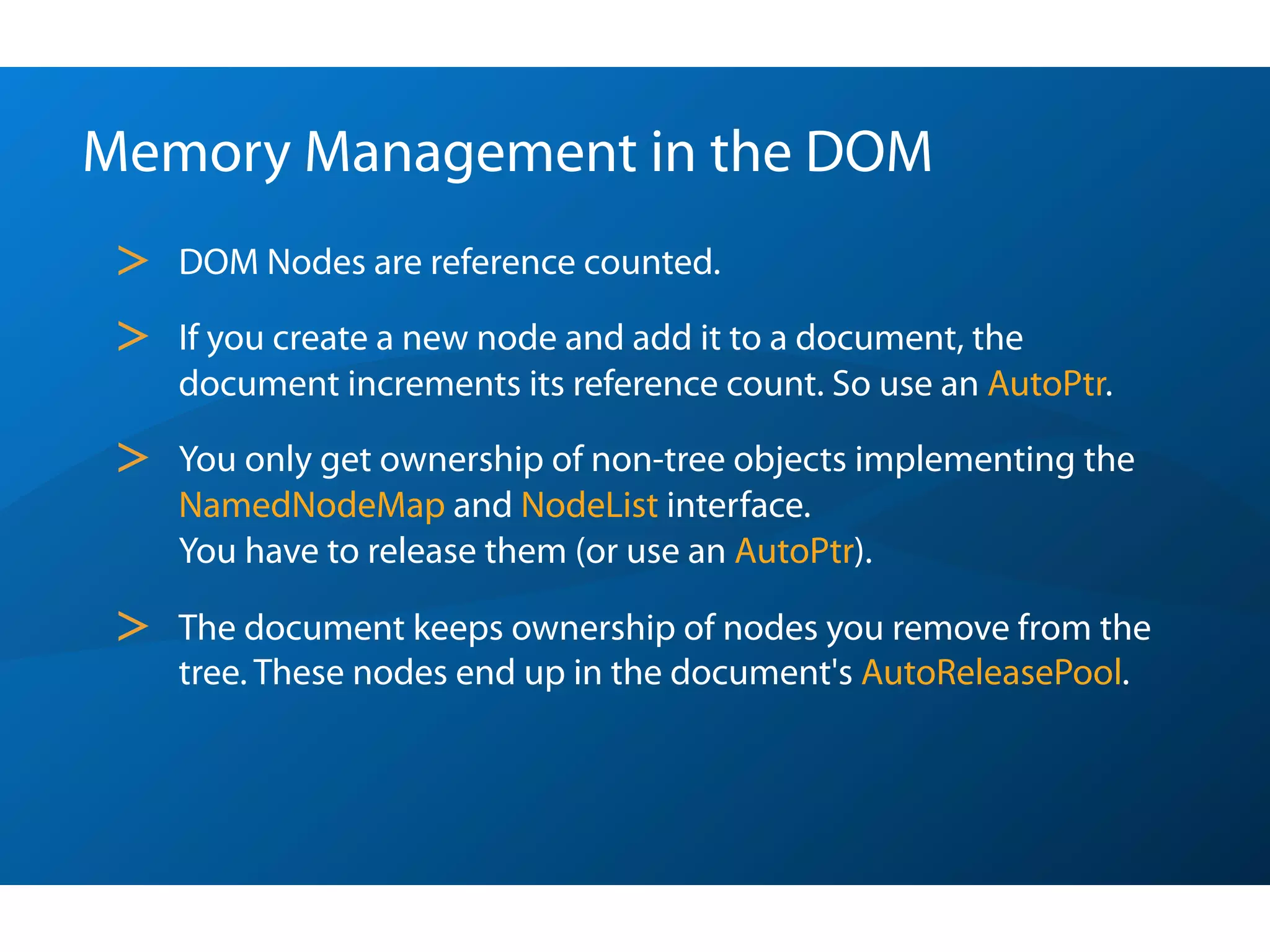
![#include "Poco/DOM/DOMParser.h"
#include "Poco/DOM/Document.h"
#include "Poco/DOM/NodeIterator.h"
#include "Poco/DOM/NodeFilter.h"
#include "Poco/DOM/AutoPtr.h"
#include "Poco/SAX/InputSource.h"
[...]
std::ifstream in(“test.xml”);
Poco::XML::InputSource src(in);
Poco::XML::DOMParser parser;
Poco::AutoPtr<Poco::XML::Document> pDoc = parser.parse(&src);
Poco::XML::NodeIterator it(pDoc, Poco::XML::NodeFilter::SHOW_ELEMENTS);
Poco::XML::Node* pNode = it.nextNode();
while (pNode)
{
std::cout<<pNode->nodeName()<<":"<< pNode->nodeValue()<<std::endl;
pNode = it.nextNode();
}](https://image.slidesharecdn.com/pocointroandoverview-120810122527-phpapp01/75/POCO-C-Libraries-Intro-and-Overview-52-2048.jpg)
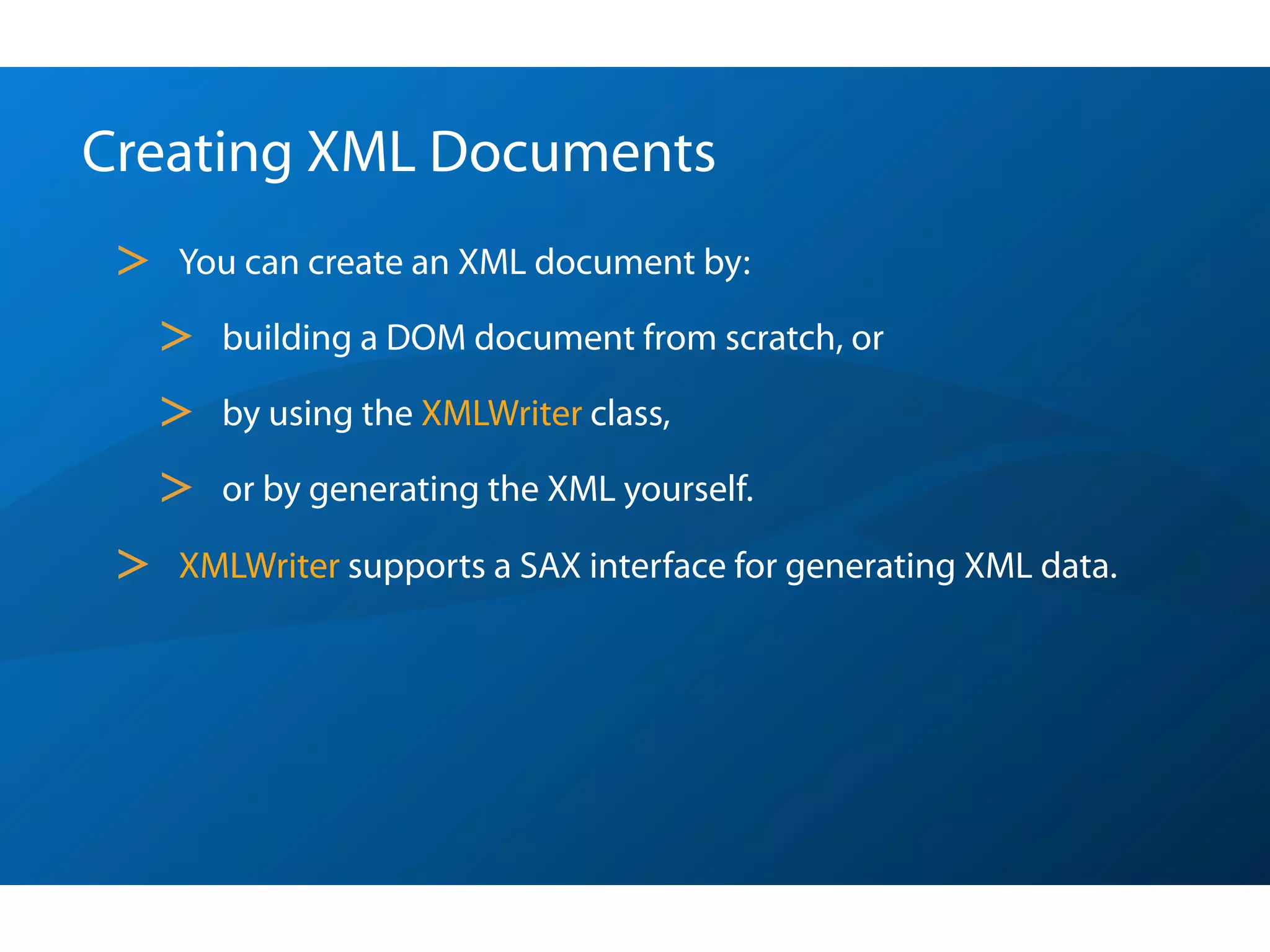
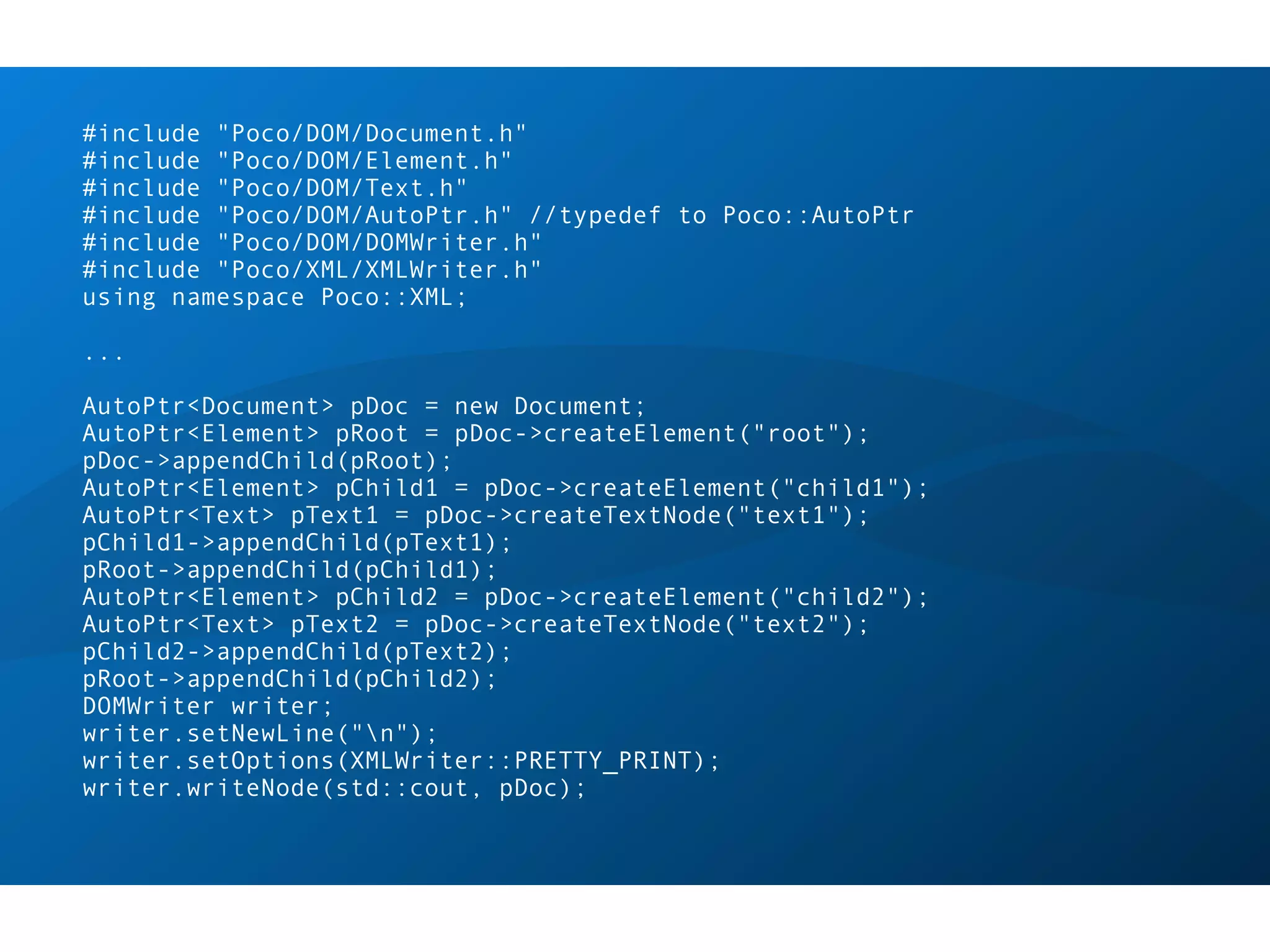
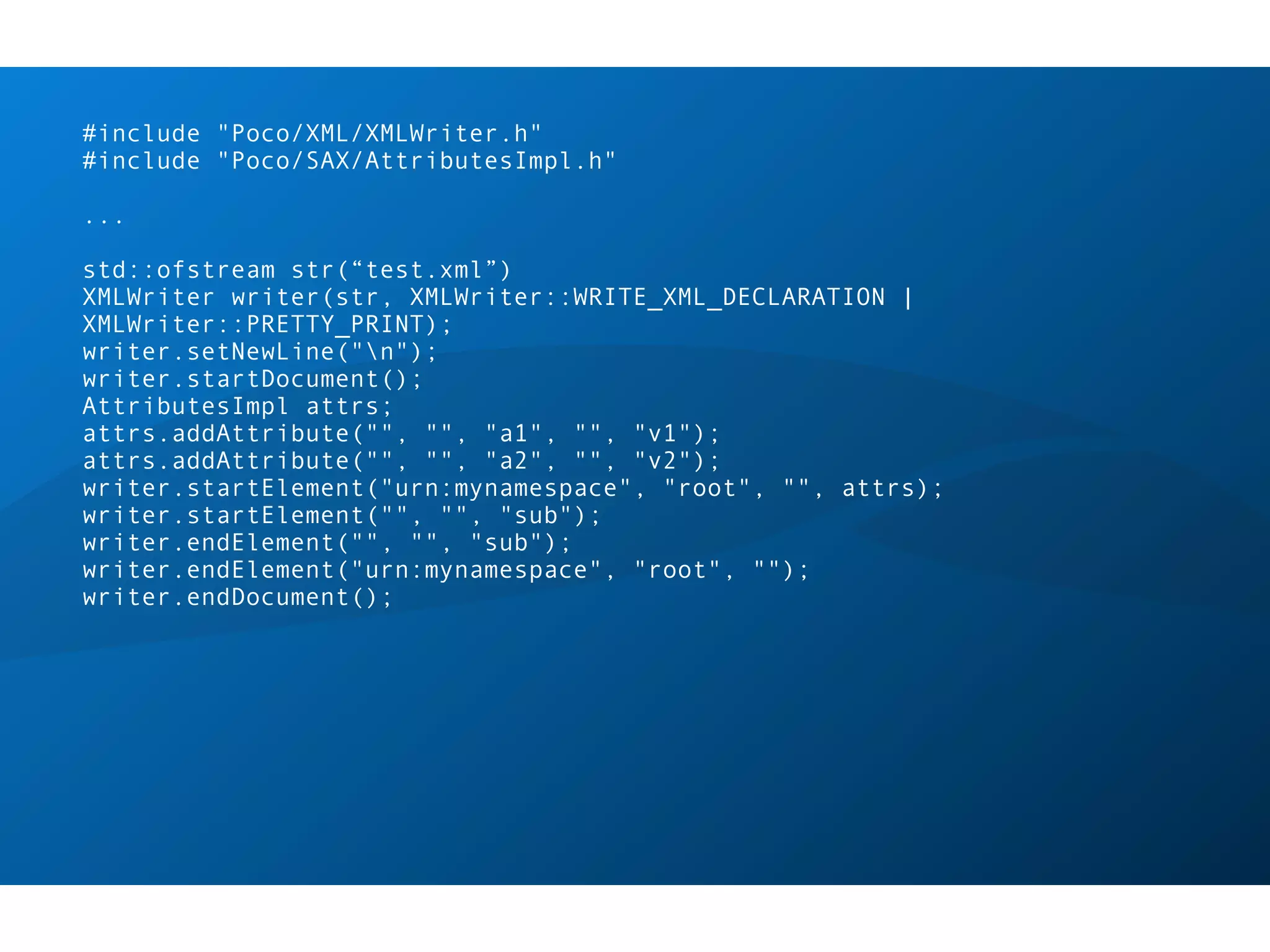
![DOM and XPath
> The DOM parser offers minimal XPath support for finding
elements and attributes in DOM trees.
> Node* getNodeByPath(const XMLString& path) const
searches a node (element or attribute) based on a simplified
XPath expression:
> elem1/elem2/elem3 <root>
<elem1>
<elem2 attr1="value1">
> /elem1/elem2[1] <elem3>
</elem3>
>
</elem2>
/elem1/elem2[@attr1] <elem2 attr1="value2">
</elem2>
> //elem1/elem2[@attr1='value2']
</elem1>
</root>](https://image.slidesharecdn.com/pocointroandoverview-120810122527-phpapp01/75/POCO-C-Libraries-Intro-and-Overview-56-2048.jpg)

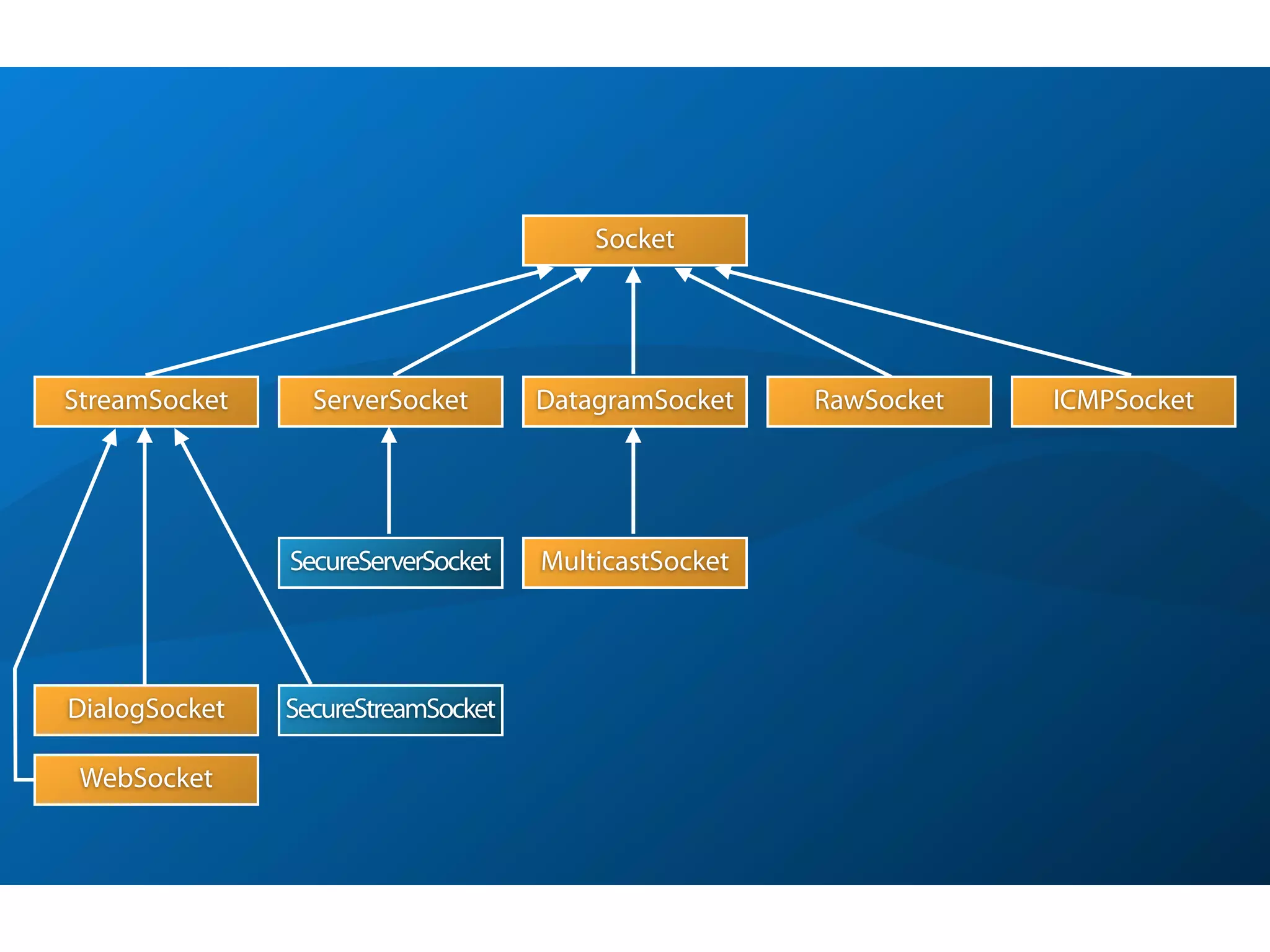
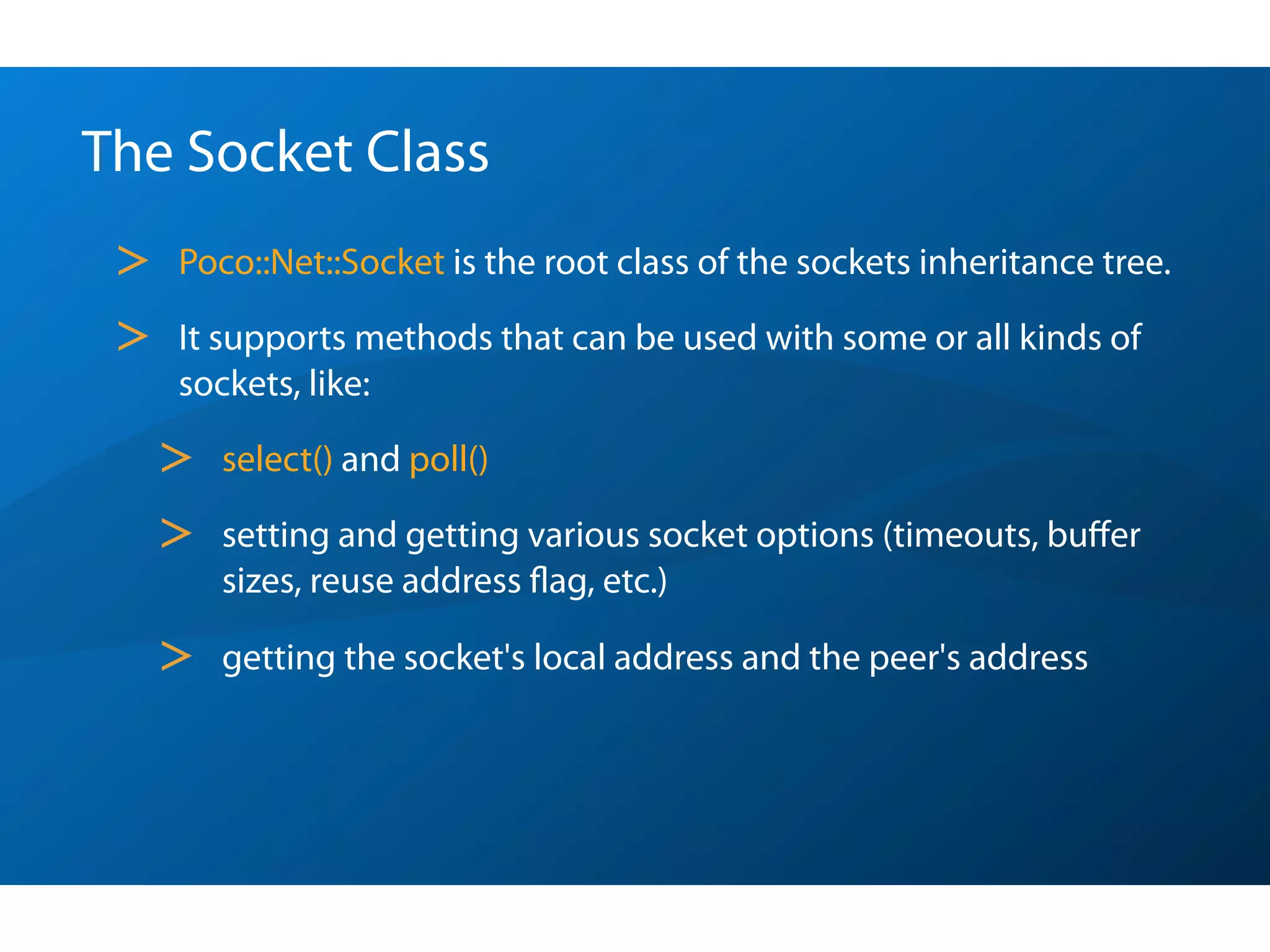
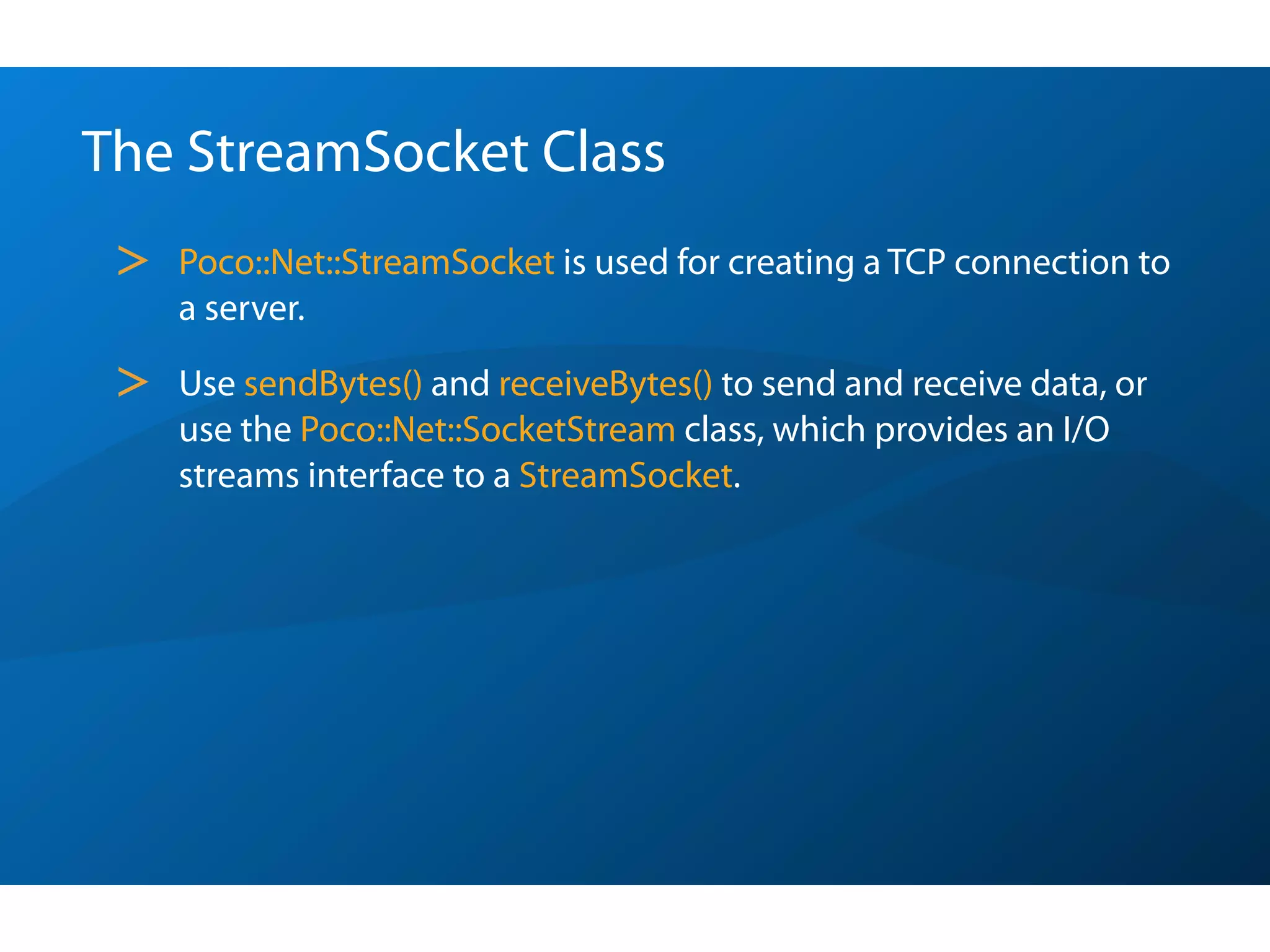
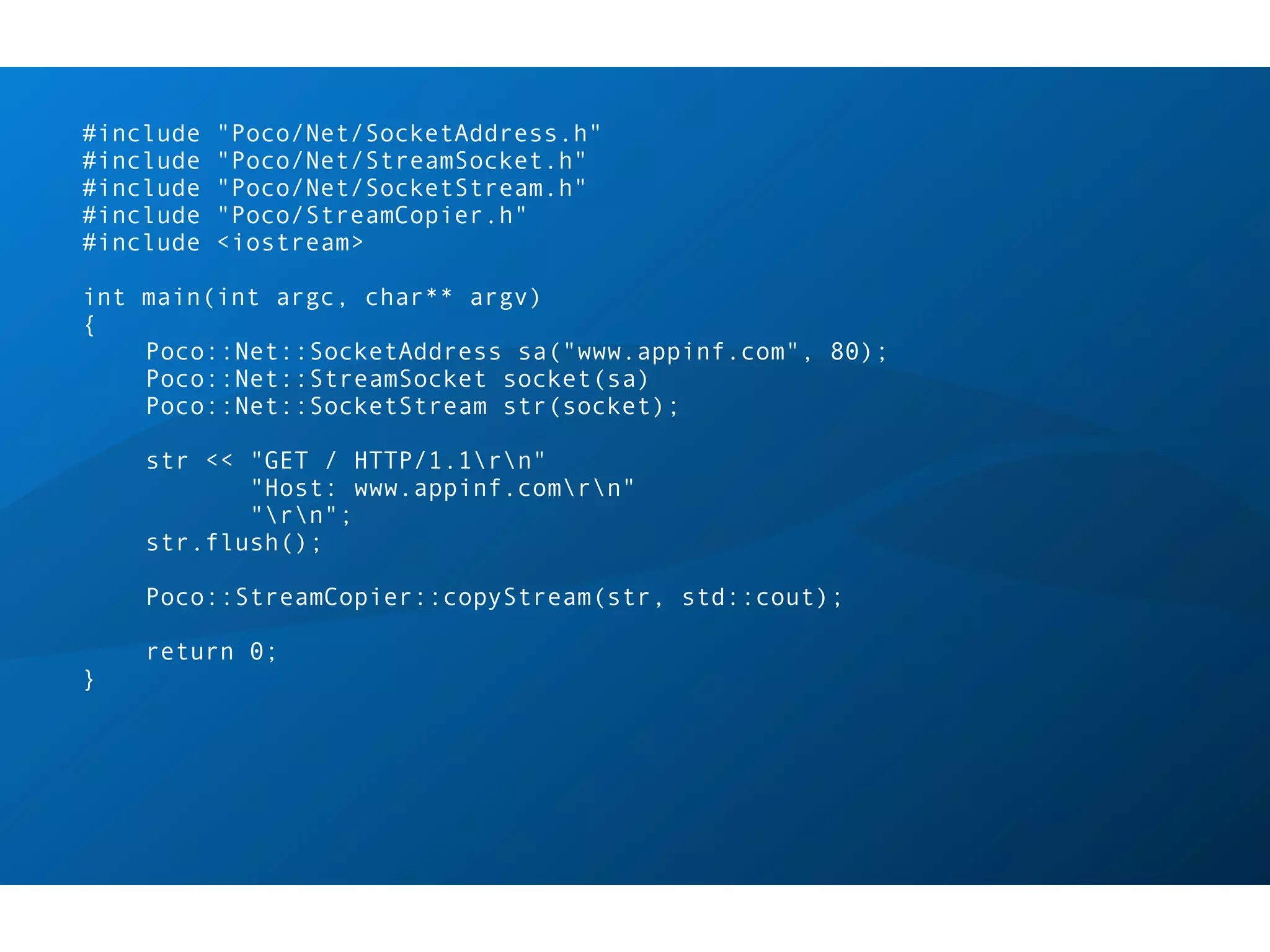
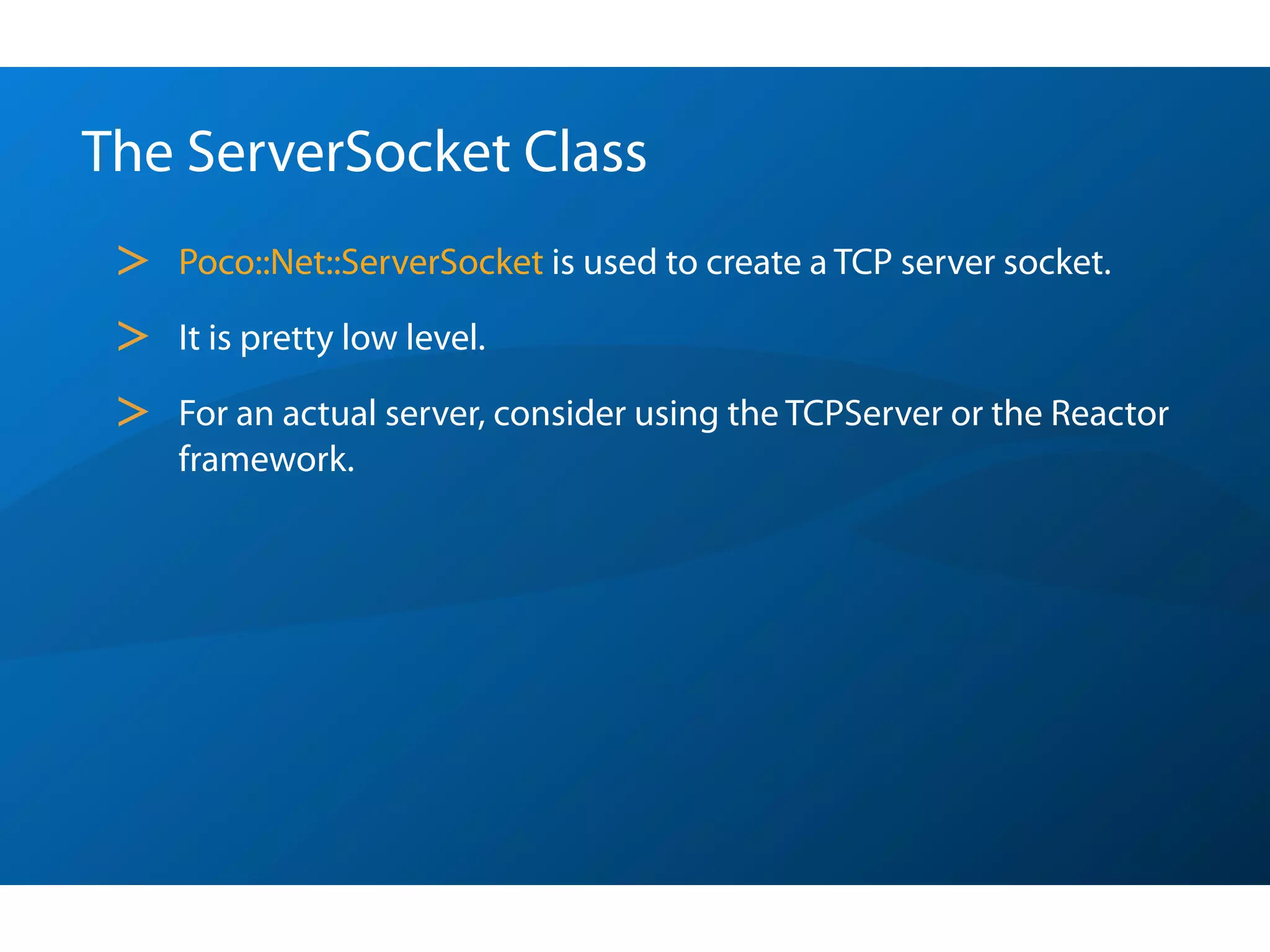
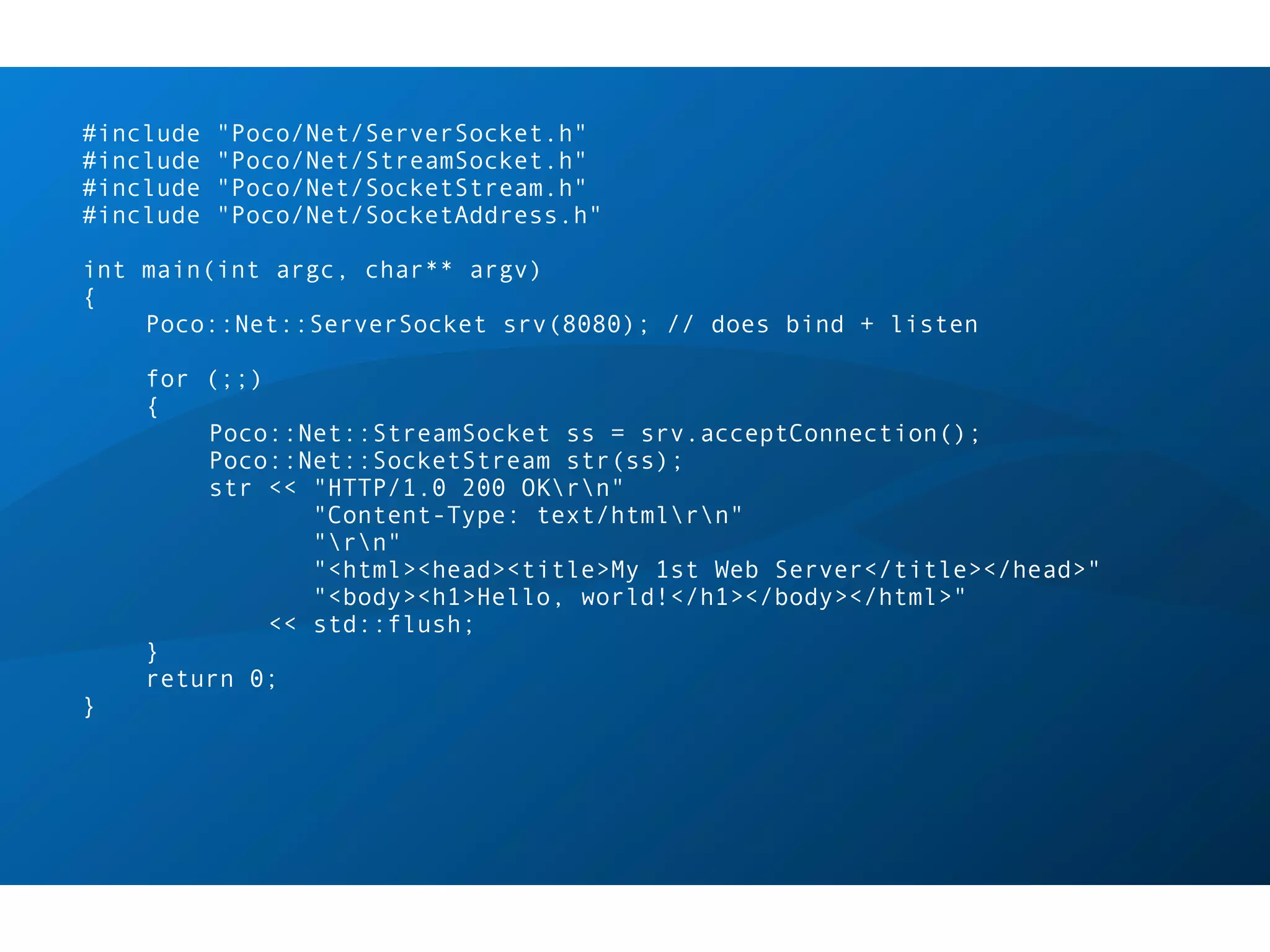
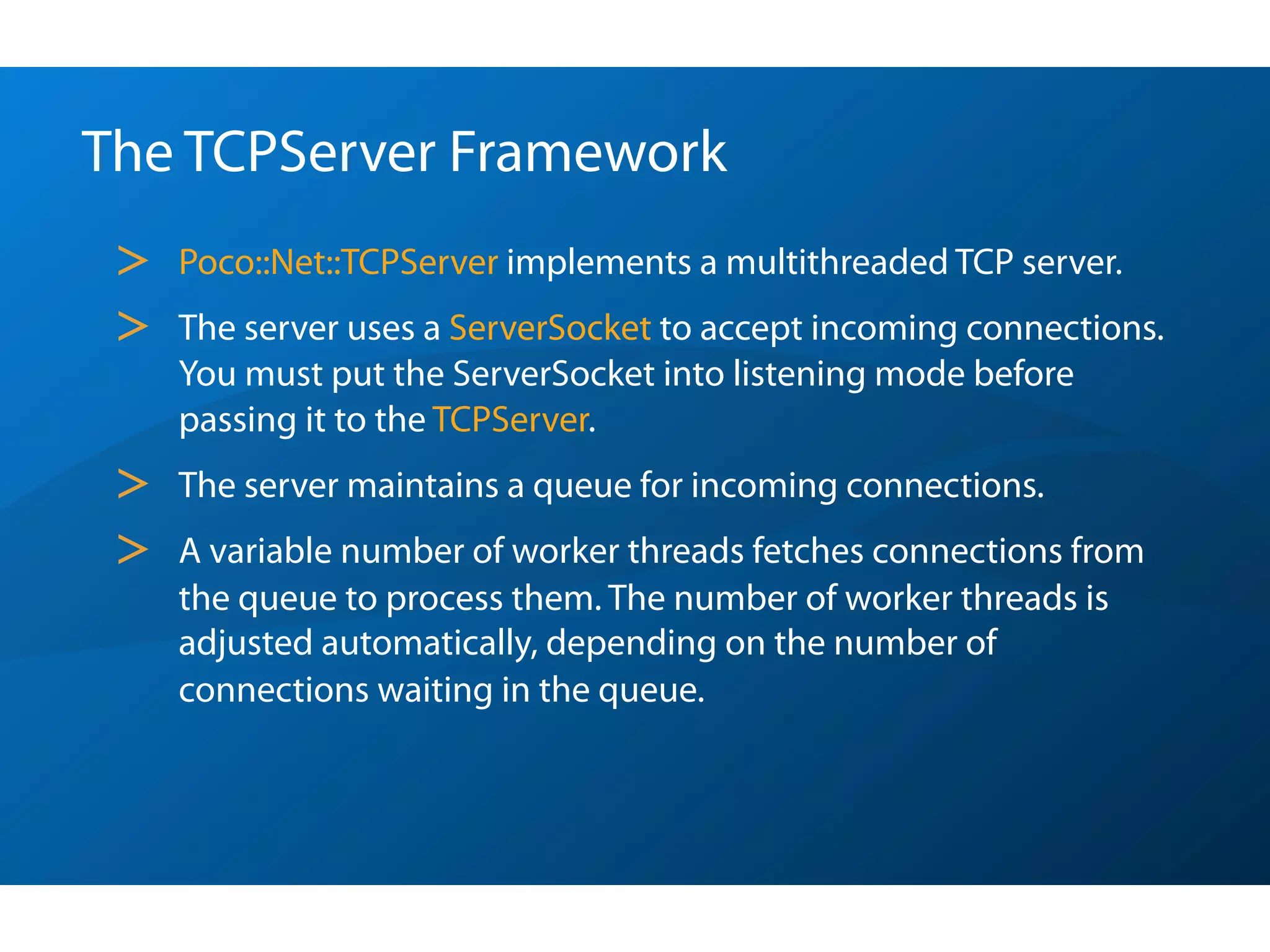
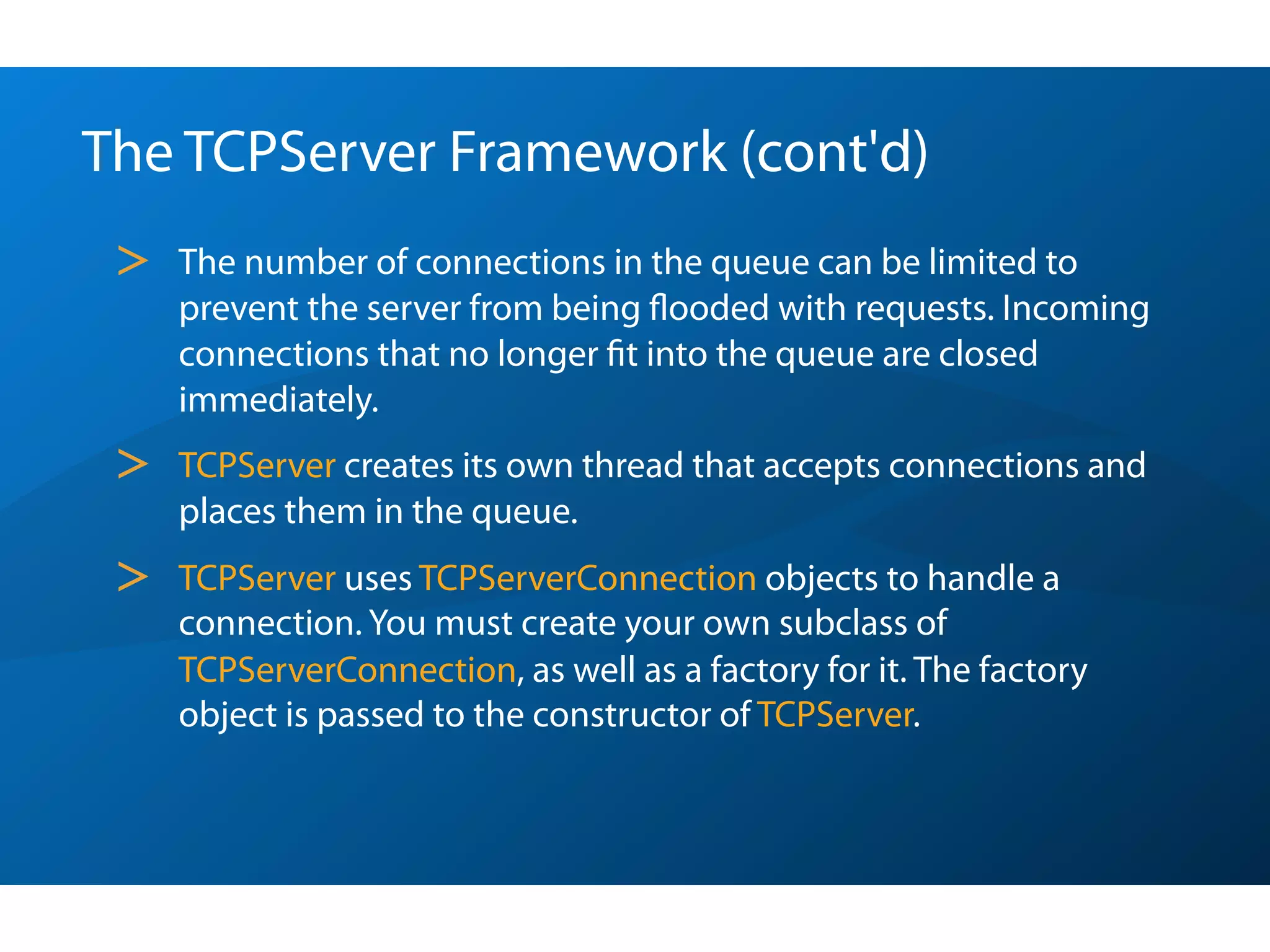
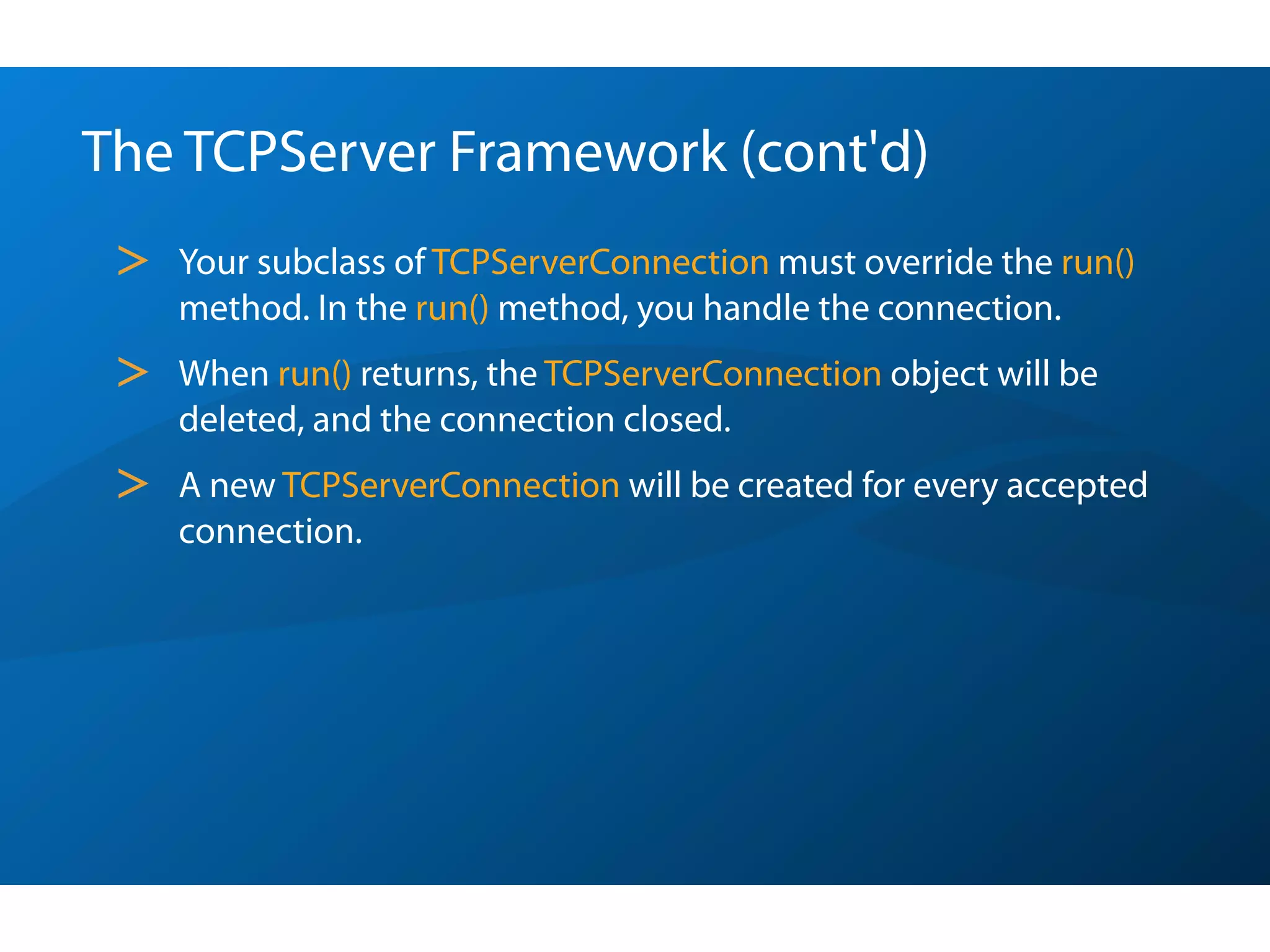
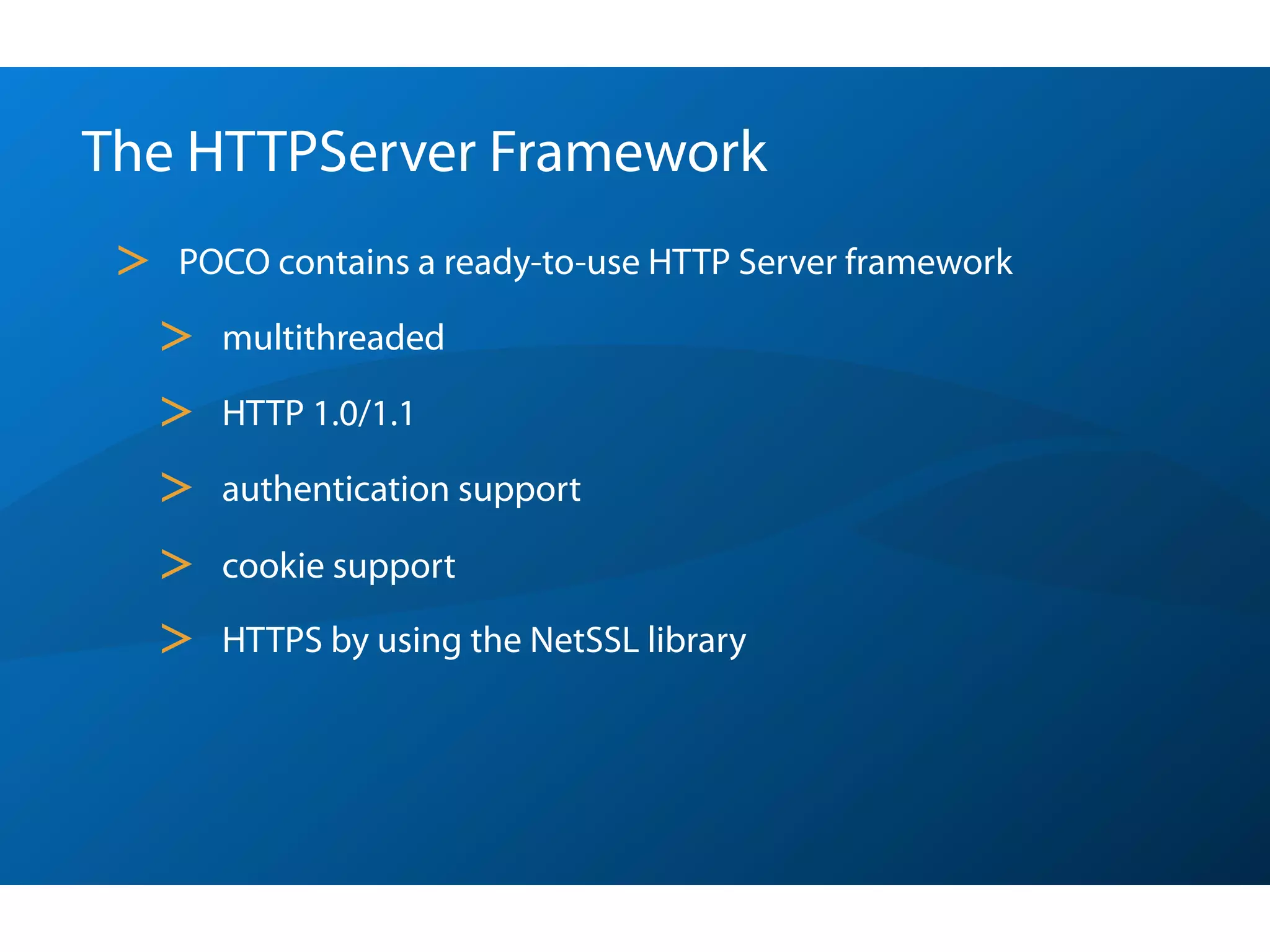
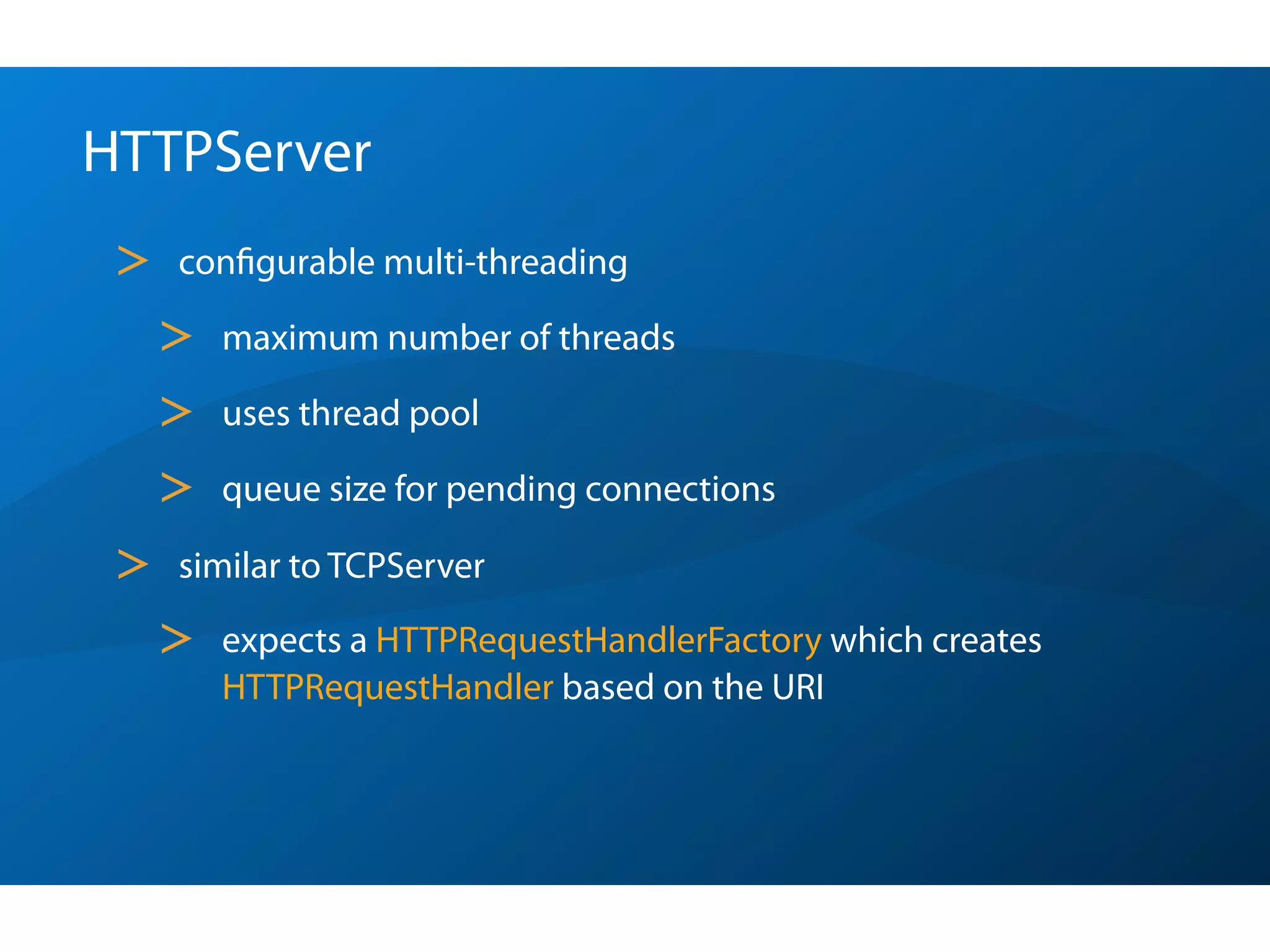
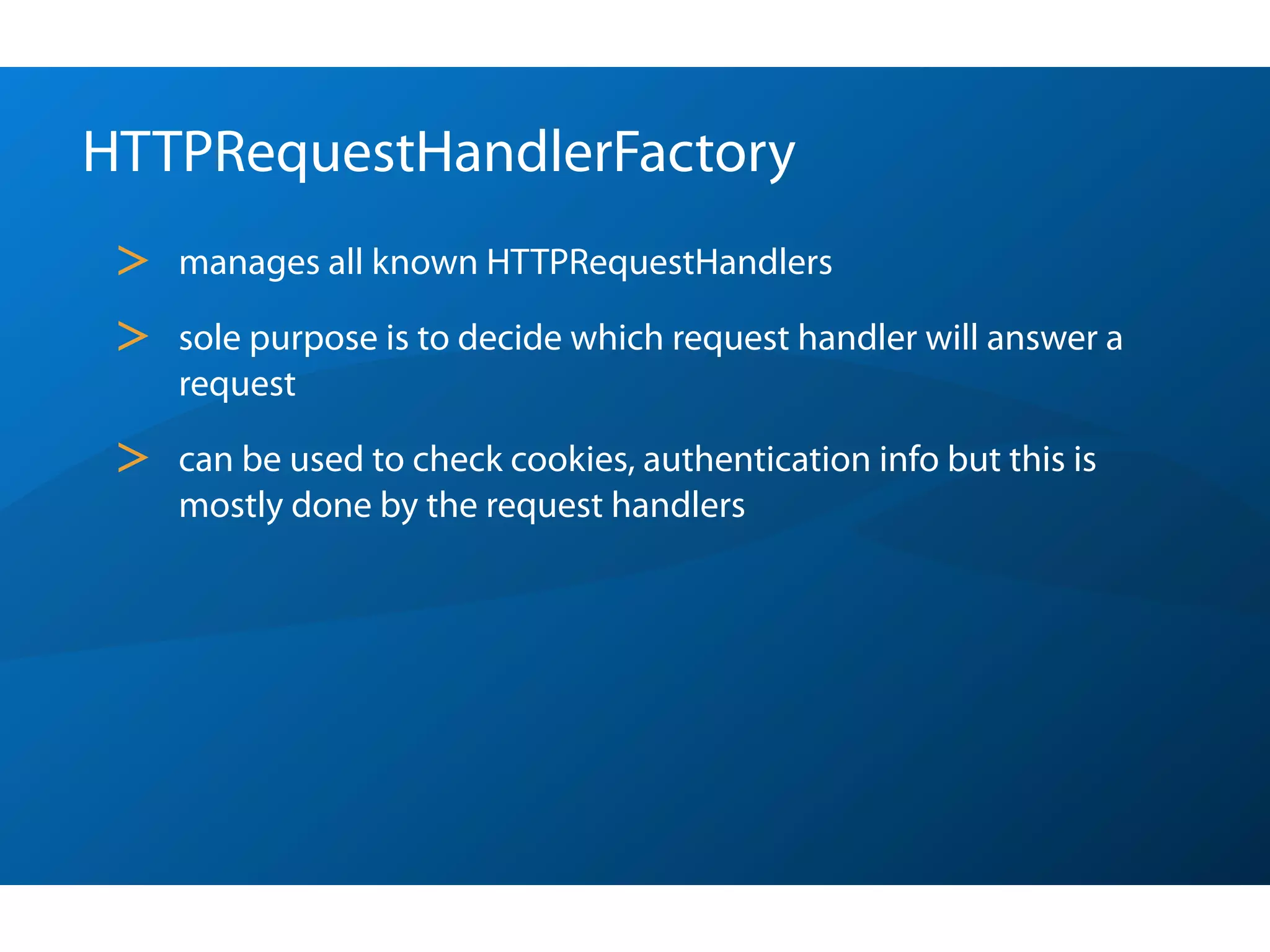
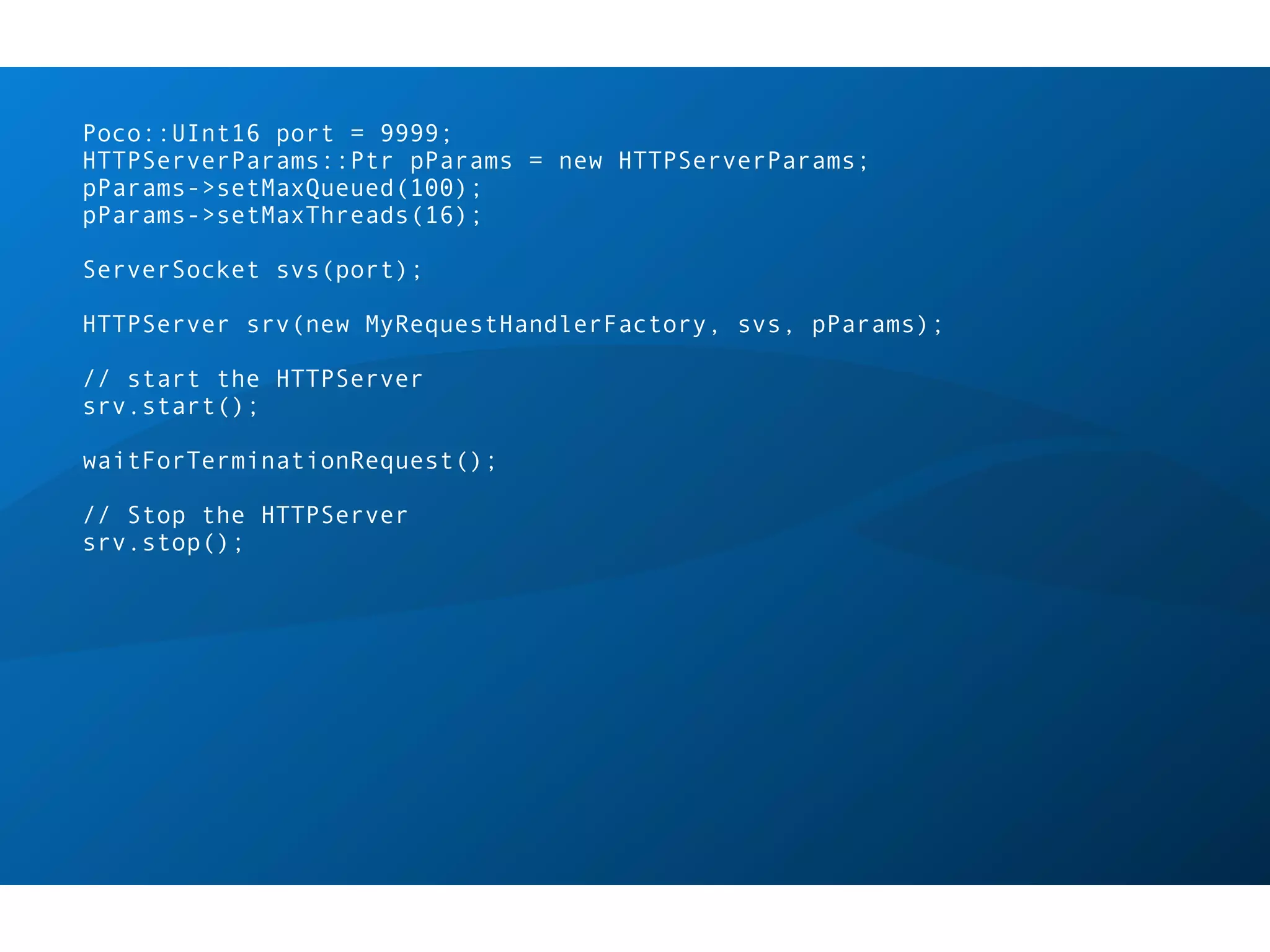
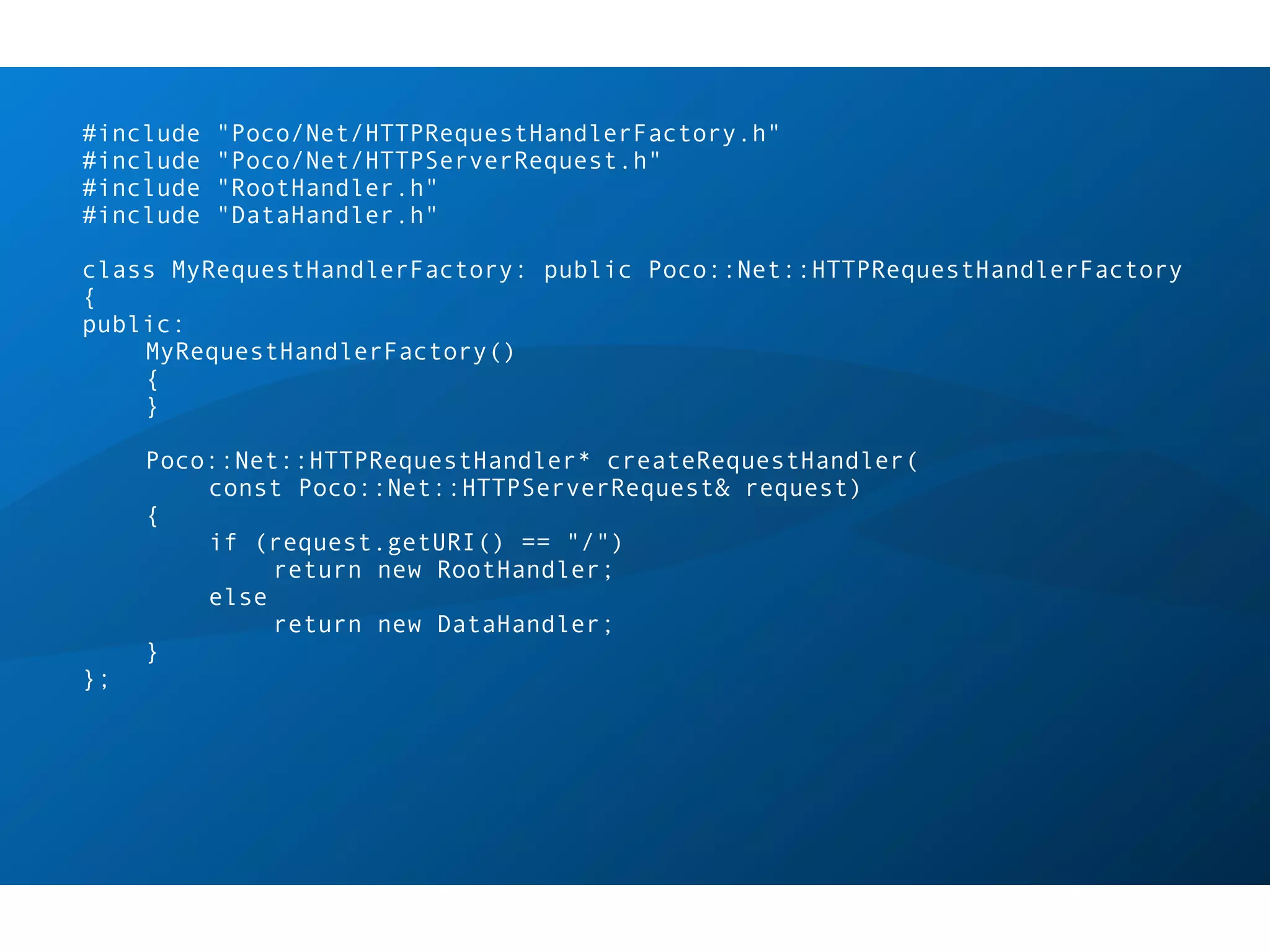
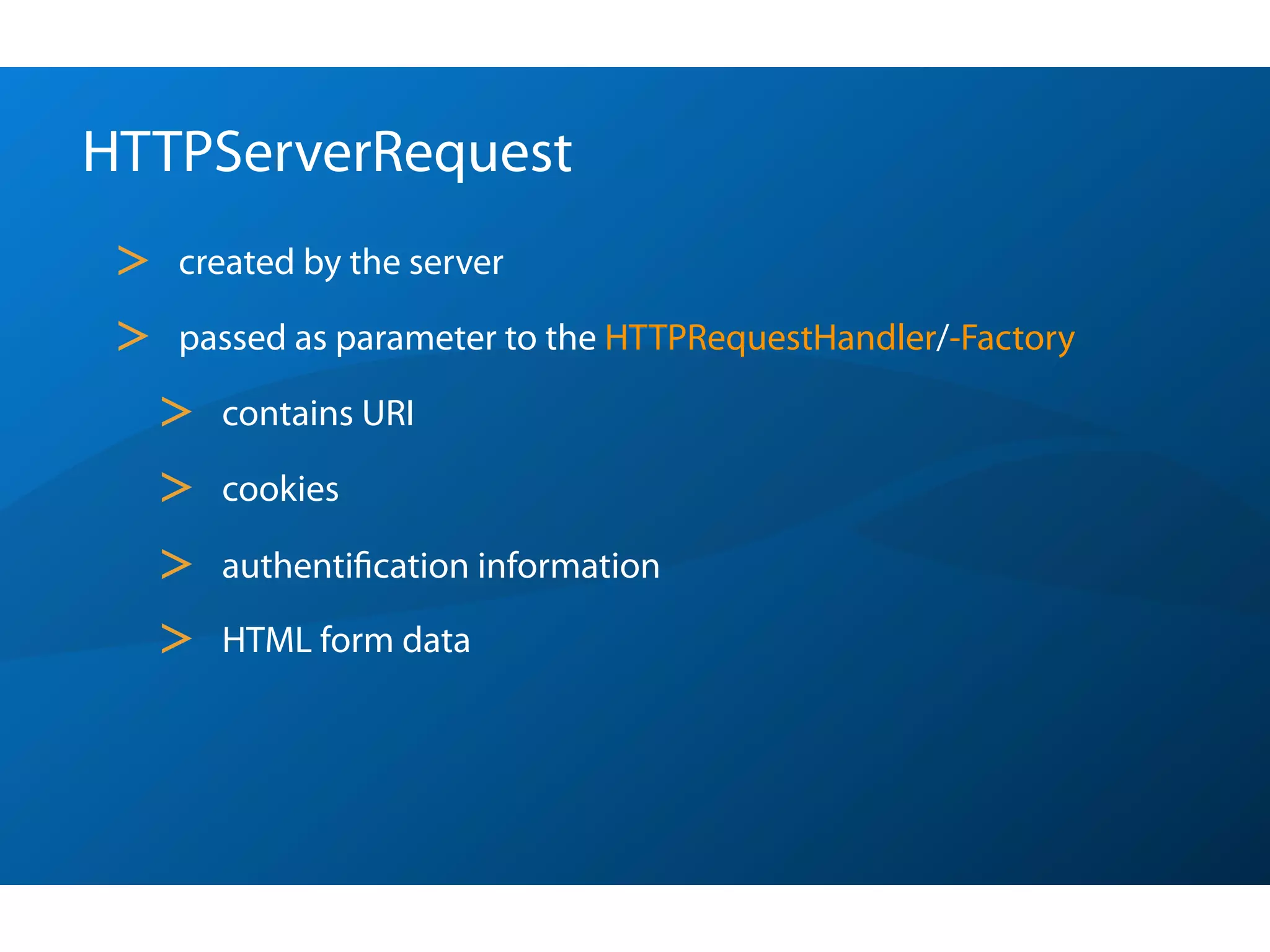
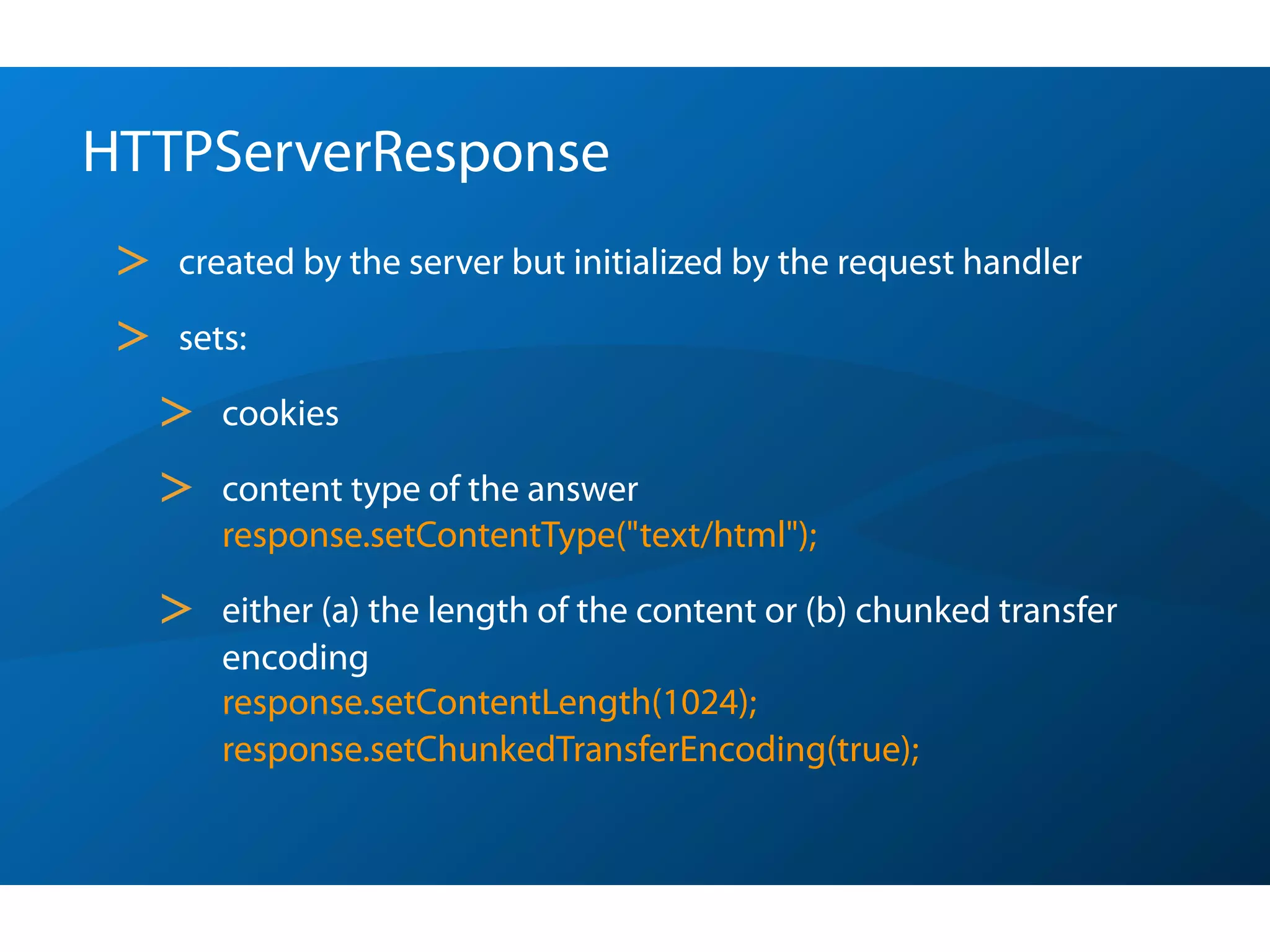
; // default
response.setStatus[AndReason](
HTTPResponse::HTTP_UNAUTHORIZED)
> after response is fully configured, send the header
std::ostream& out = response.send();
> if required, write data content to the returned stream
> send() must be invoked exactly once!](https://image.slidesharecdn.com/pocointroandoverview-120810122527-phpapp01/75/POCO-C-Libraries-Intro-and-Overview-74-2048.jpg)
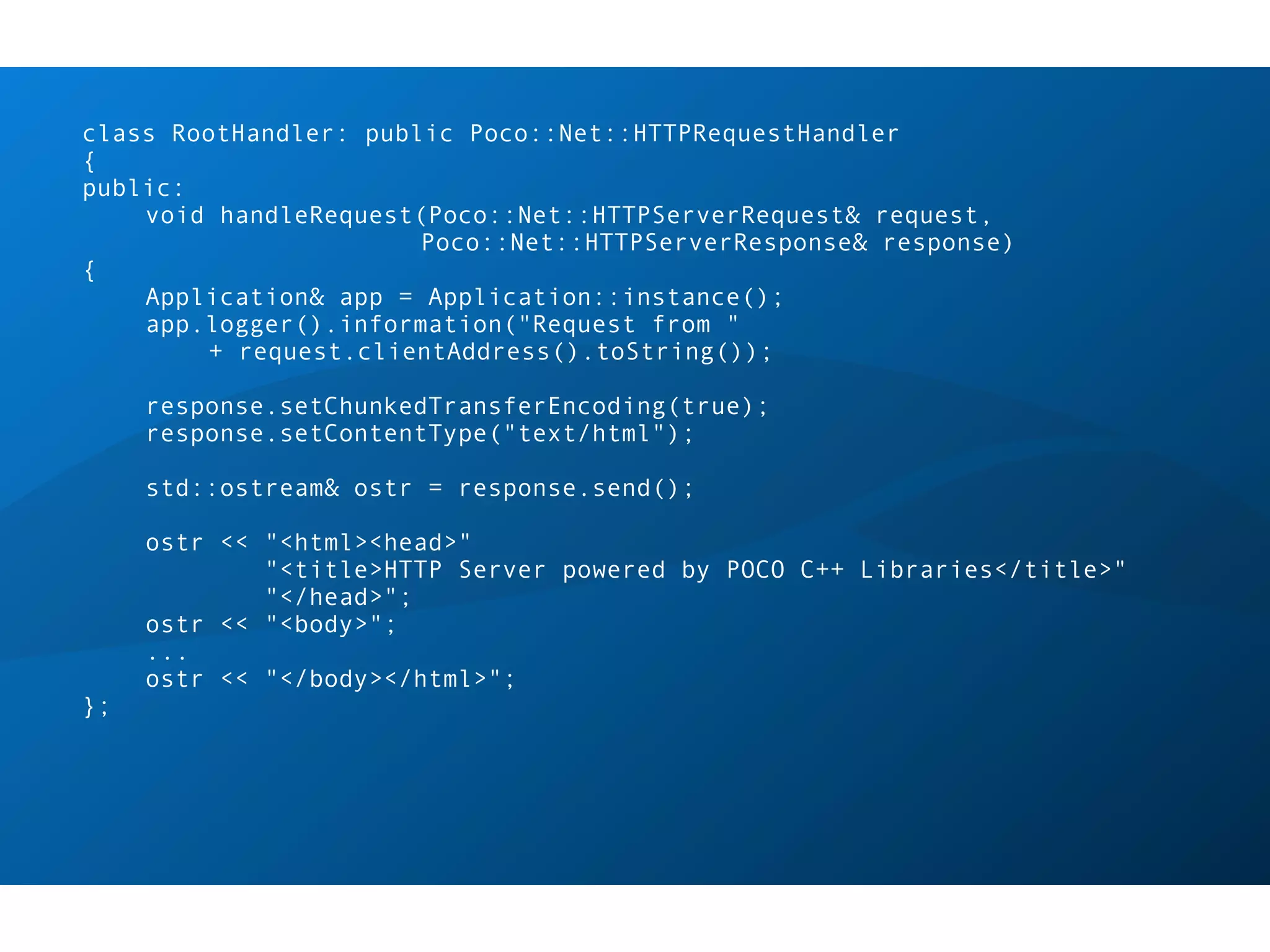
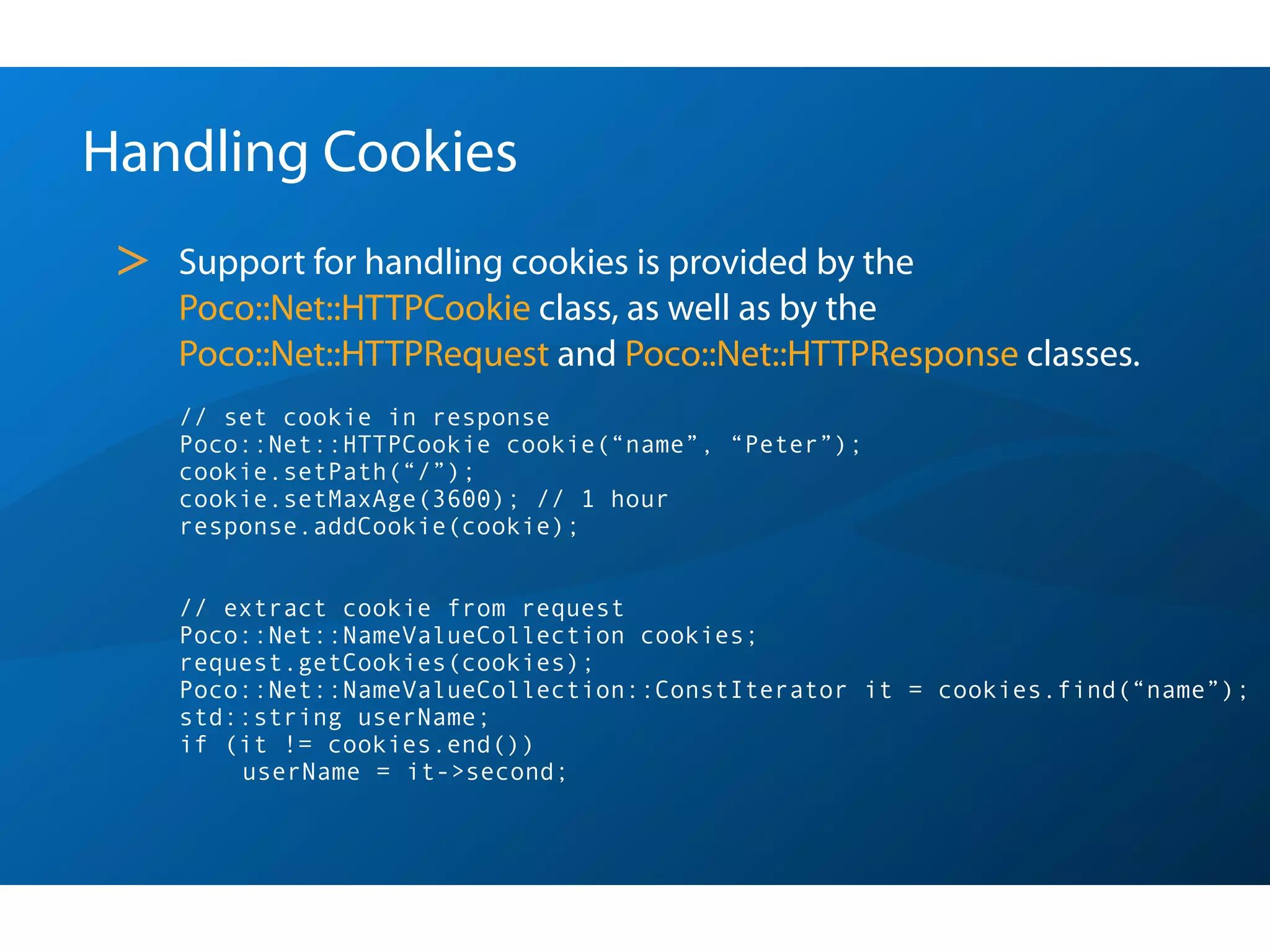
![Handling Credentials
void handleRequest(Poco::Net::HTTPServerRequest& request,
Poco::Net::HTTPServerResponse& response)
{
if (!request.hasCredentials())
{
response.requireAuthentication("My Realm");
response.setContentLength(0);
response.send();
return;
}
else
{
Poco::Net::HTTPBasicCredentials cred(request);
const std::string& user = cred.getUsername();
const std::string& pwd = cred.getPassword();
[...]
}
}](https://image.slidesharecdn.com/pocointroandoverview-120810122527-phpapp01/75/POCO-C-Libraries-Intro-and-Overview-77-2048.jpg)
![HTMLForm
> helper class to handle HTML form data
Poco::Net::HTMLForm form(request);
form[“entry1”] == “somedata”;
> to handle file uploads (POST with attachments) you must
combine it with a Poco::Net::PartHandler
MyPartHandler myHandler;
Poco::Net::HTMLForm form(request, request.stream(), myHandler);](https://image.slidesharecdn.com/pocointroandoverview-120810122527-phpapp01/75/POCO-C-Libraries-Intro-and-Overview-78-2048.jpg)
![#include “Poco/Net/PartHandler.h”
#include “Poco/Net/MessageHeader.h”
class MyPartHandler: public Poco::Net::PartHandler
{
public:
void handlePart(const Poco::Net::MessageHeader& header, std::istream& stream)
{
_disp = header["Content-Disposition"];
_type = header["Content-Type"];
// read from stream and do something with it
}
private:
std::string _disp;
std::string _type;
};](https://image.slidesharecdn.com/pocointroandoverview-120810122527-phpapp01/75/POCO-C-Libraries-Intro-and-Overview-79-2048.jpg)
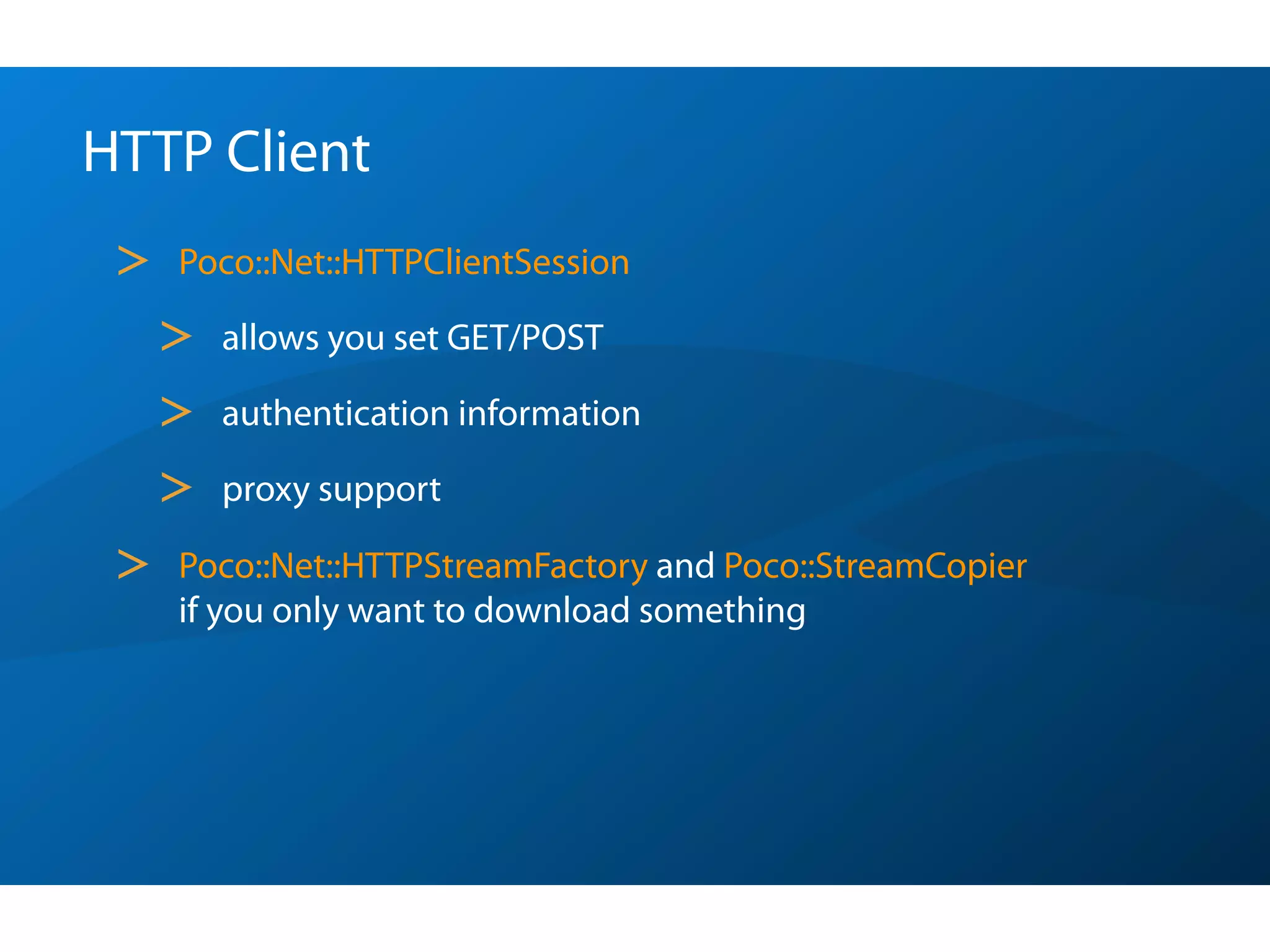
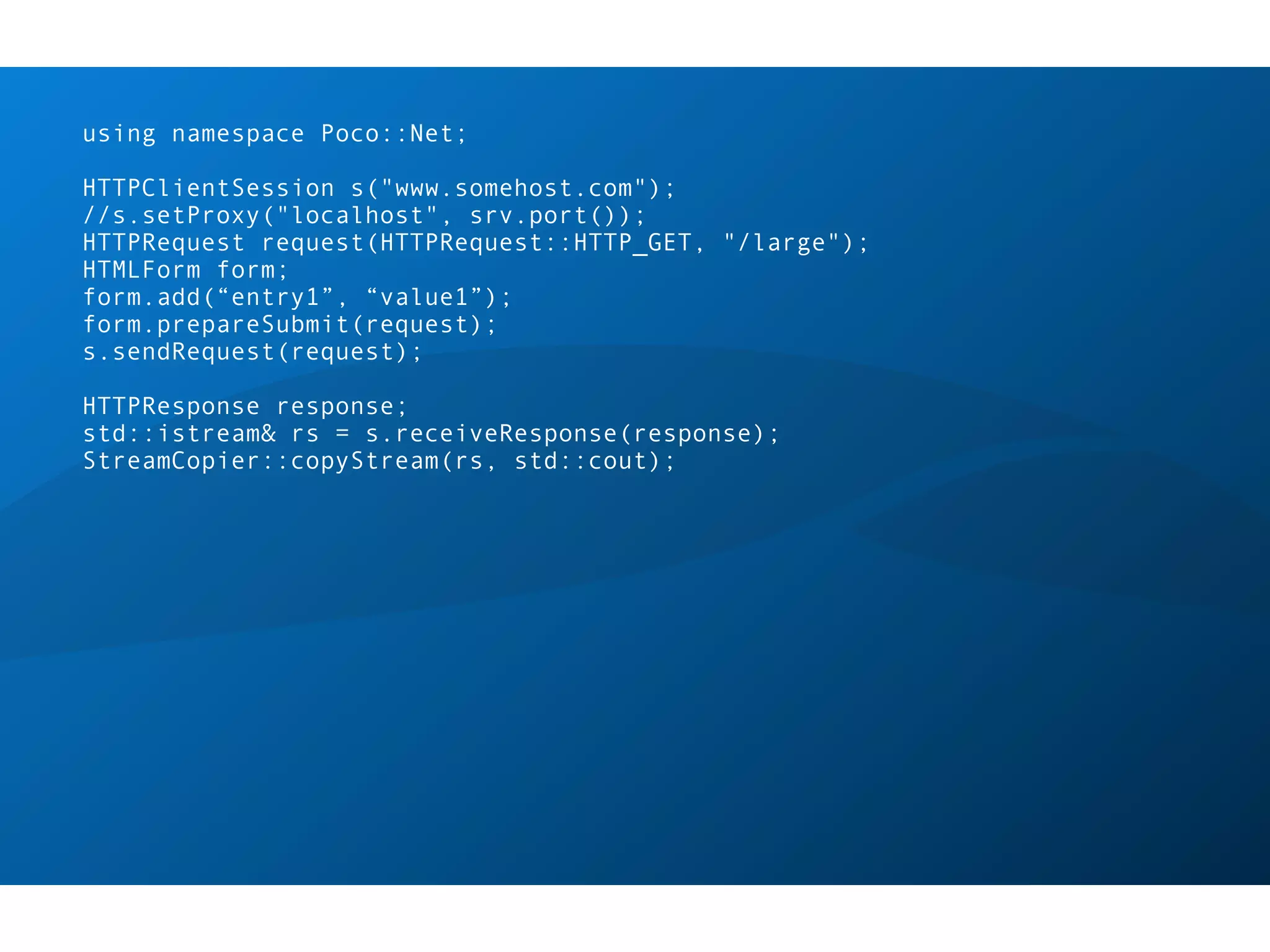
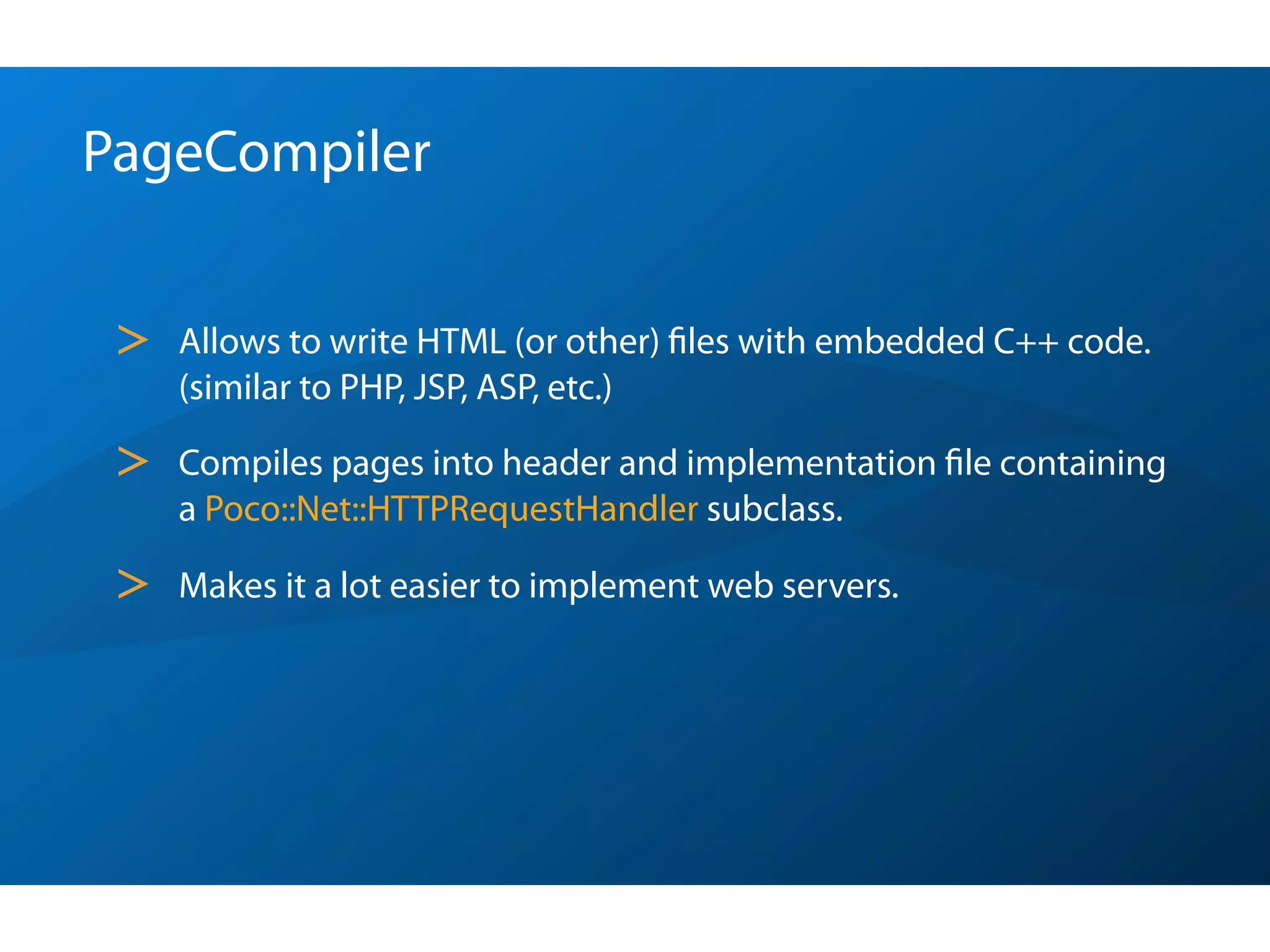
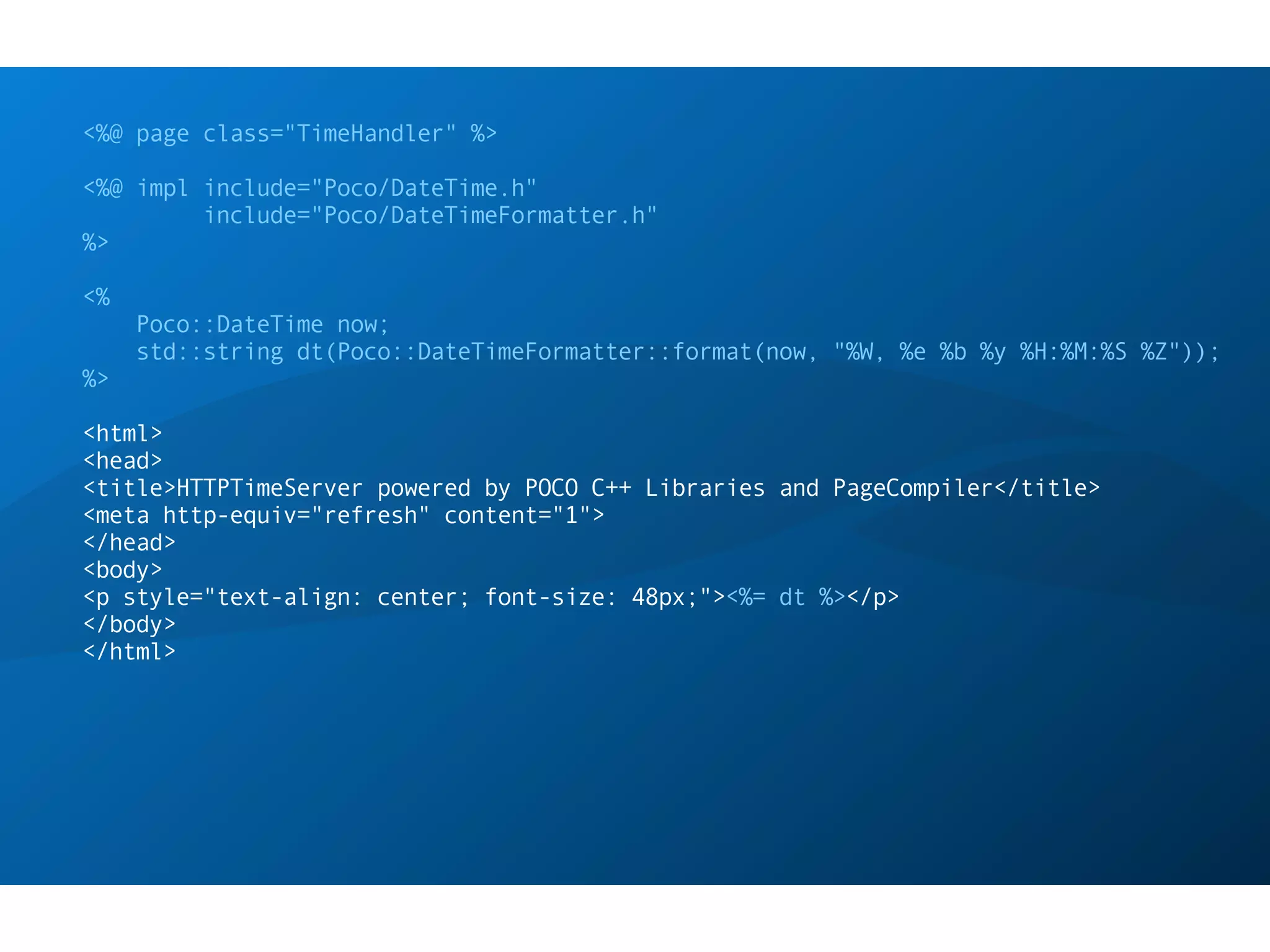
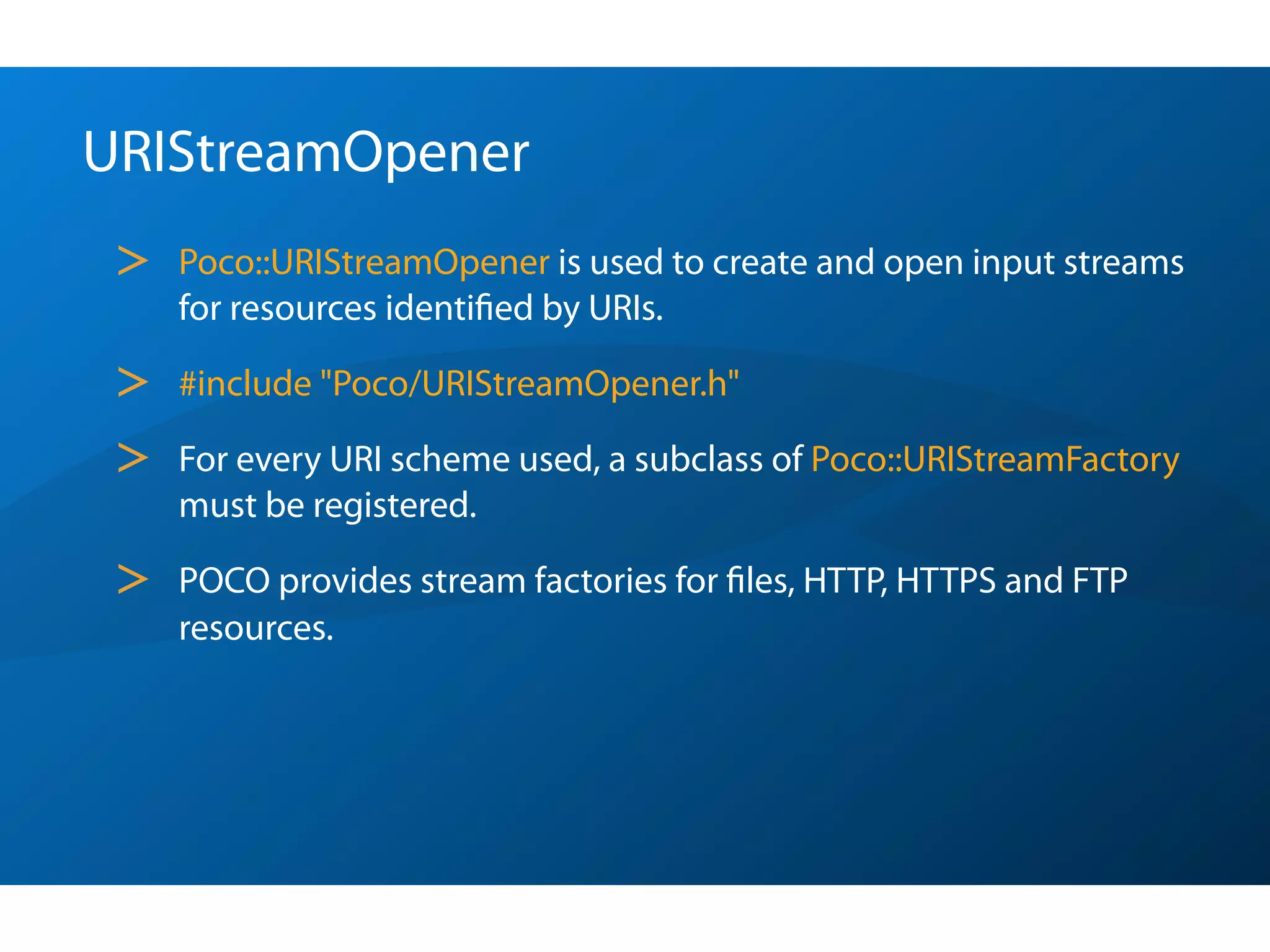
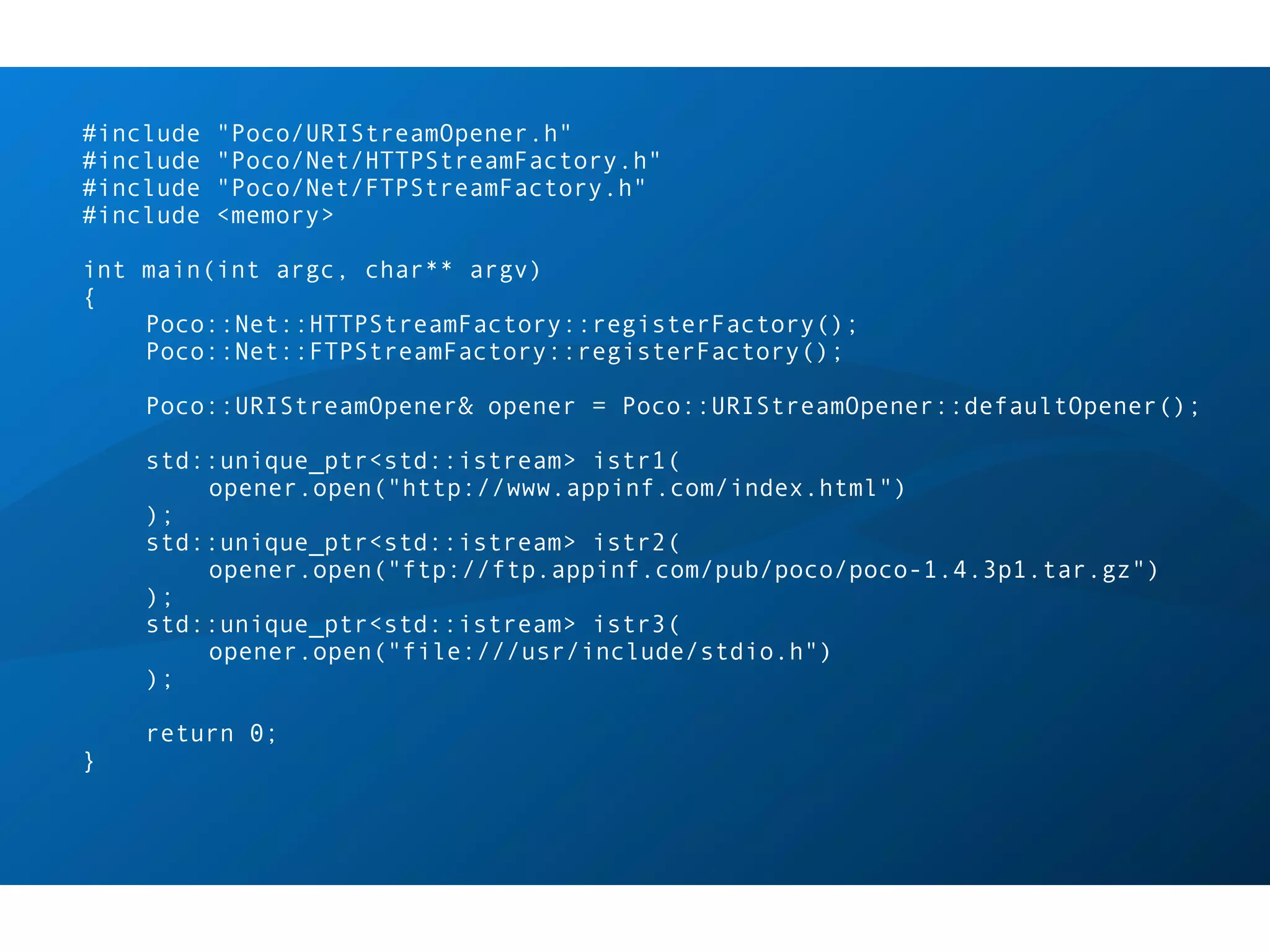

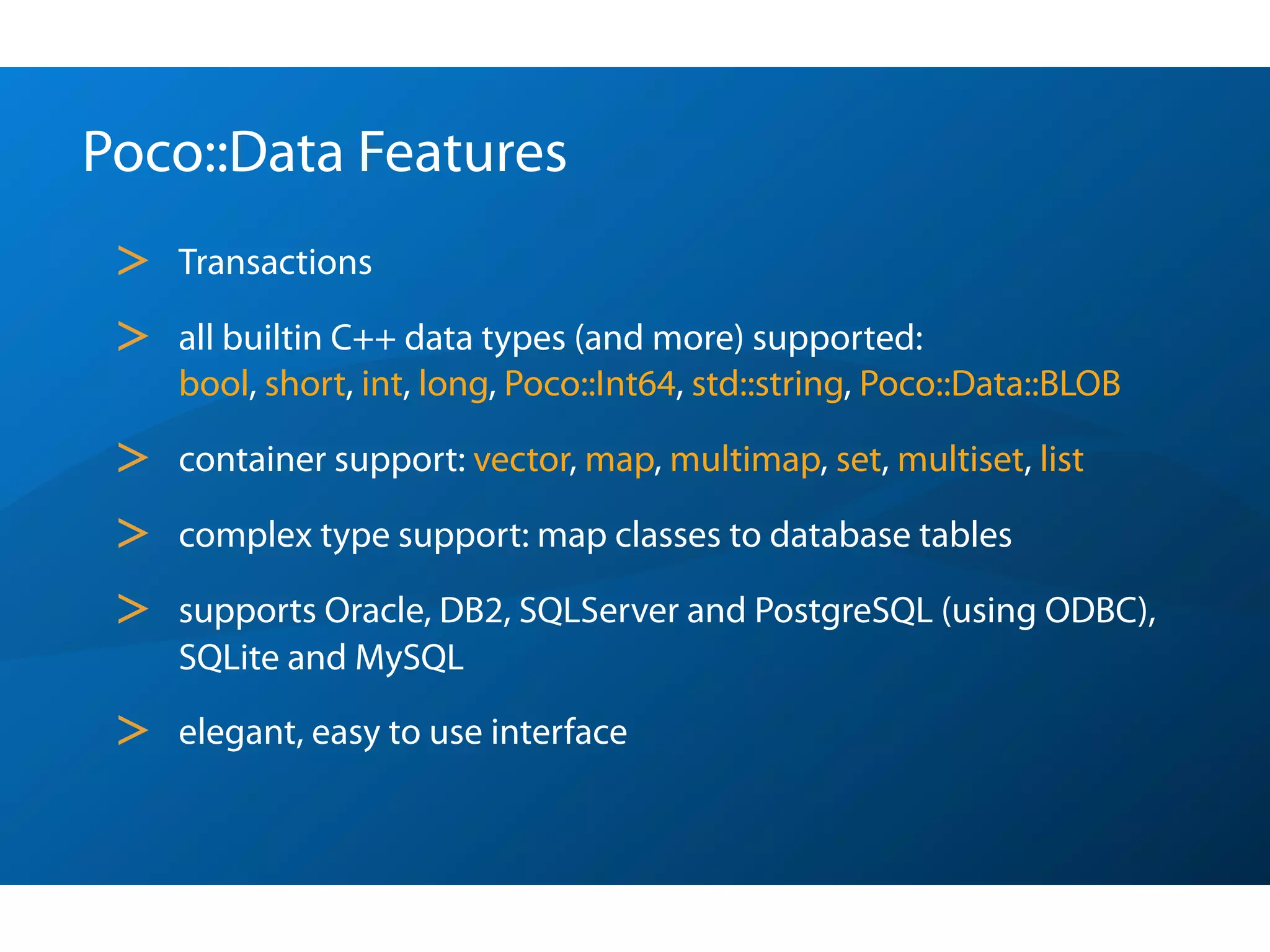
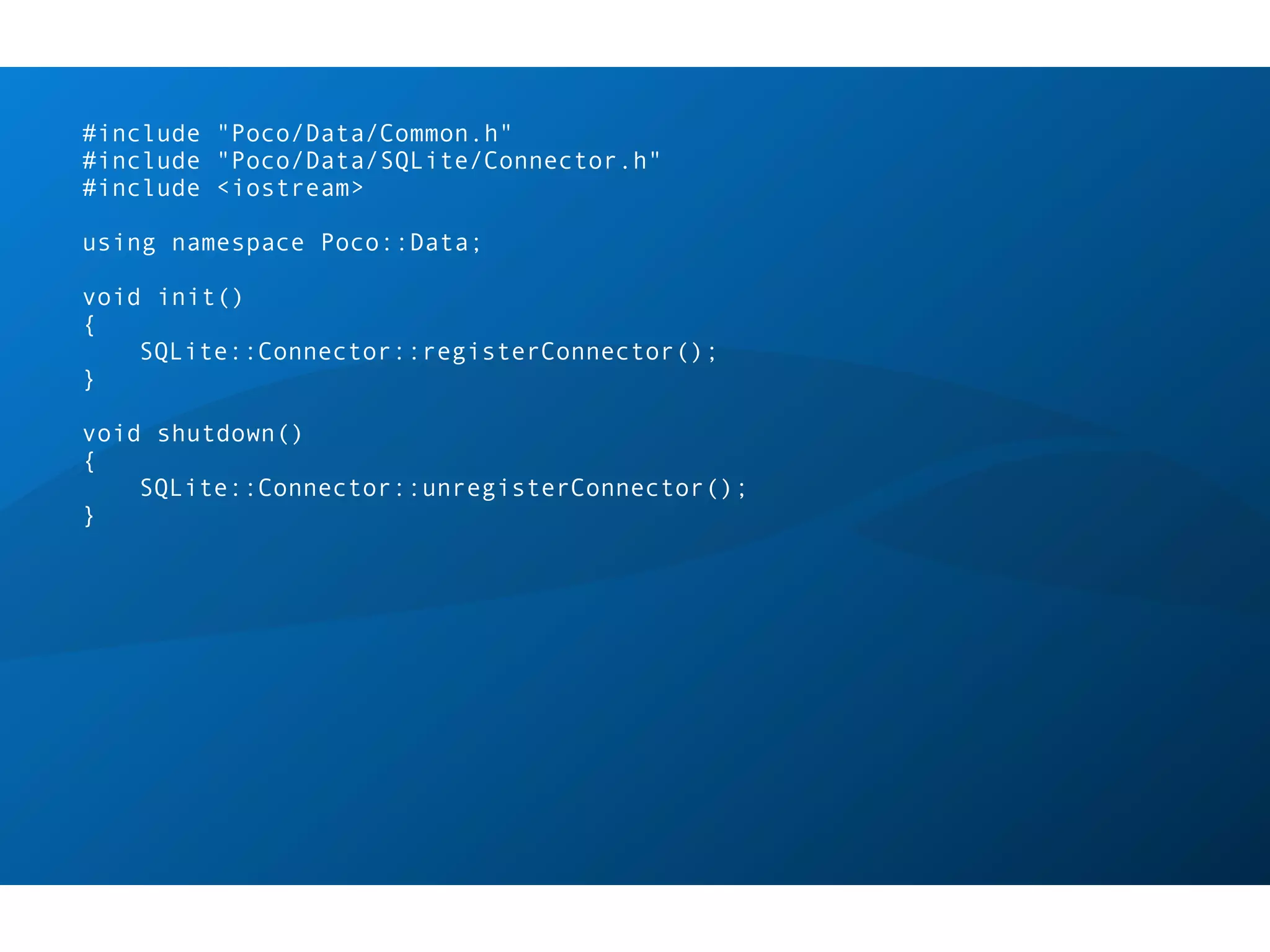
![int main(int argc, char* argv[])
{
init();
Session ses(
SessionFactory::instance().create(
SQLite::Connector::KEY, "dummy.db"
)
);
int count = 0;
ses << "SELECT COUNT(*) FROM PERSON", into(count), now;
std::cout << "People in DB " << count;
shutdown();
return 0;
}](https://image.slidesharecdn.com/pocointroandoverview-120810122527-phpapp01/75/POCO-C-Libraries-Intro-and-Overview-89-2048.jpg)
![Statement stmt(ses << "SELECT COUNT(*) FROM PERSON",into(count));
stmt.execute();
std::string str;
Statement insert(ses << "INSERT INTO Strings VALUES(?)", use(str));
insert.execute(); // inserts the empty string
str = "Hi";
insert.execute(); // inserts "Hi"
std::set<std::string> setStr; // [...] init with 100s of strings
Statement bulk(ses << "INSERT INTO Strings VALUES(?)", use(setStr));
bulk.execute();](https://image.slidesharecdn.com/pocointroandoverview-120810122527-phpapp01/75/POCO-C-Libraries-Intro-and-Overview-90-2048.jpg)
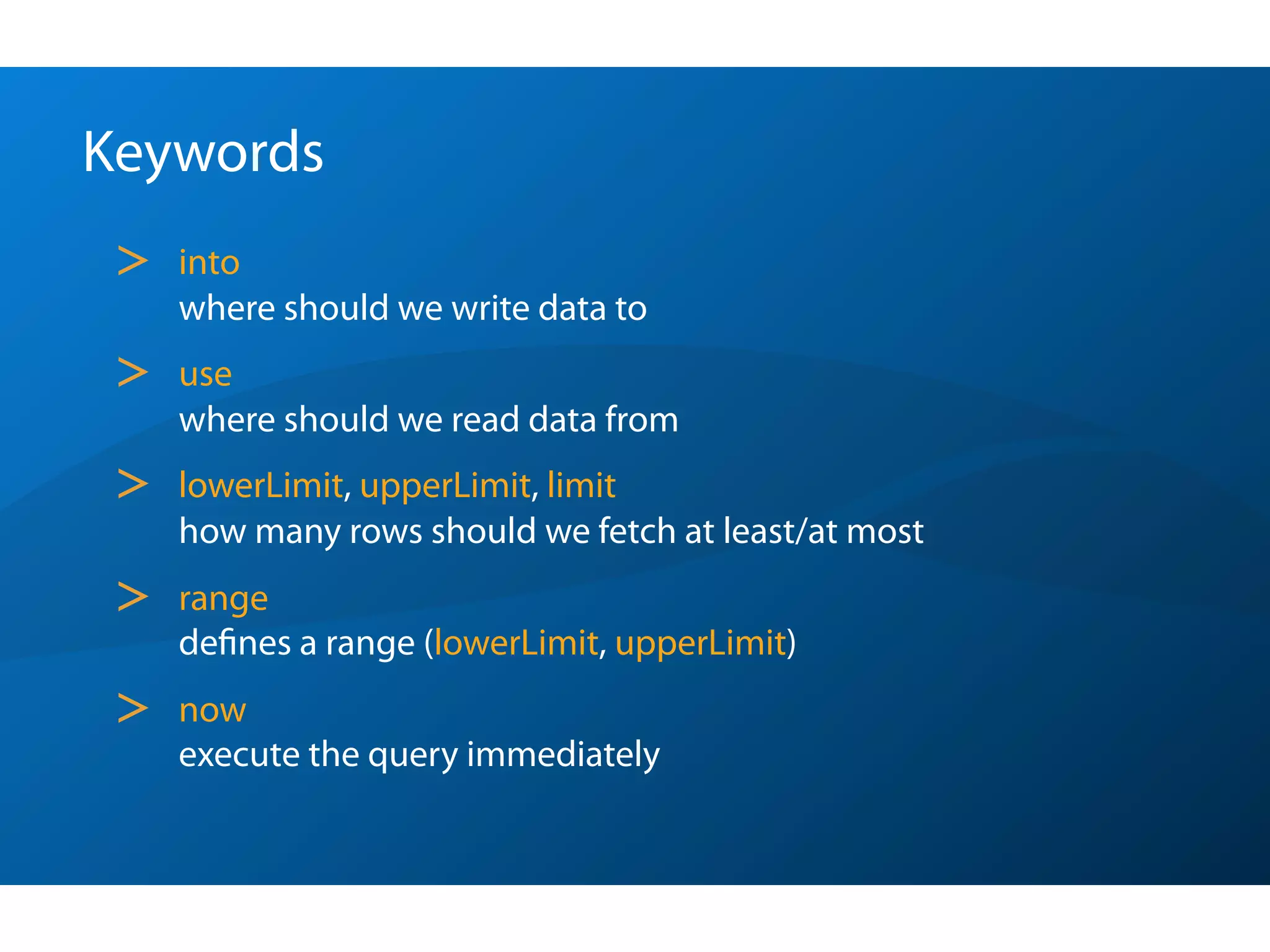
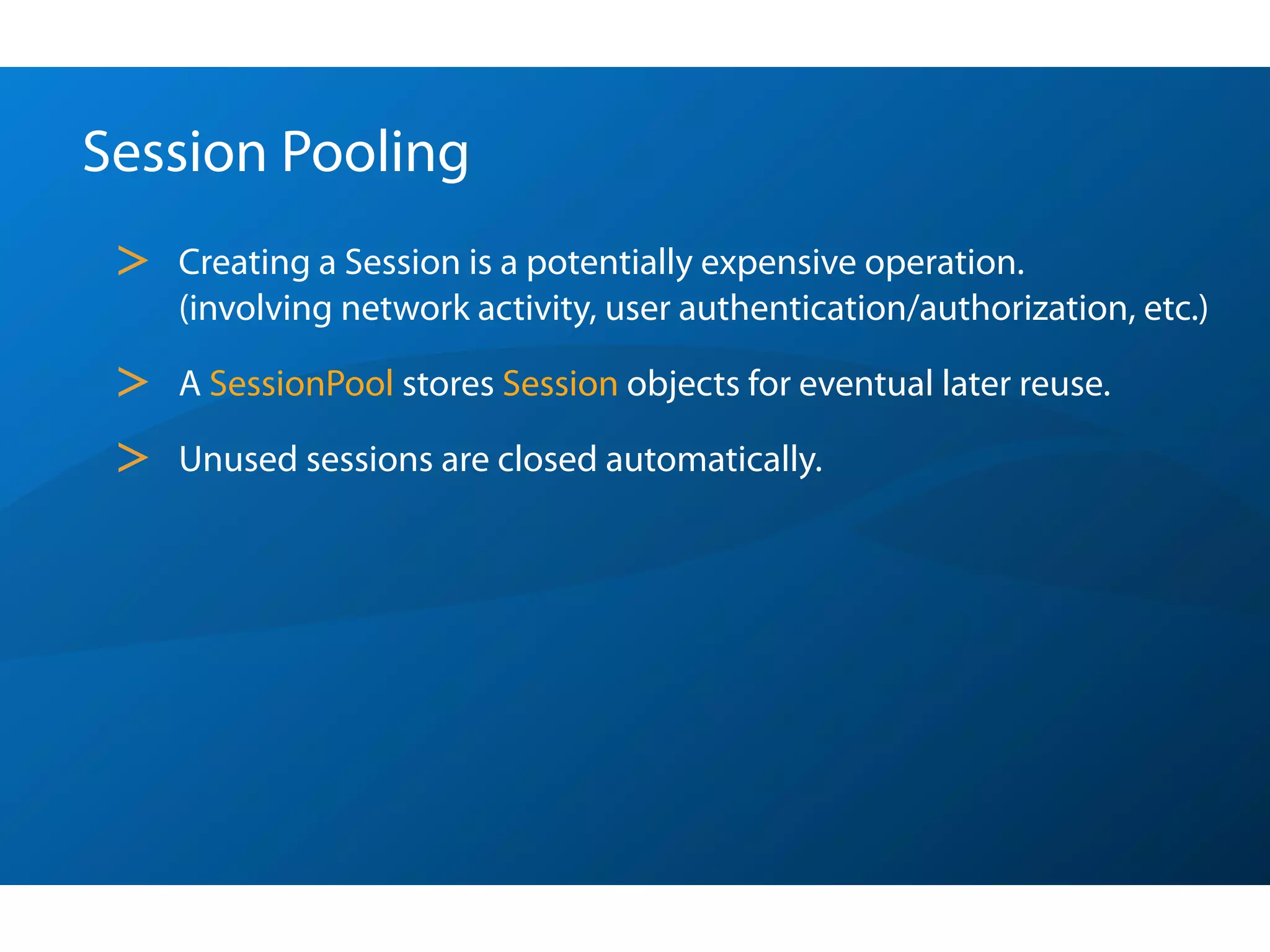
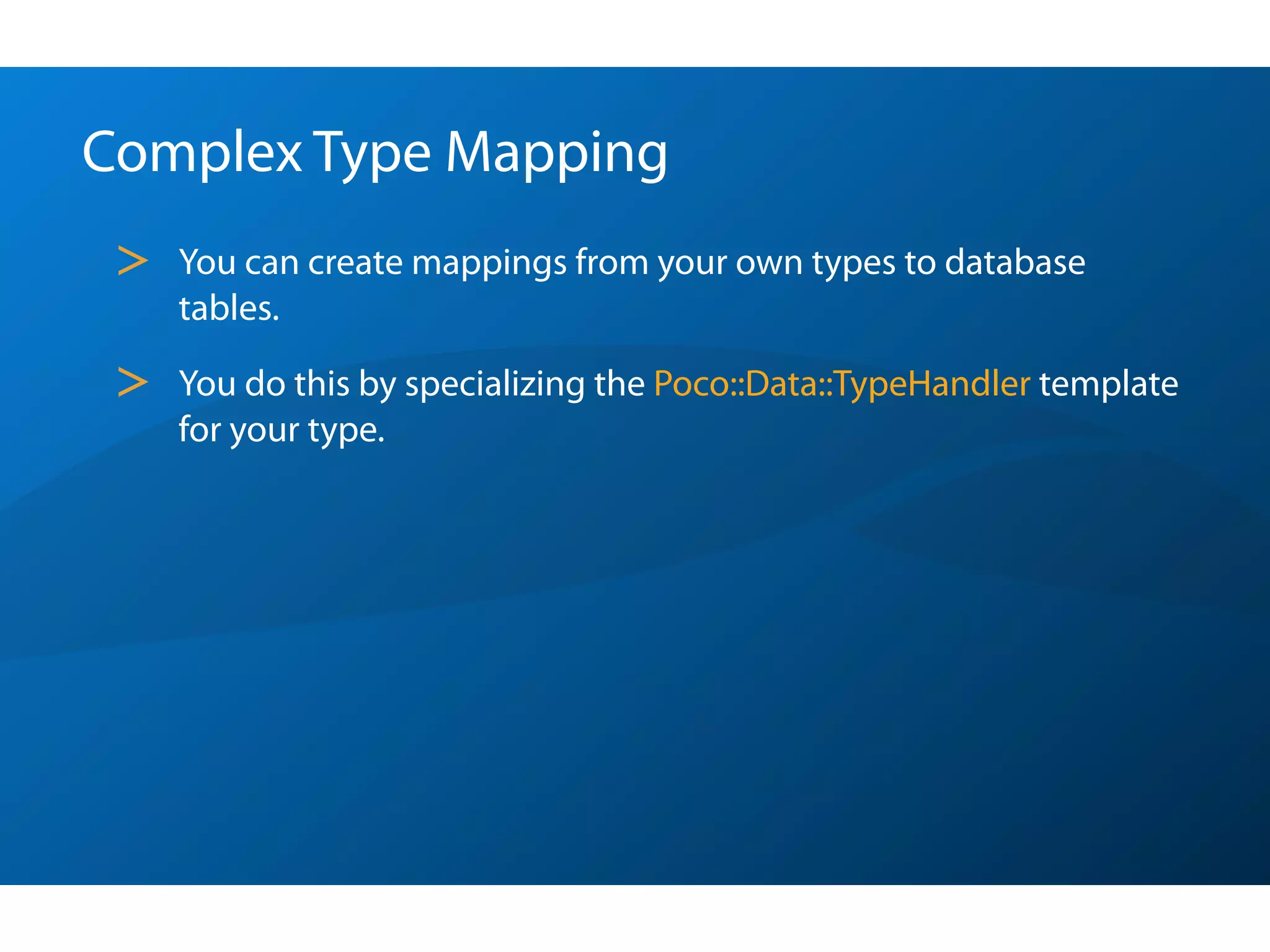
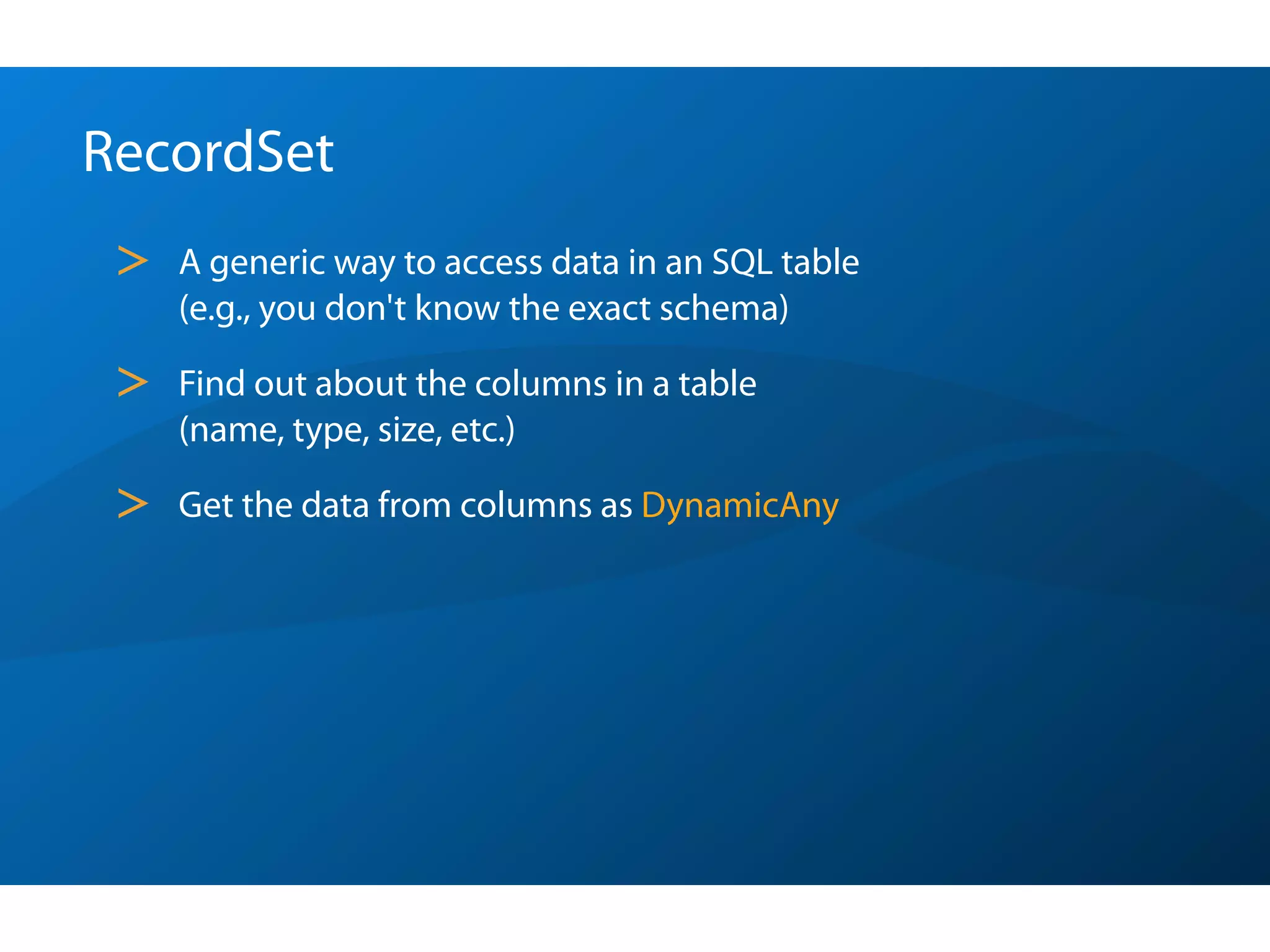
![Session session("SQLite", "sample.db");
Statement select(session);
select << "SELECT * FROM Person";
select.execute();
RecordSet rs(select);
std::size_t cols = rs.columnCount();
for (std::size_t col = 0; col < cols; ++col)
{
std::cout << rs.columnName(col) << std::endl;
}
bool more = rs.moveFirst();
while (more)
{
for (std::size_t col = 0; col < cols; ++col)
{
std::cout << rs[col].convert<std::string>() << " ";
}
std::cout << std::endl;
more = rs.moveNext();
}](https://image.slidesharecdn.com/pocointroandoverview-120810122527-phpapp01/75/POCO-C-Libraries-Intro-and-Overview-95-2048.jpg)

